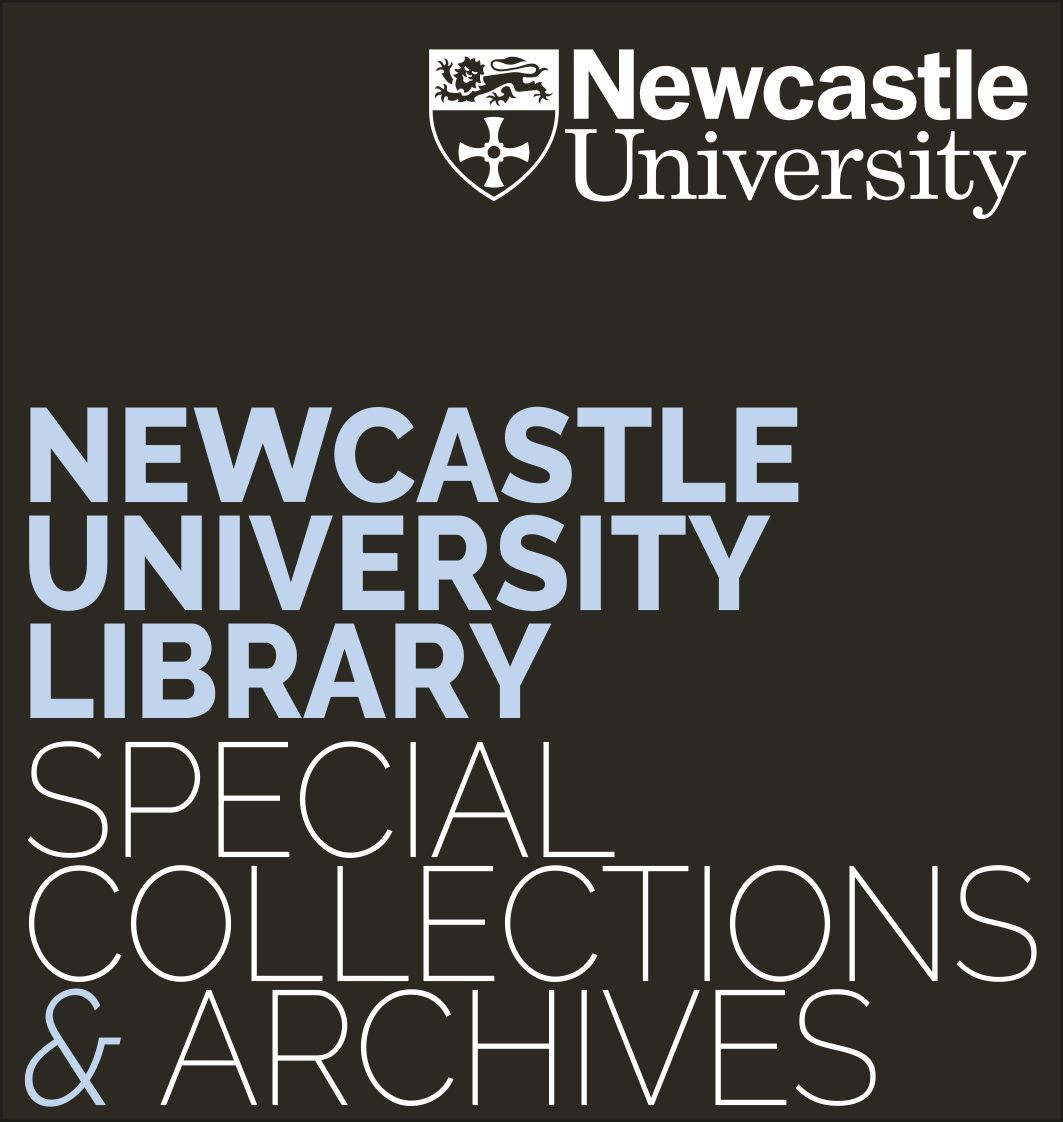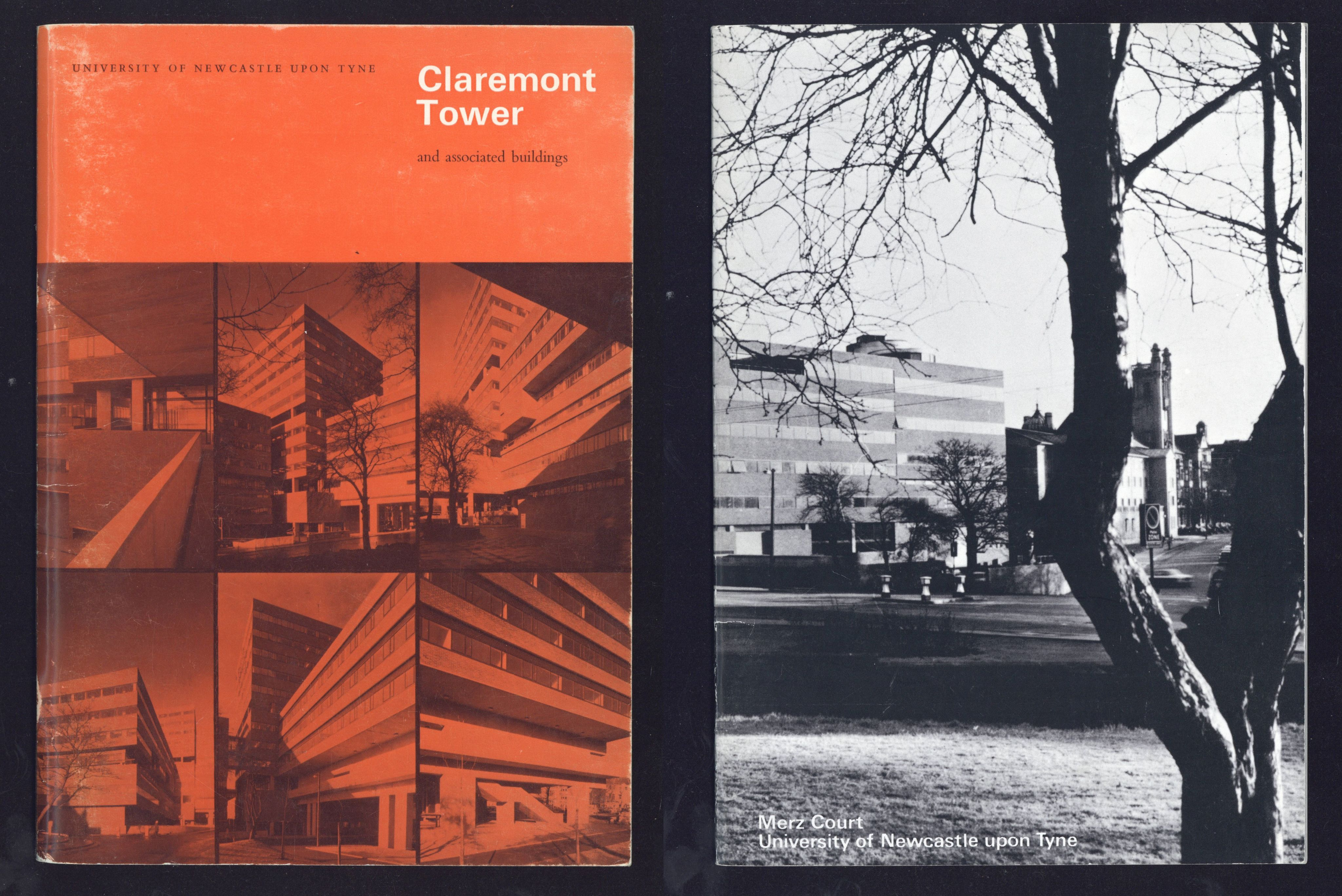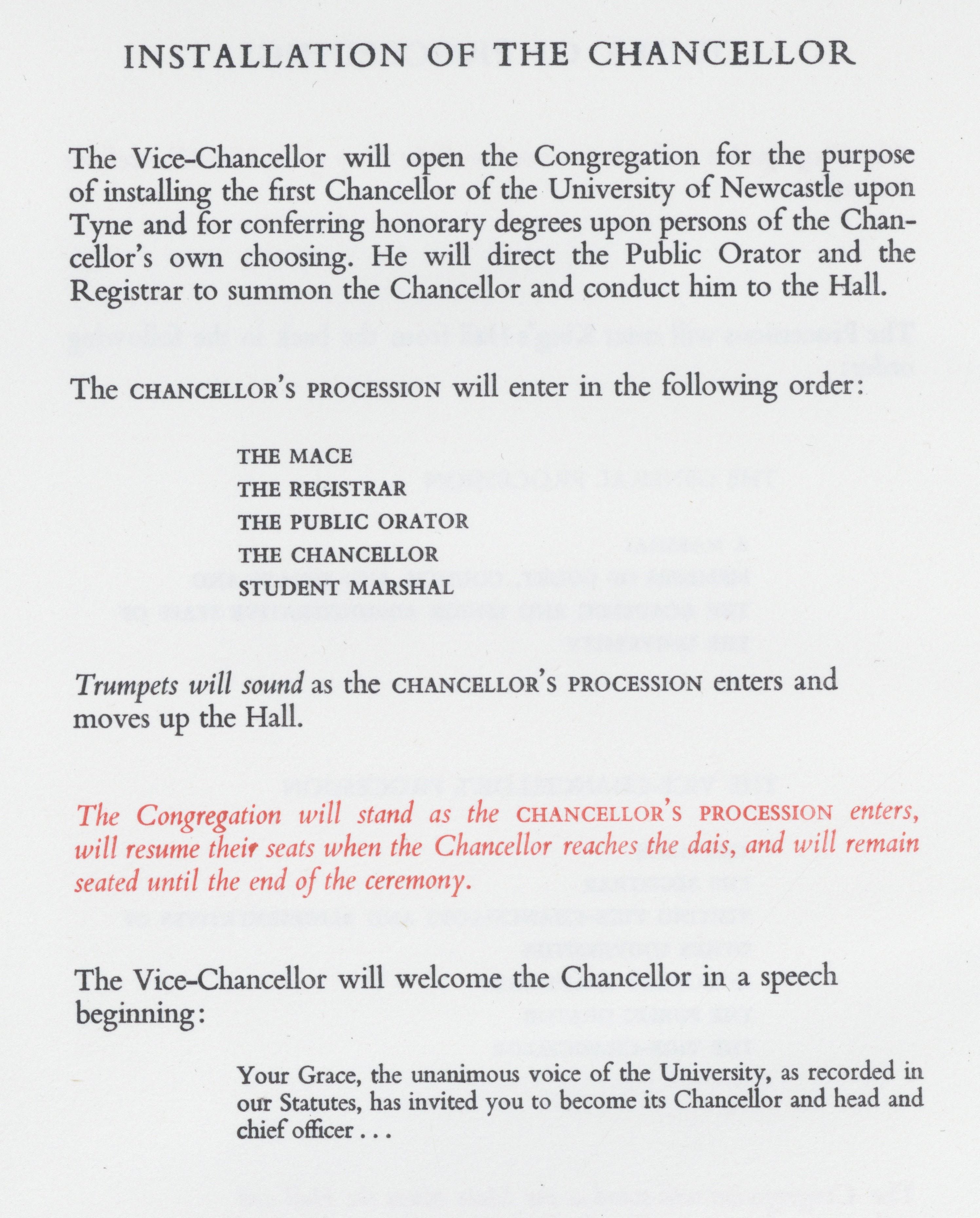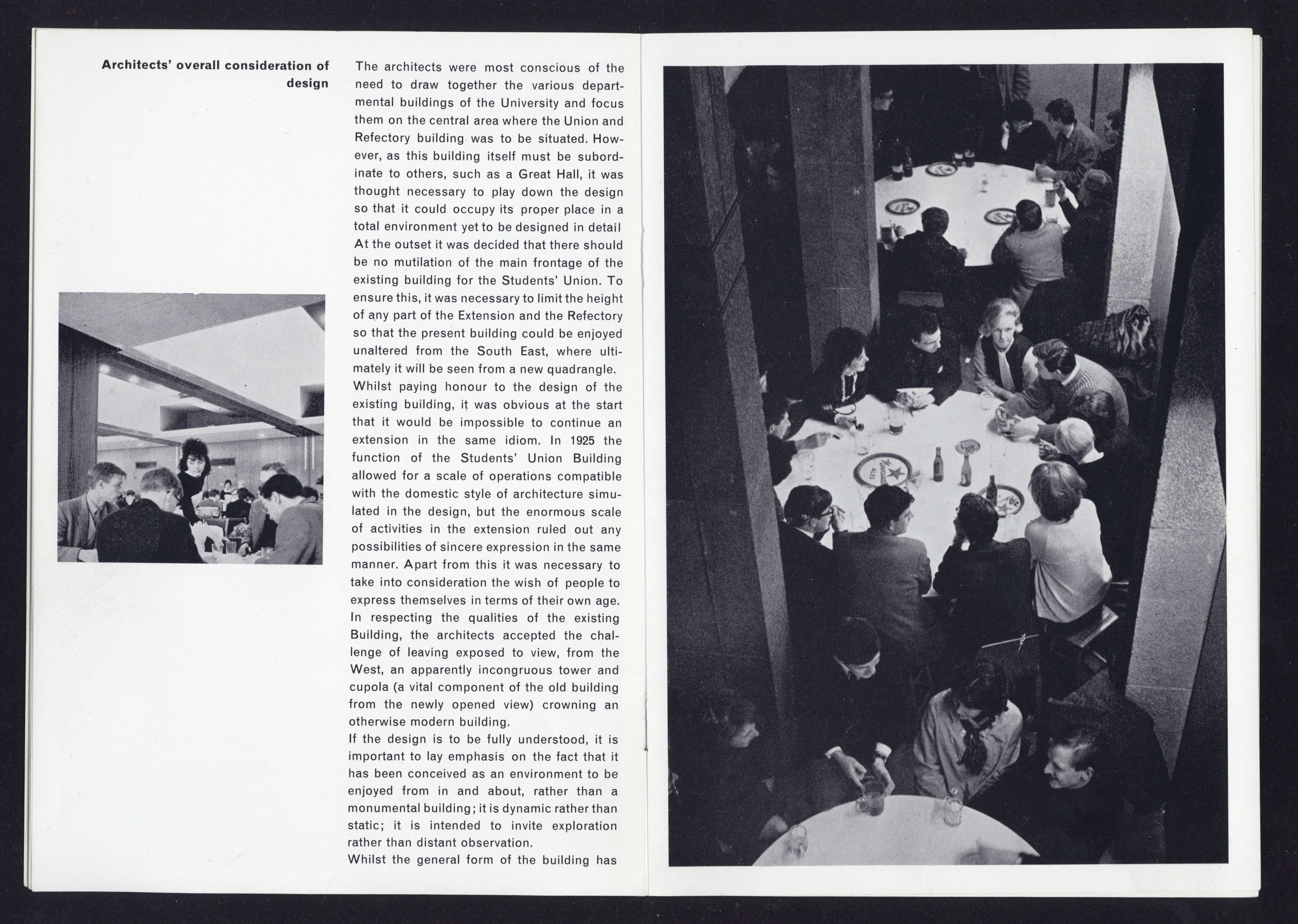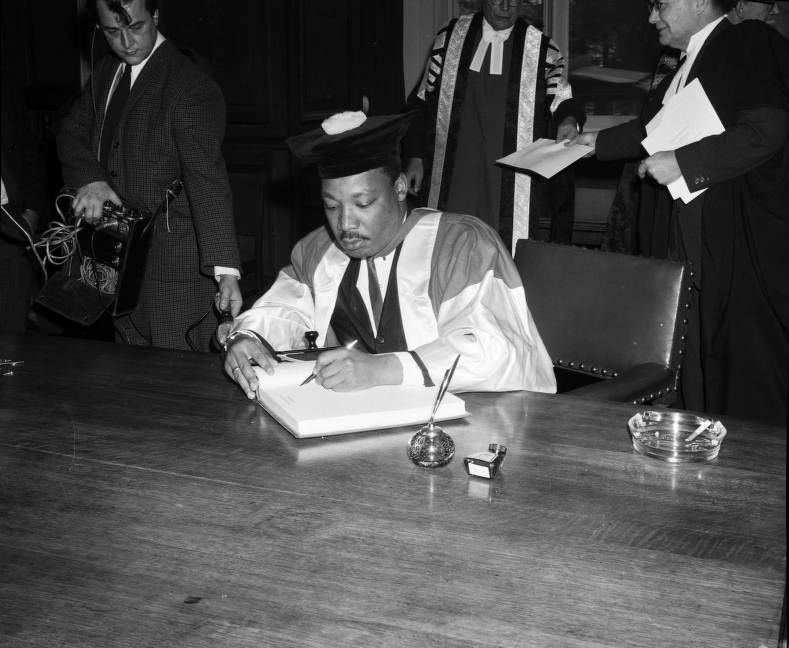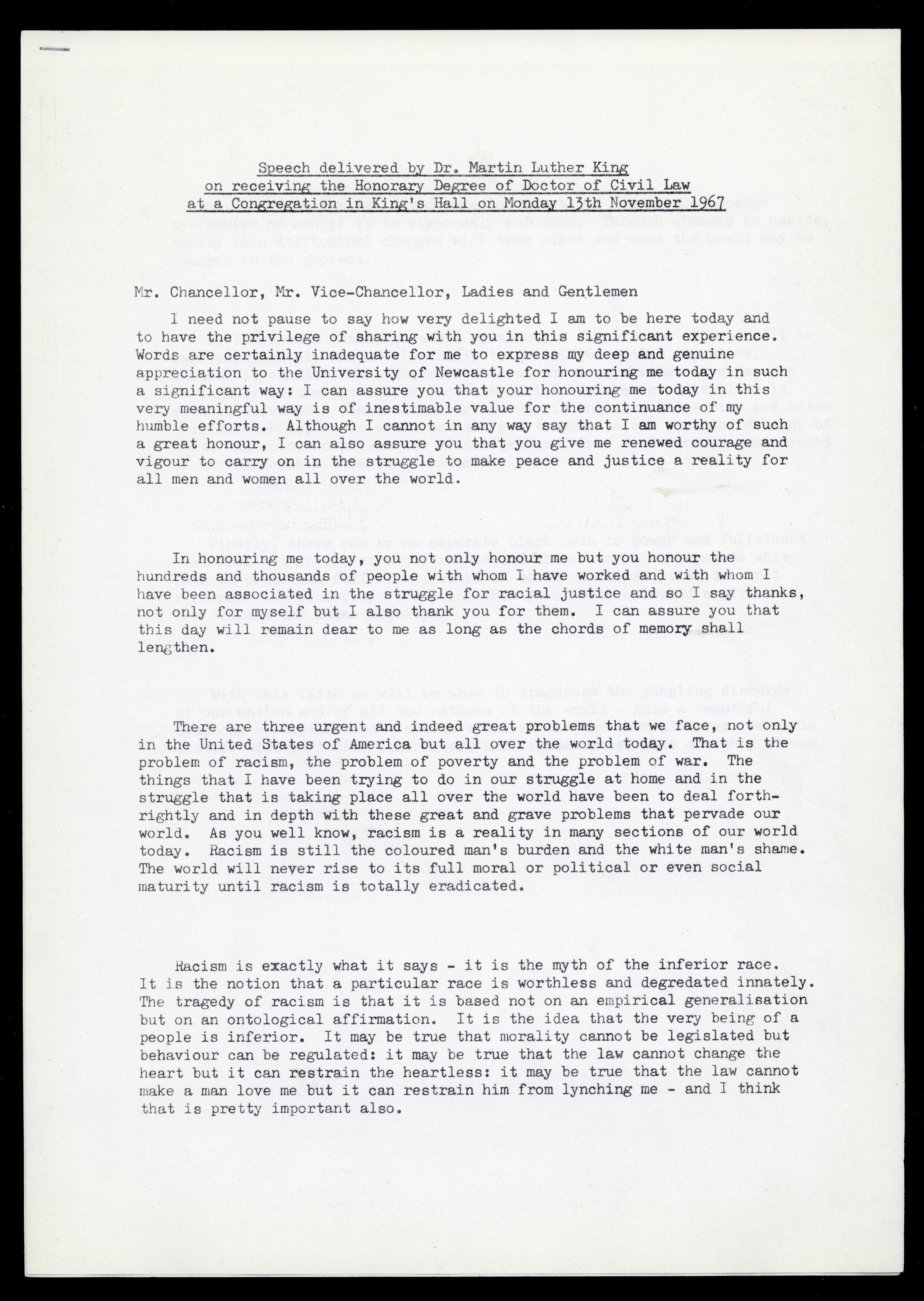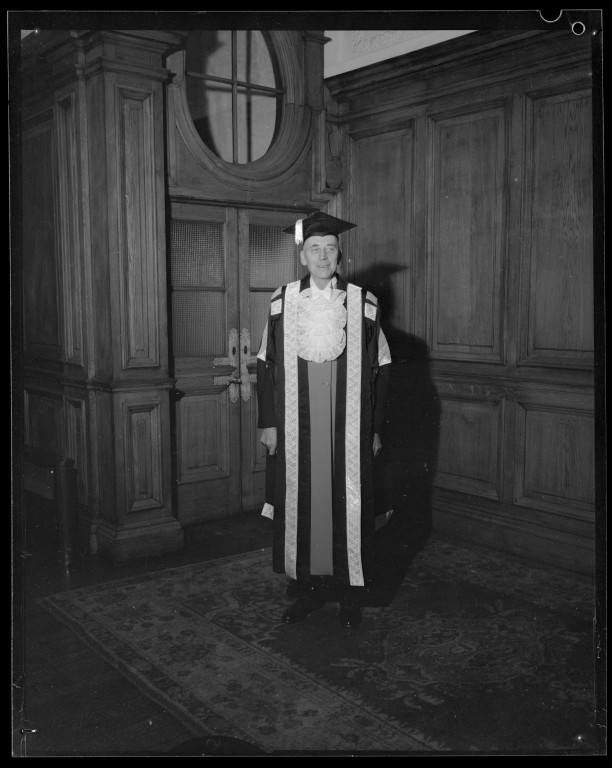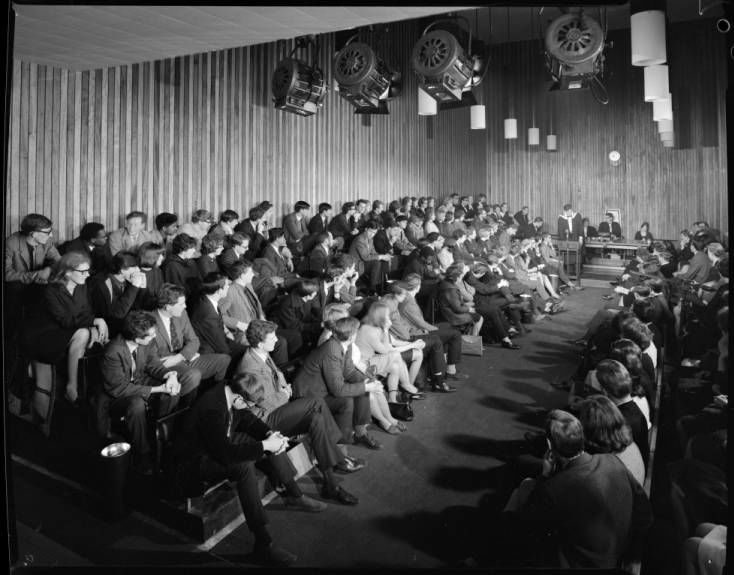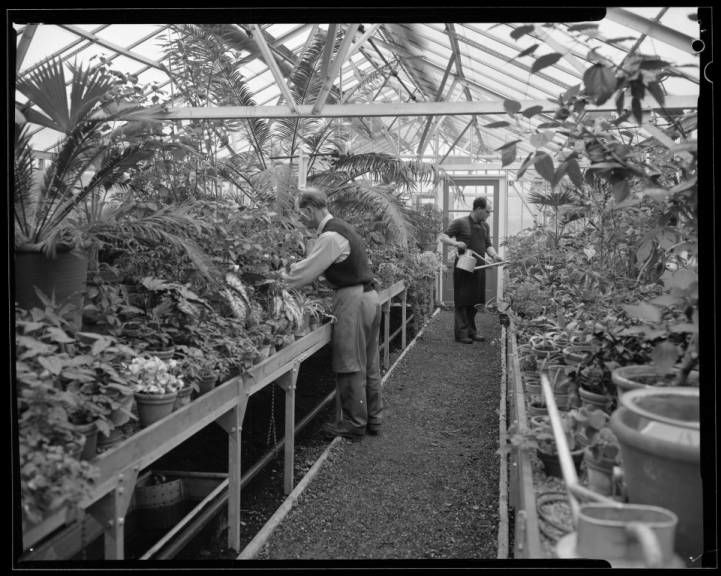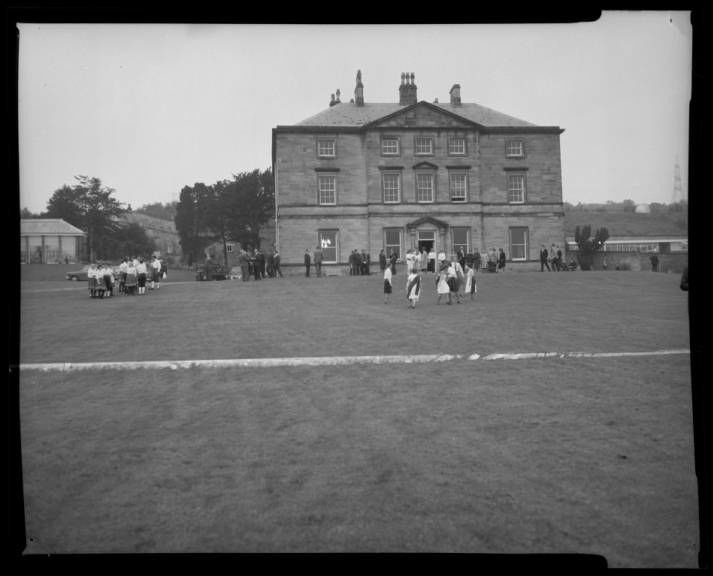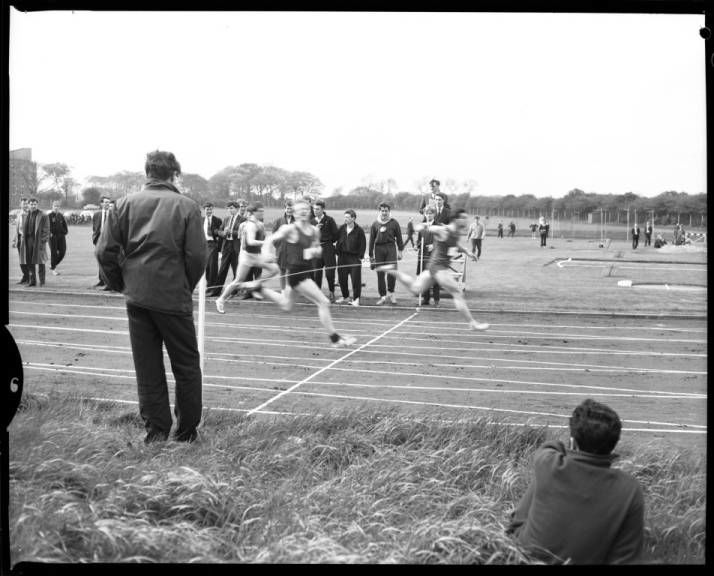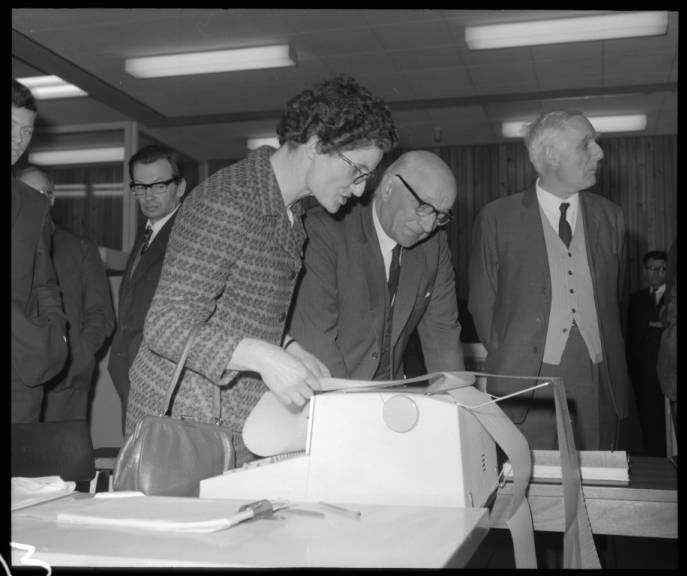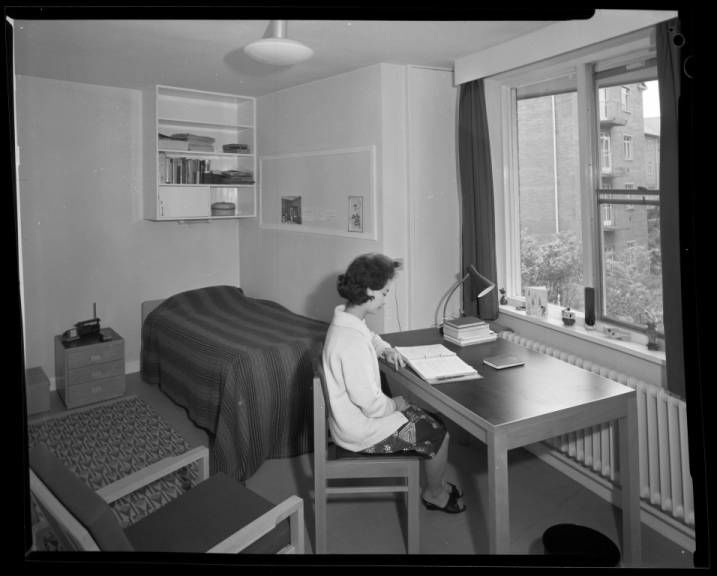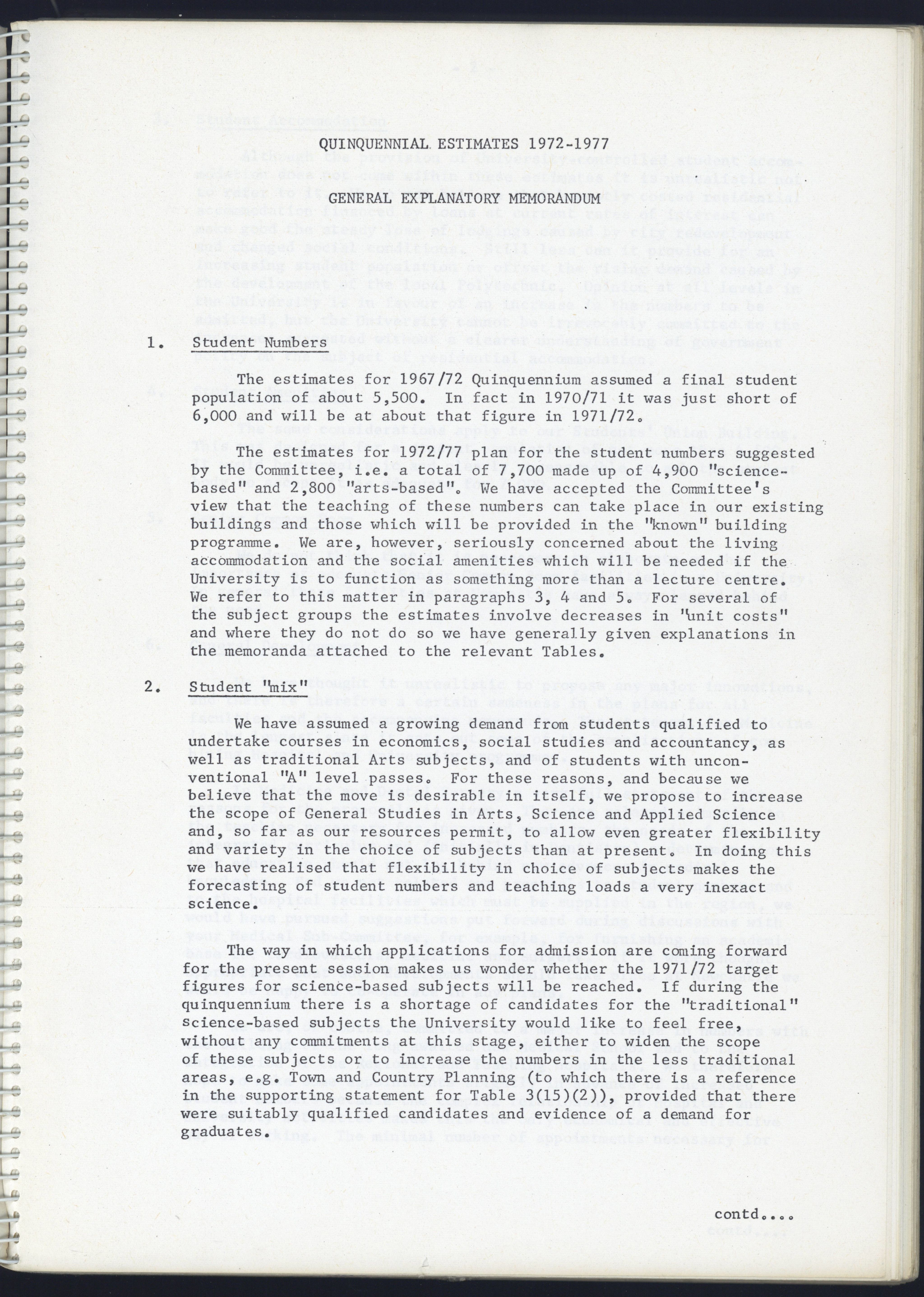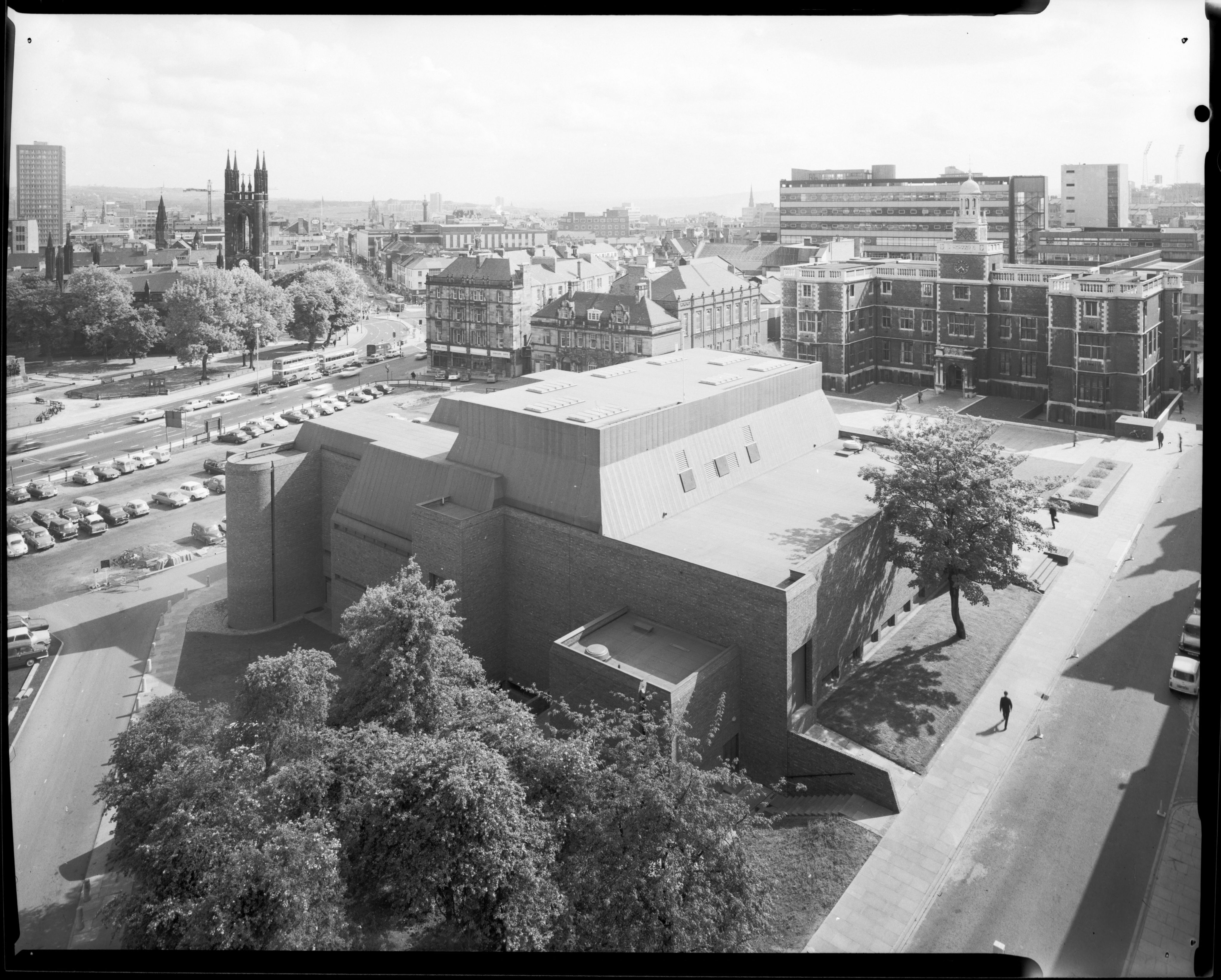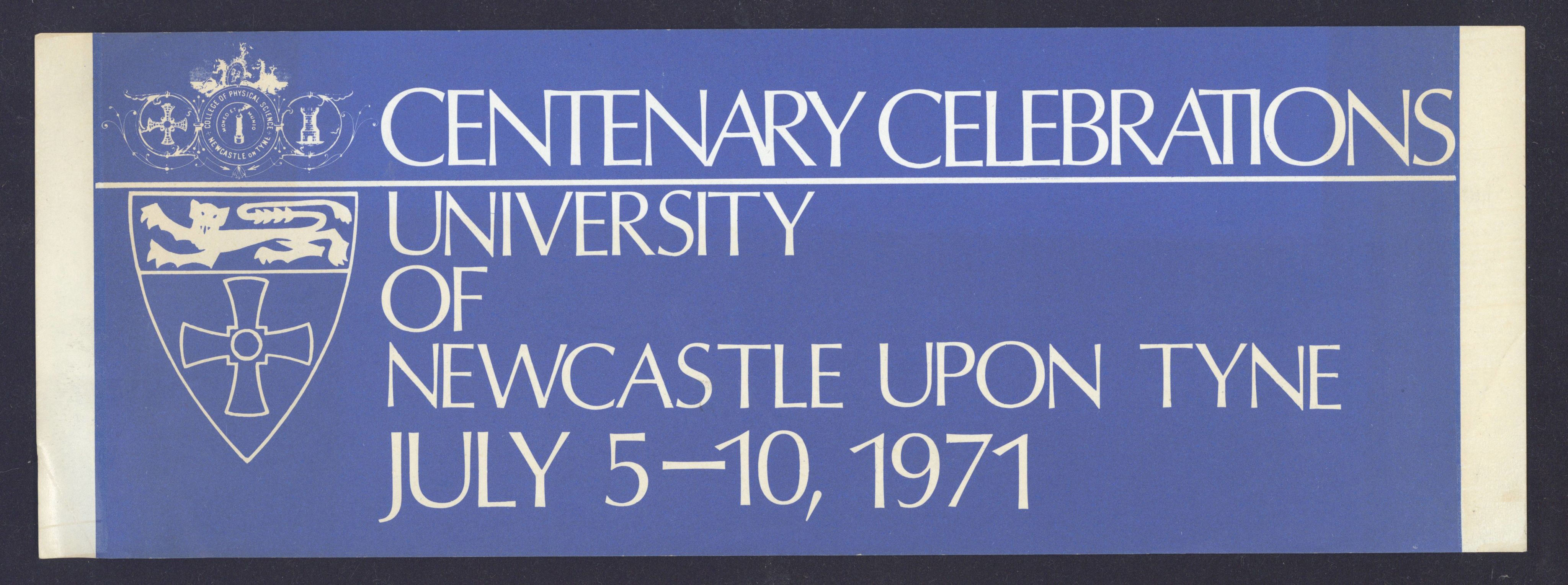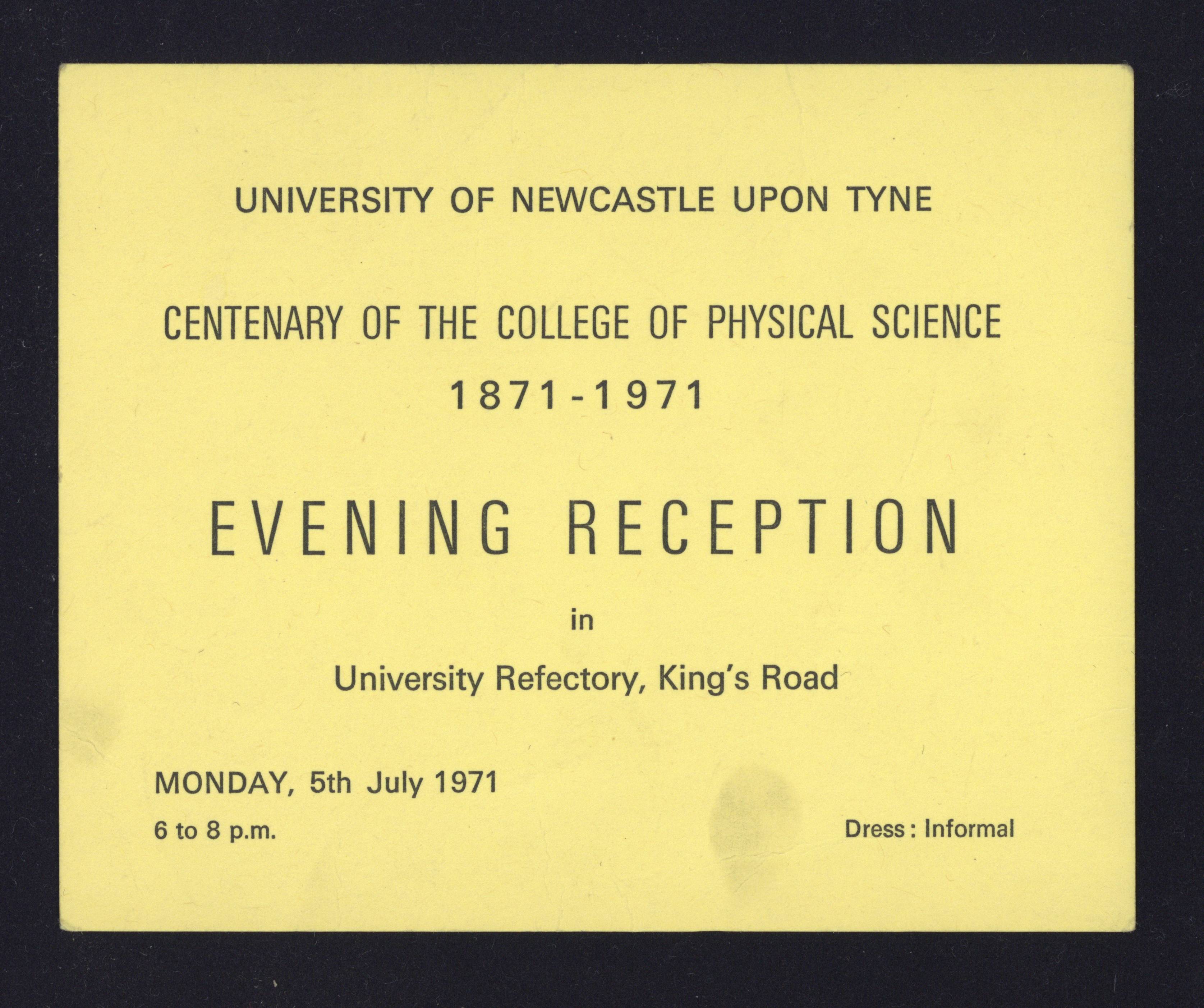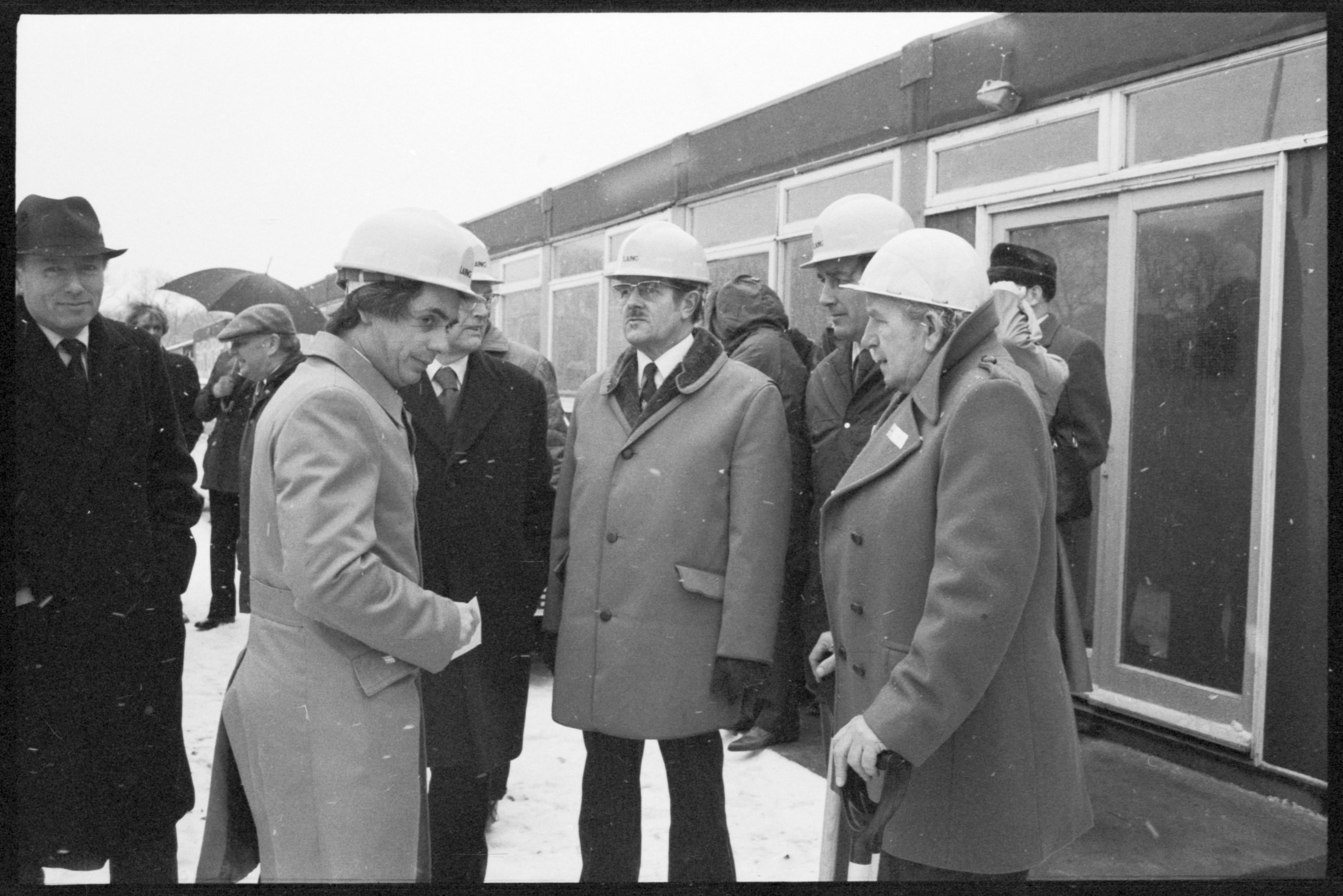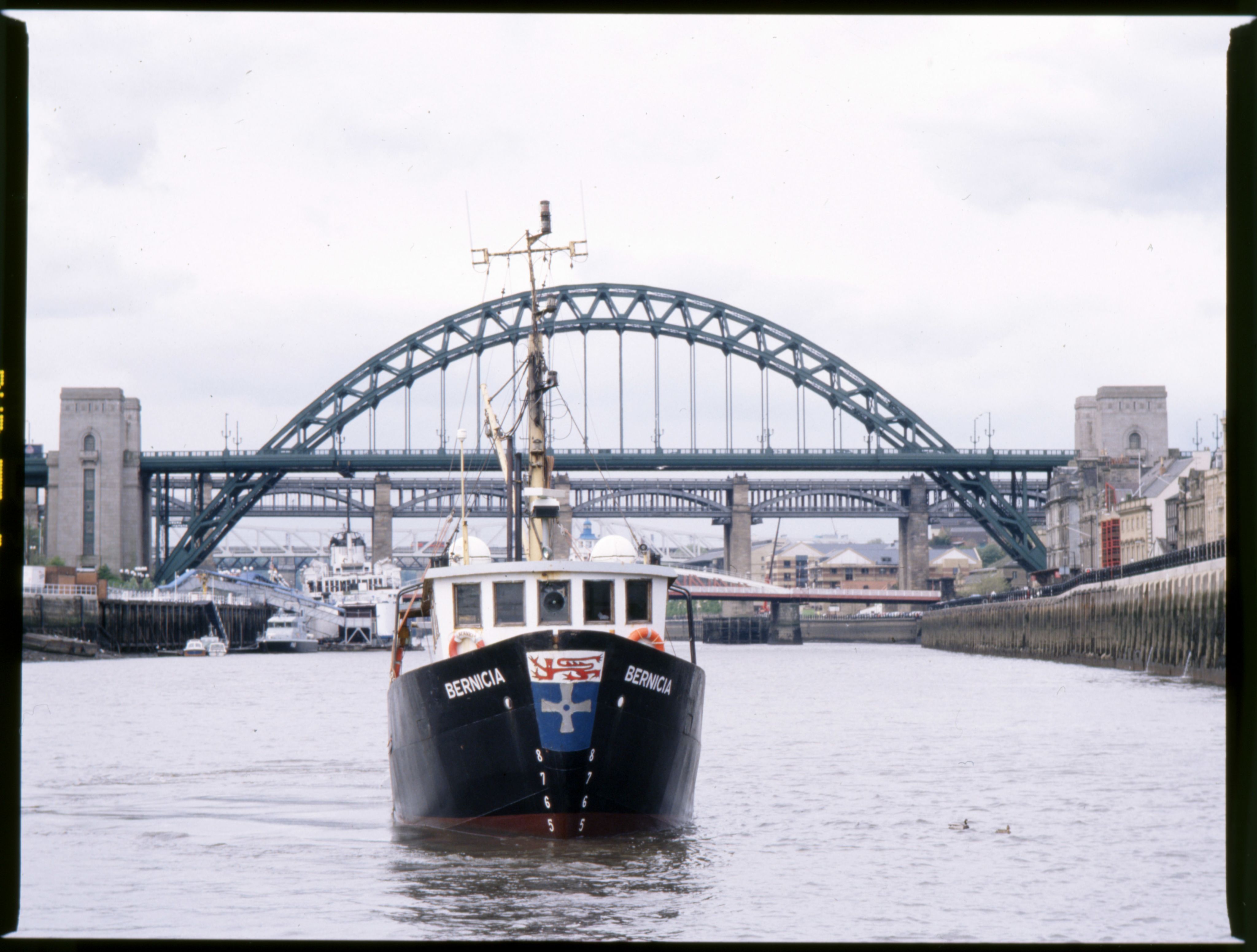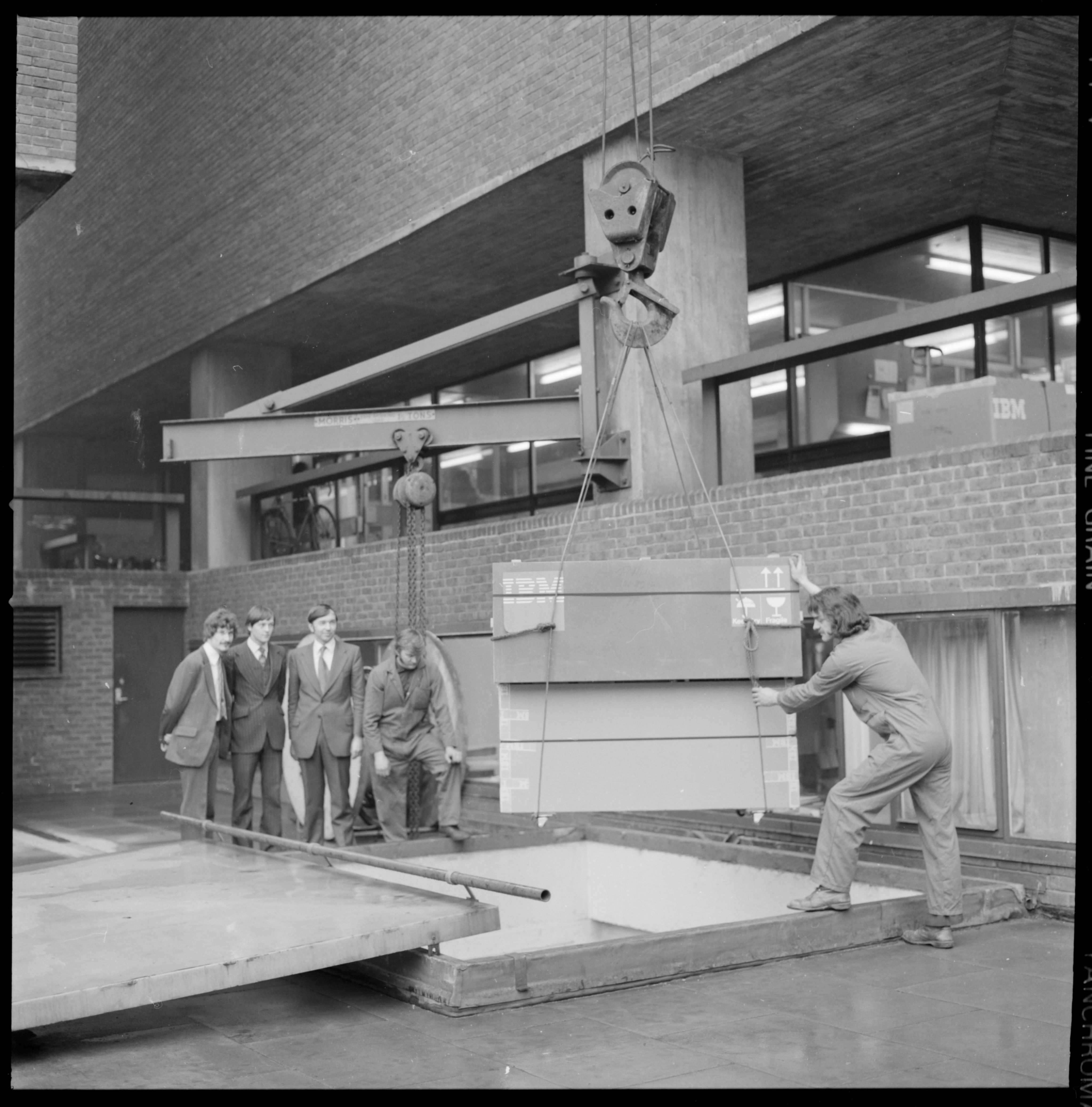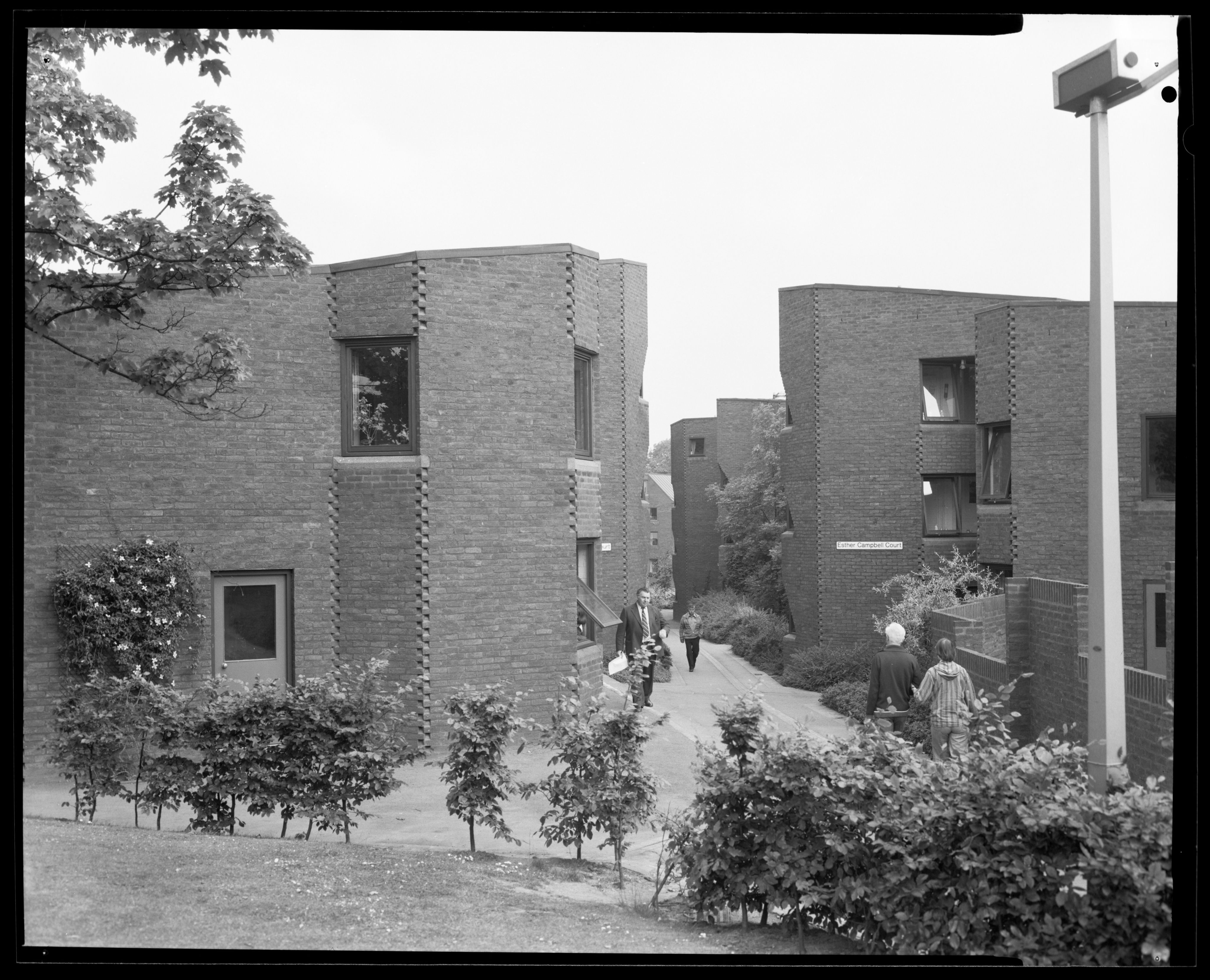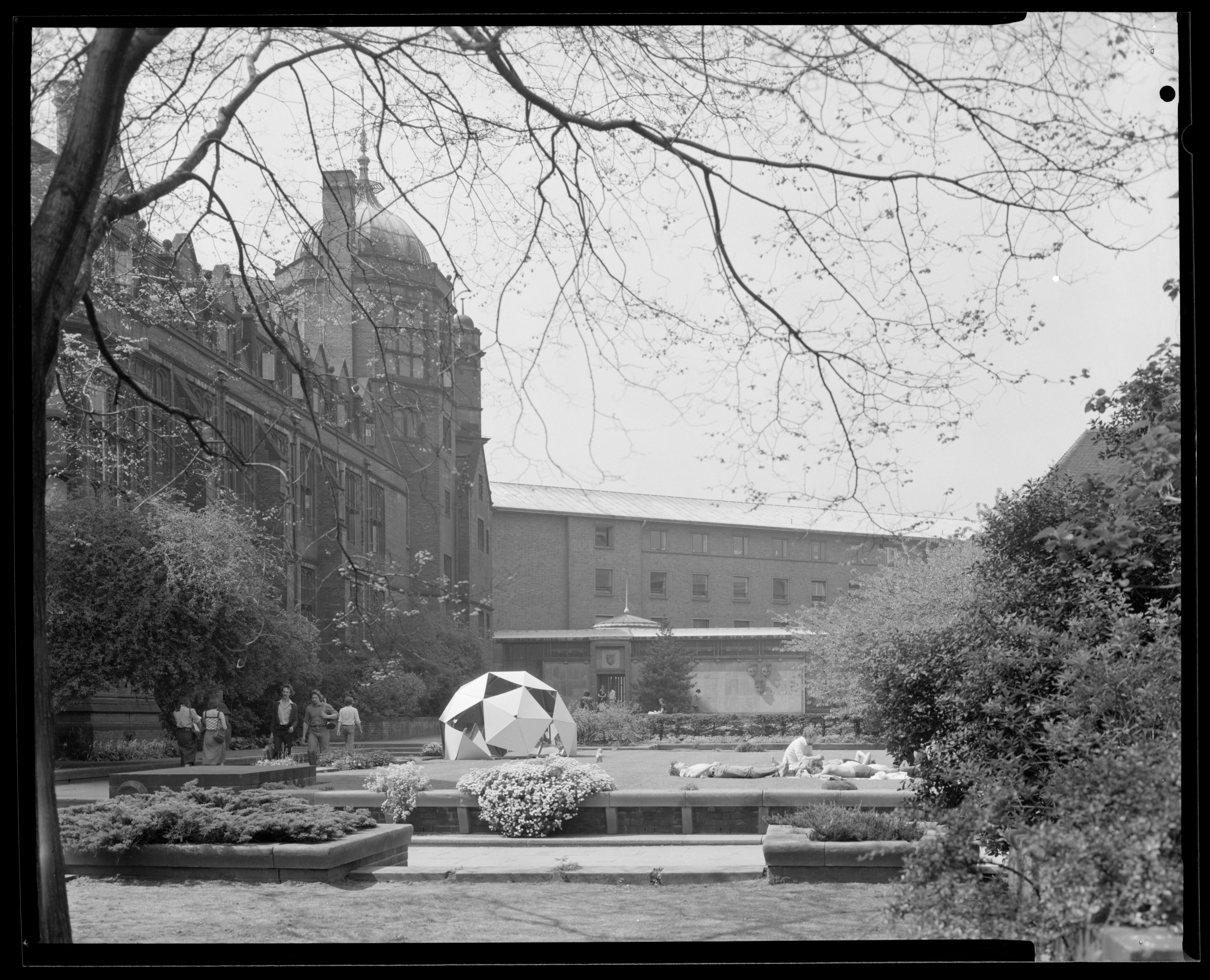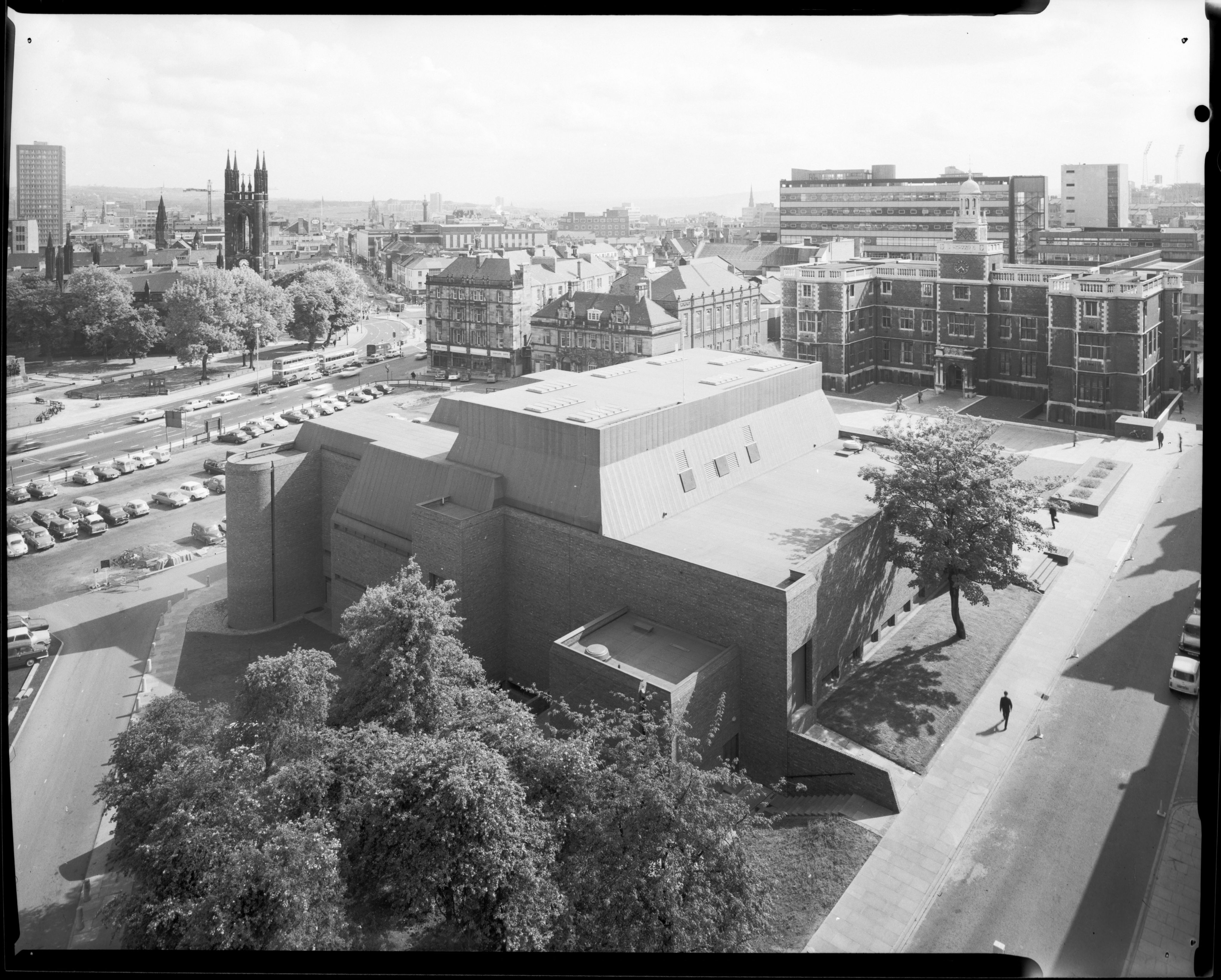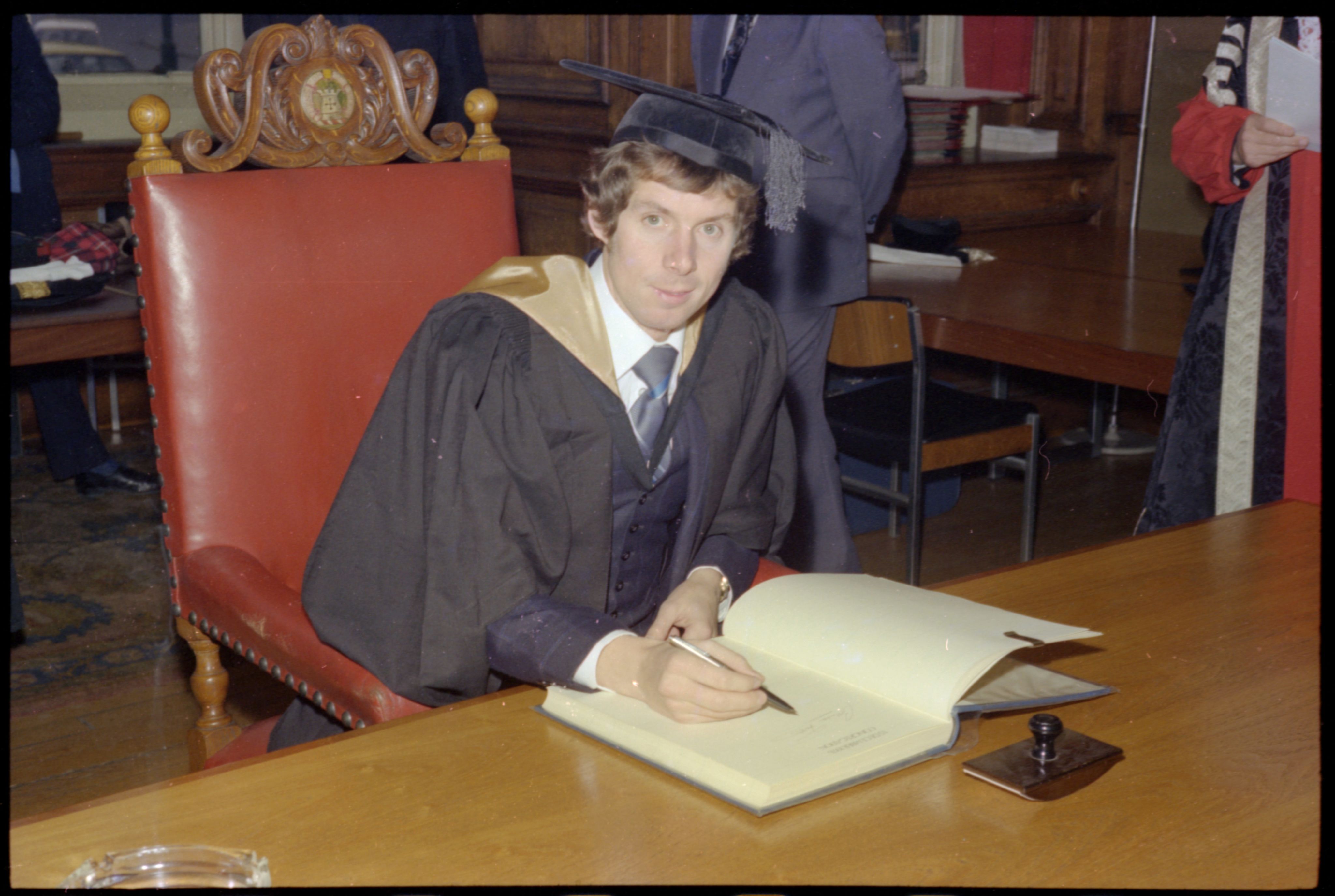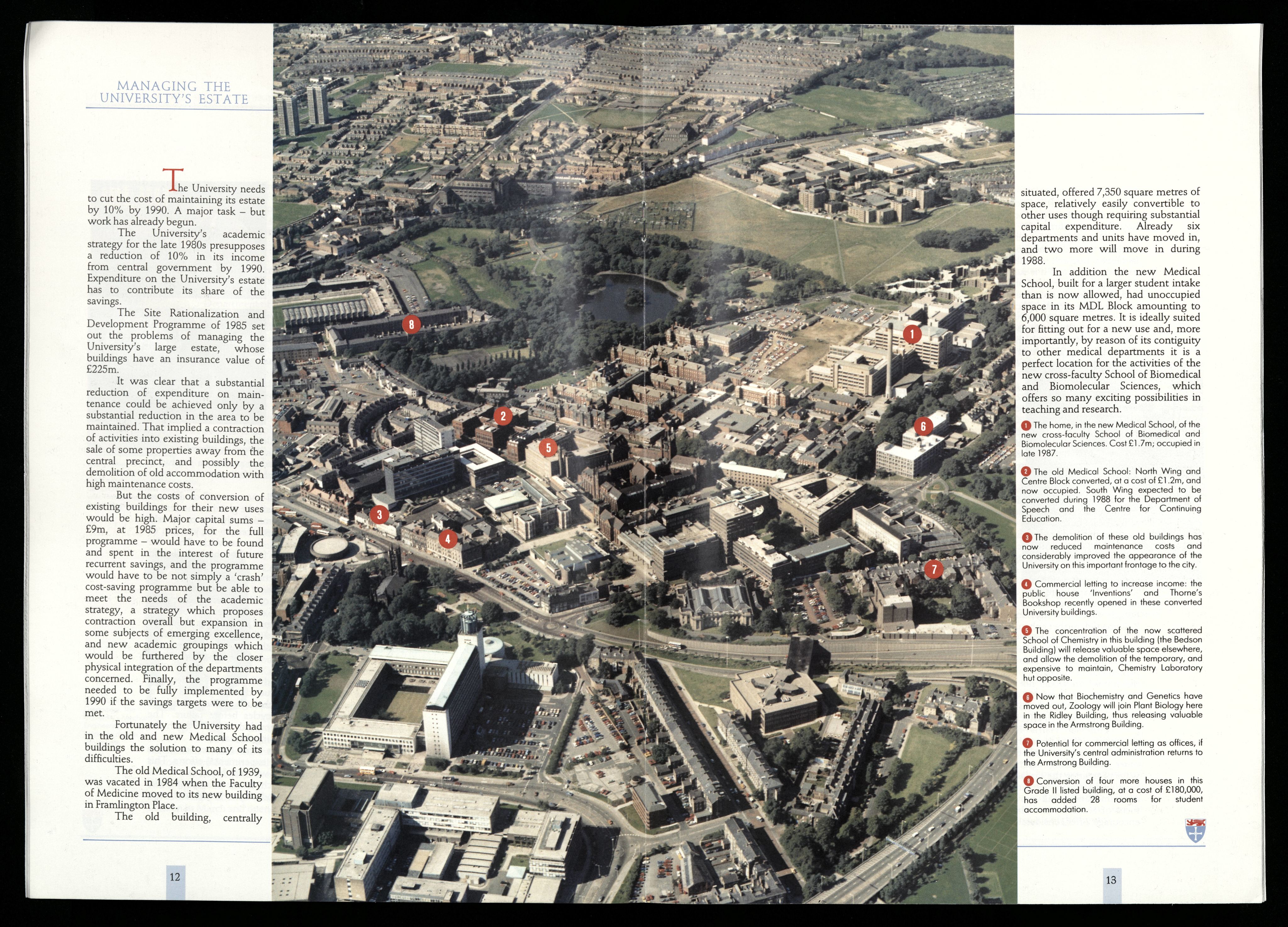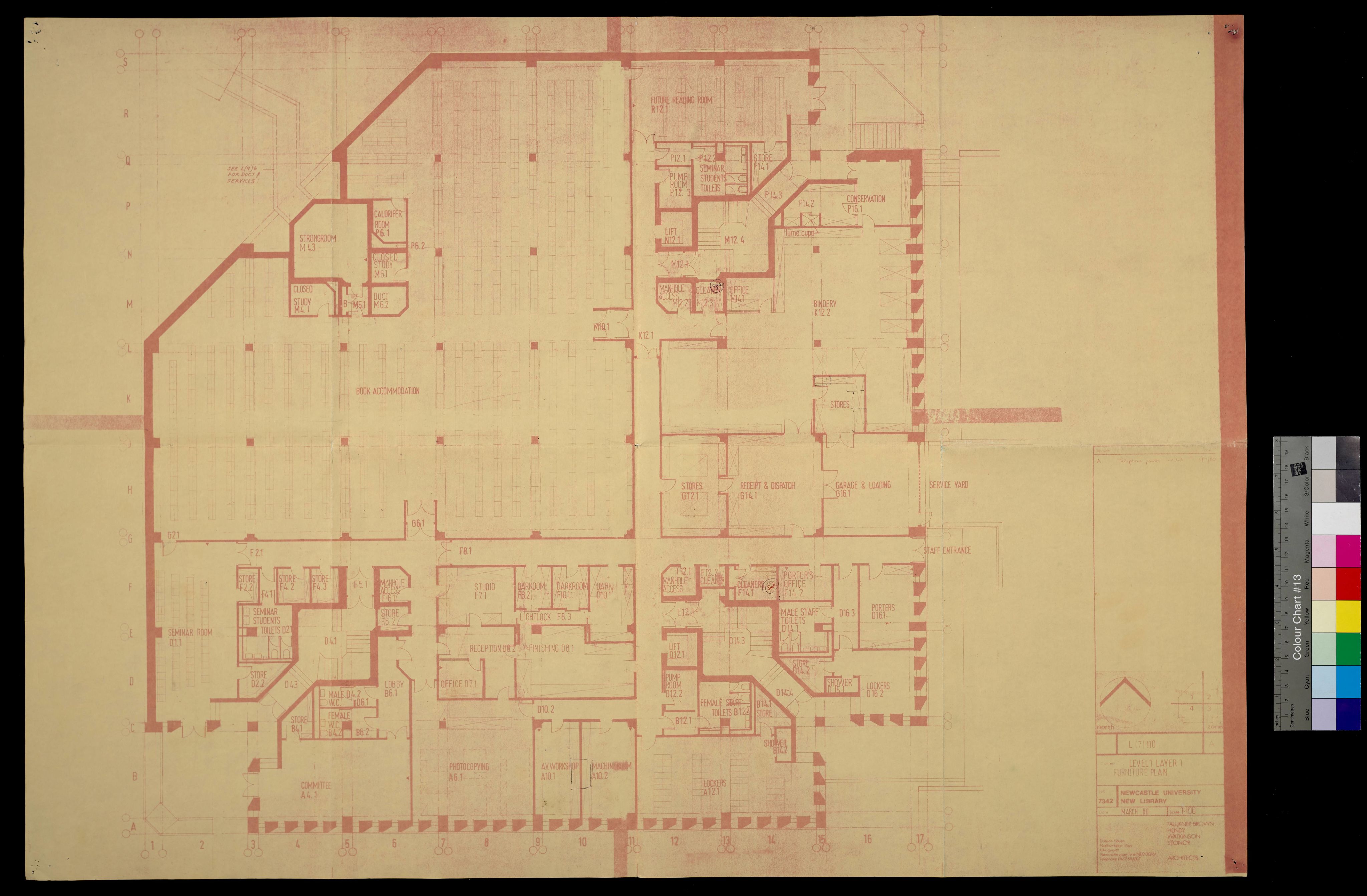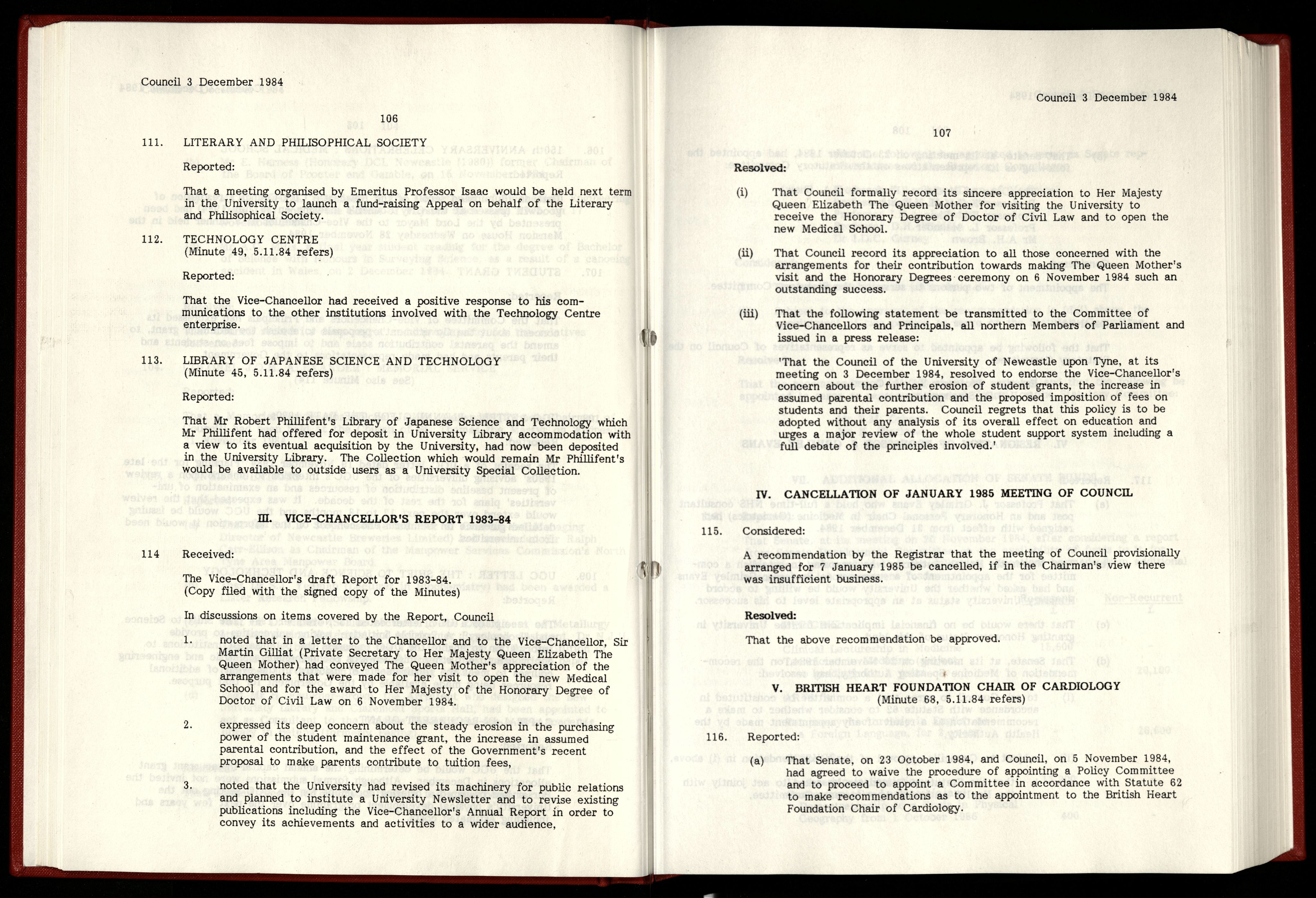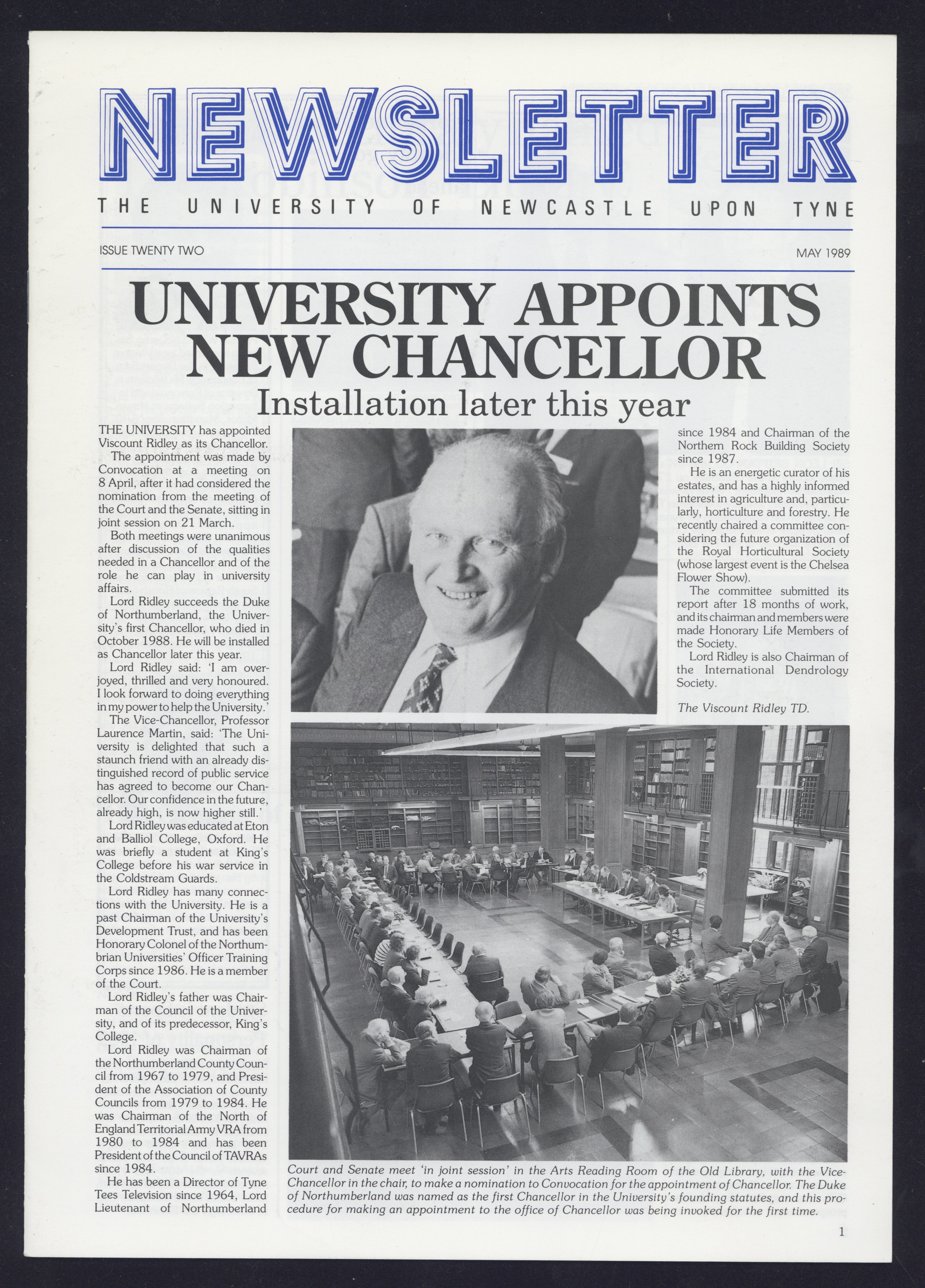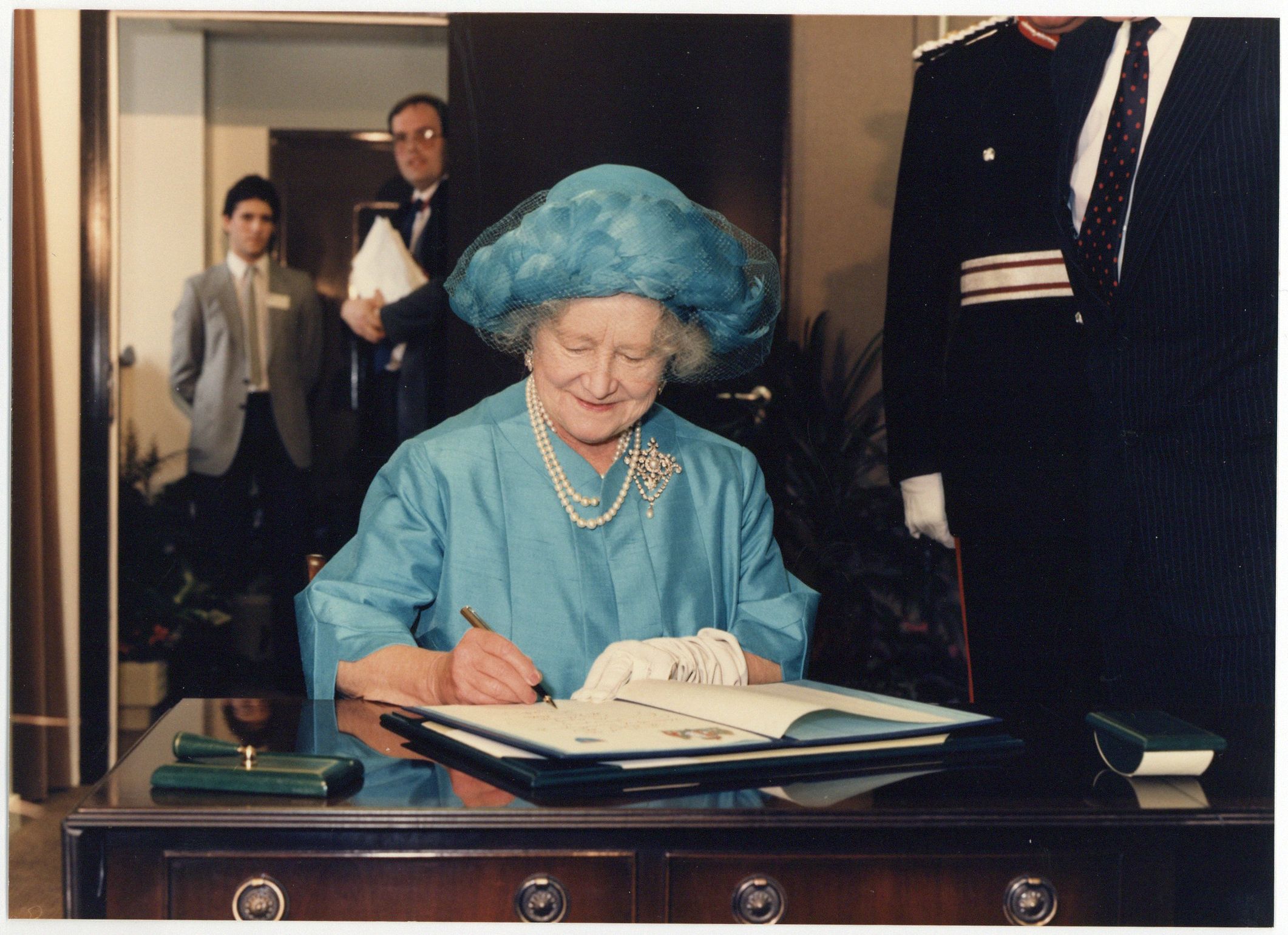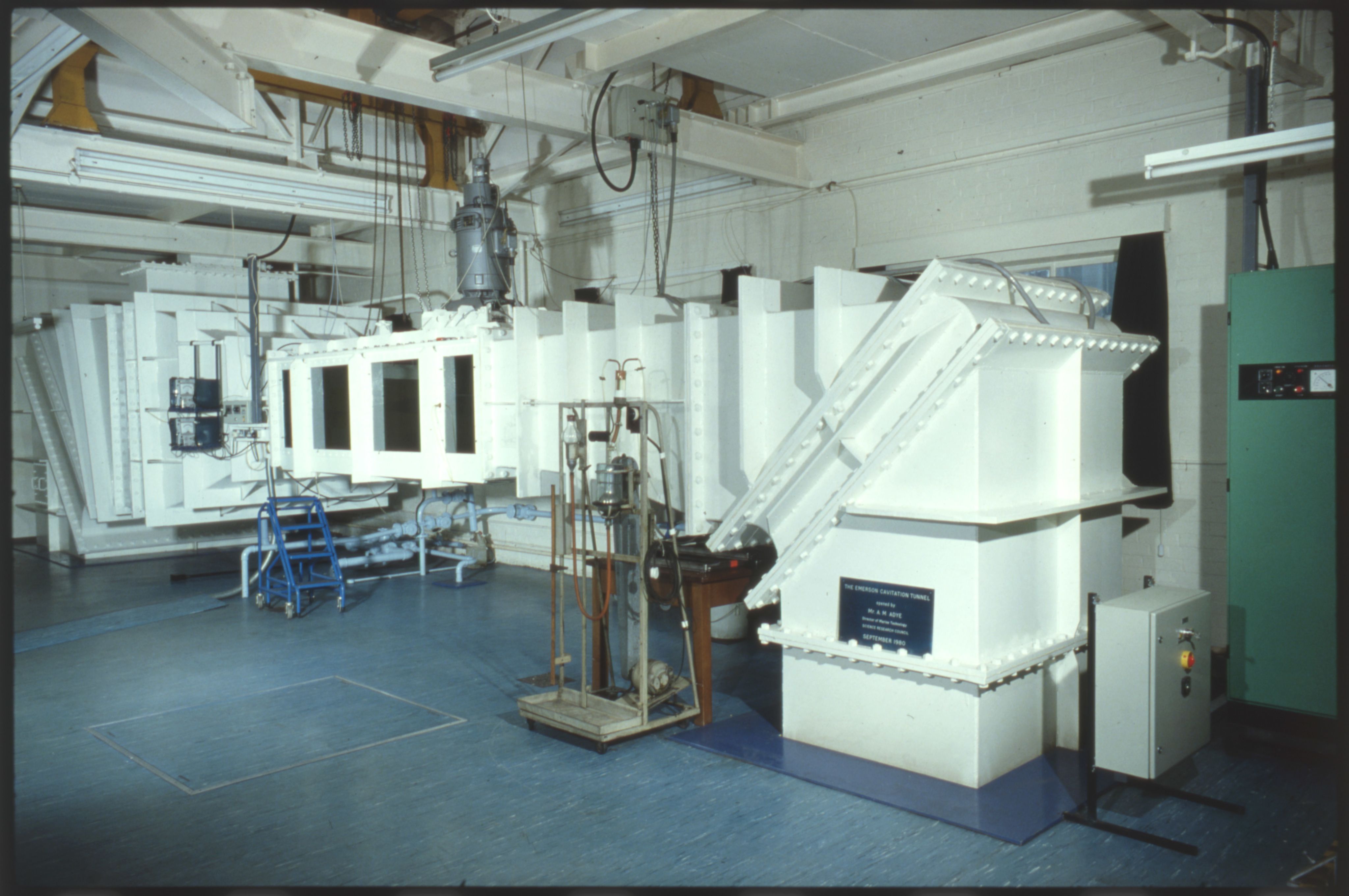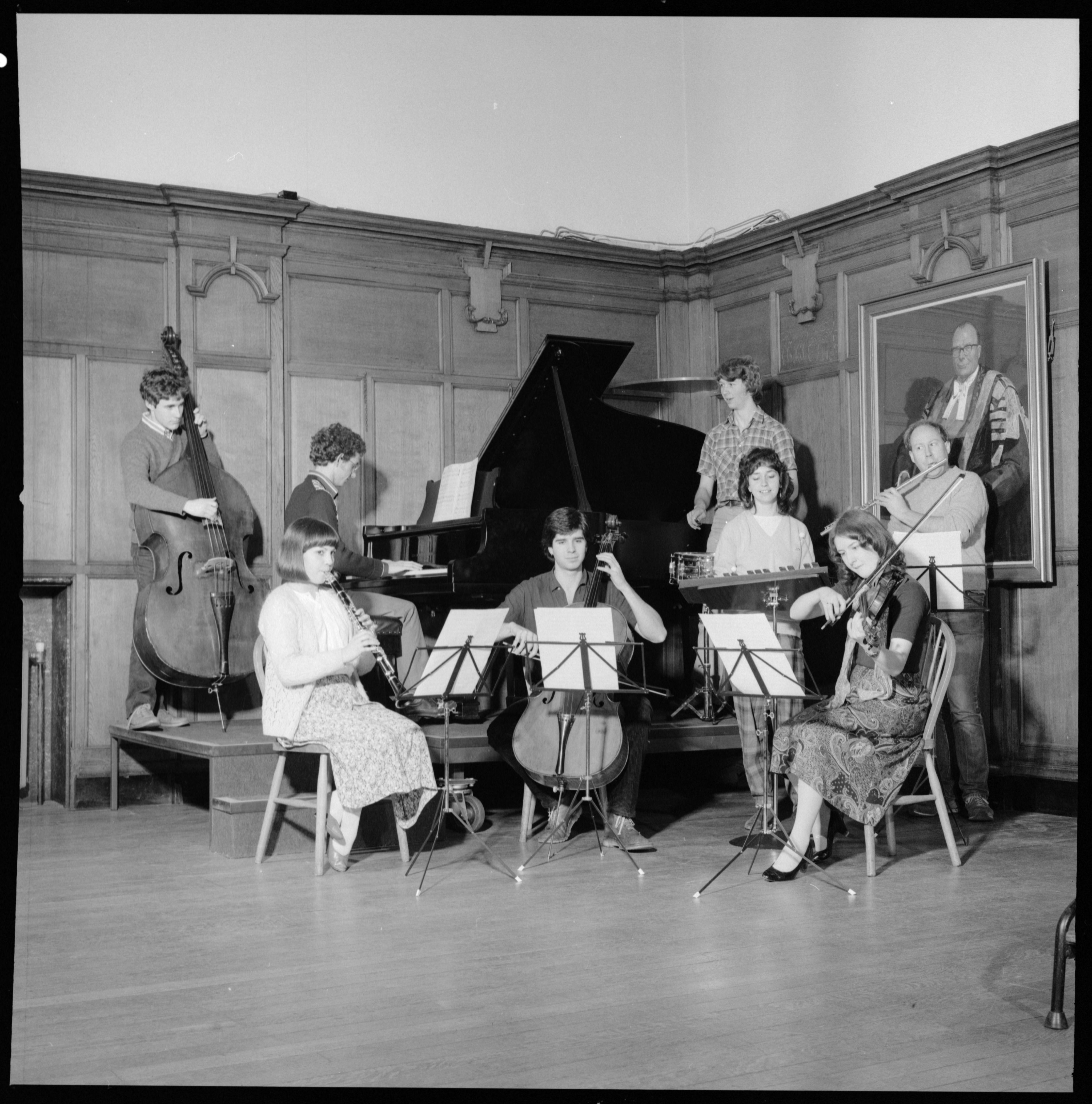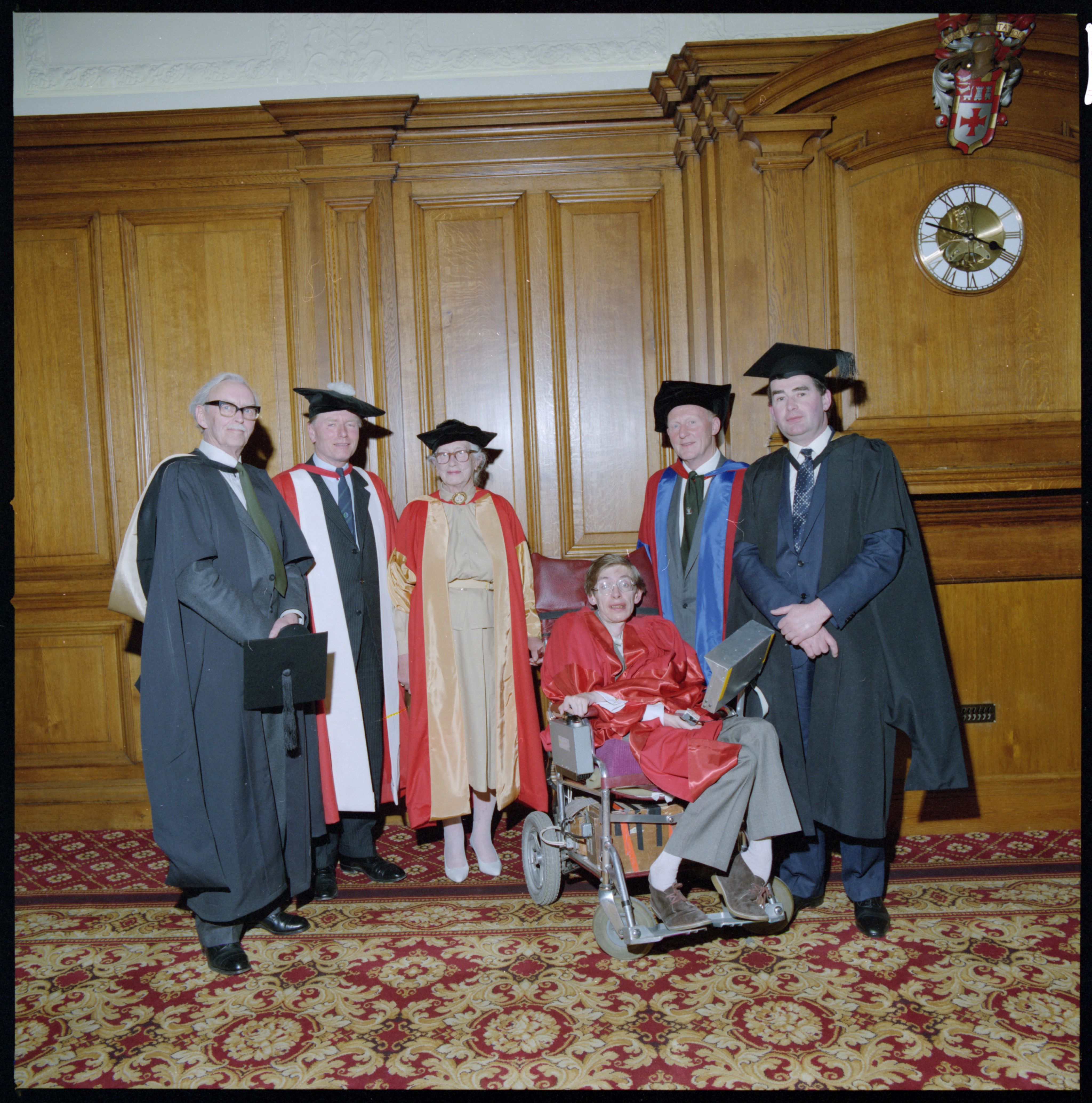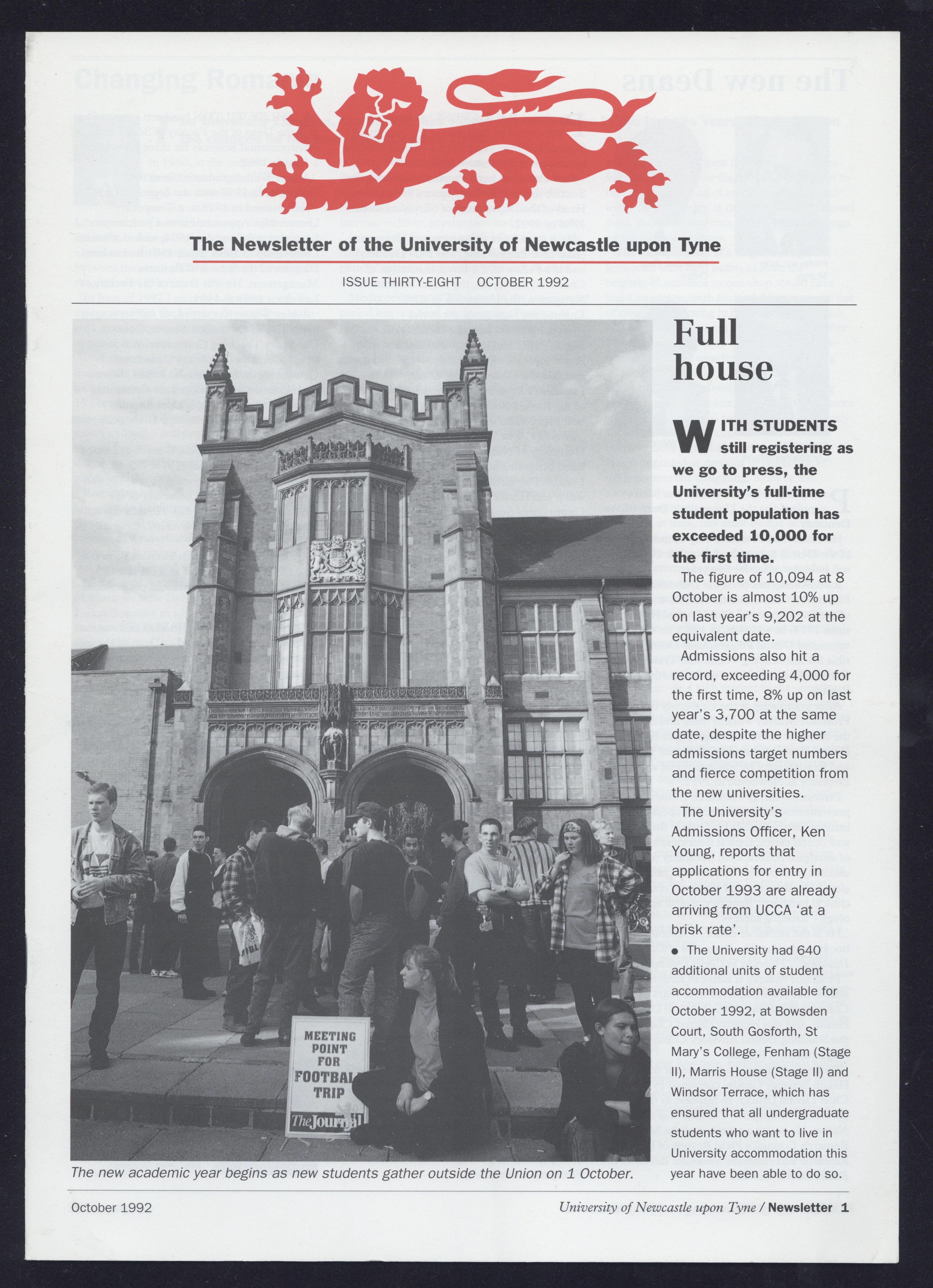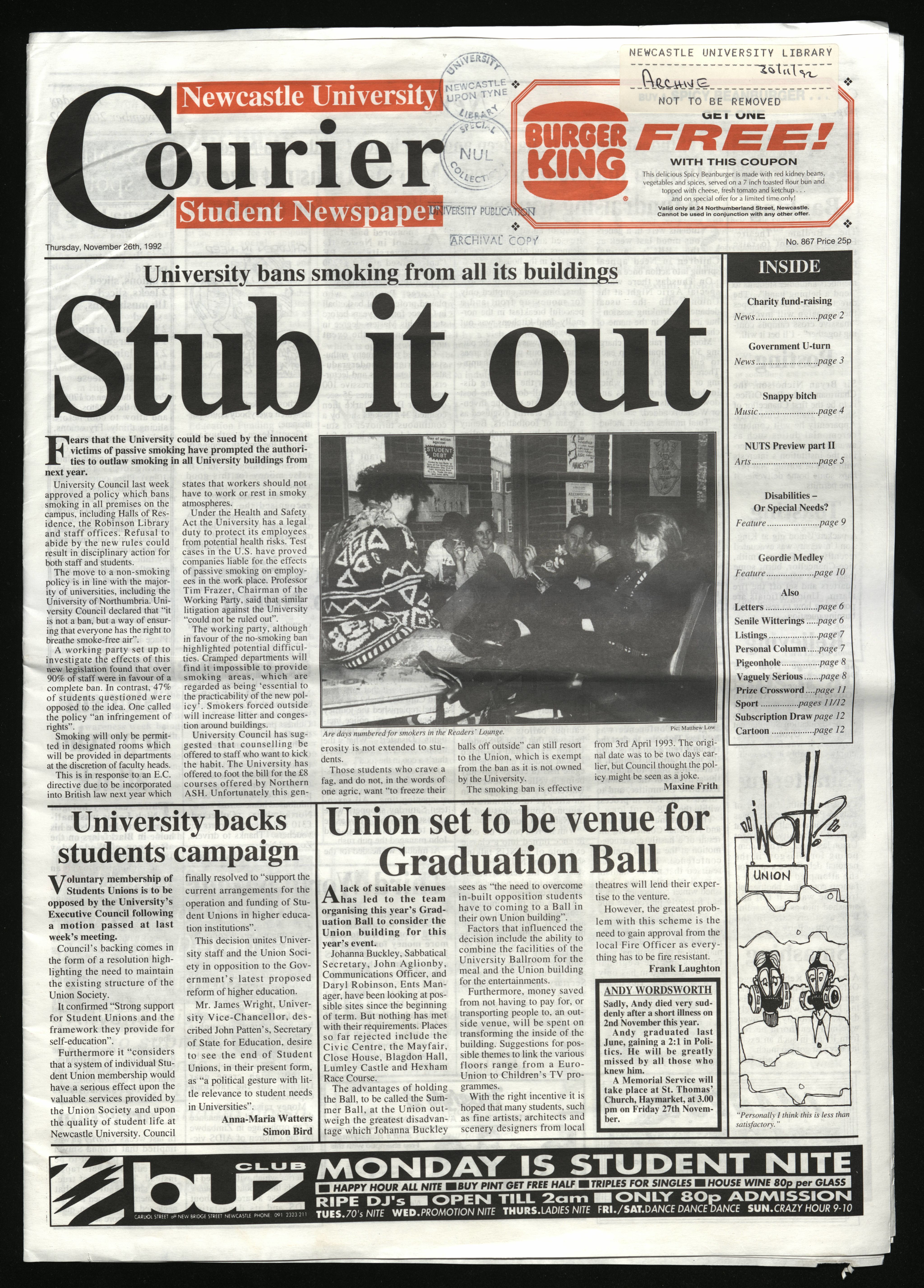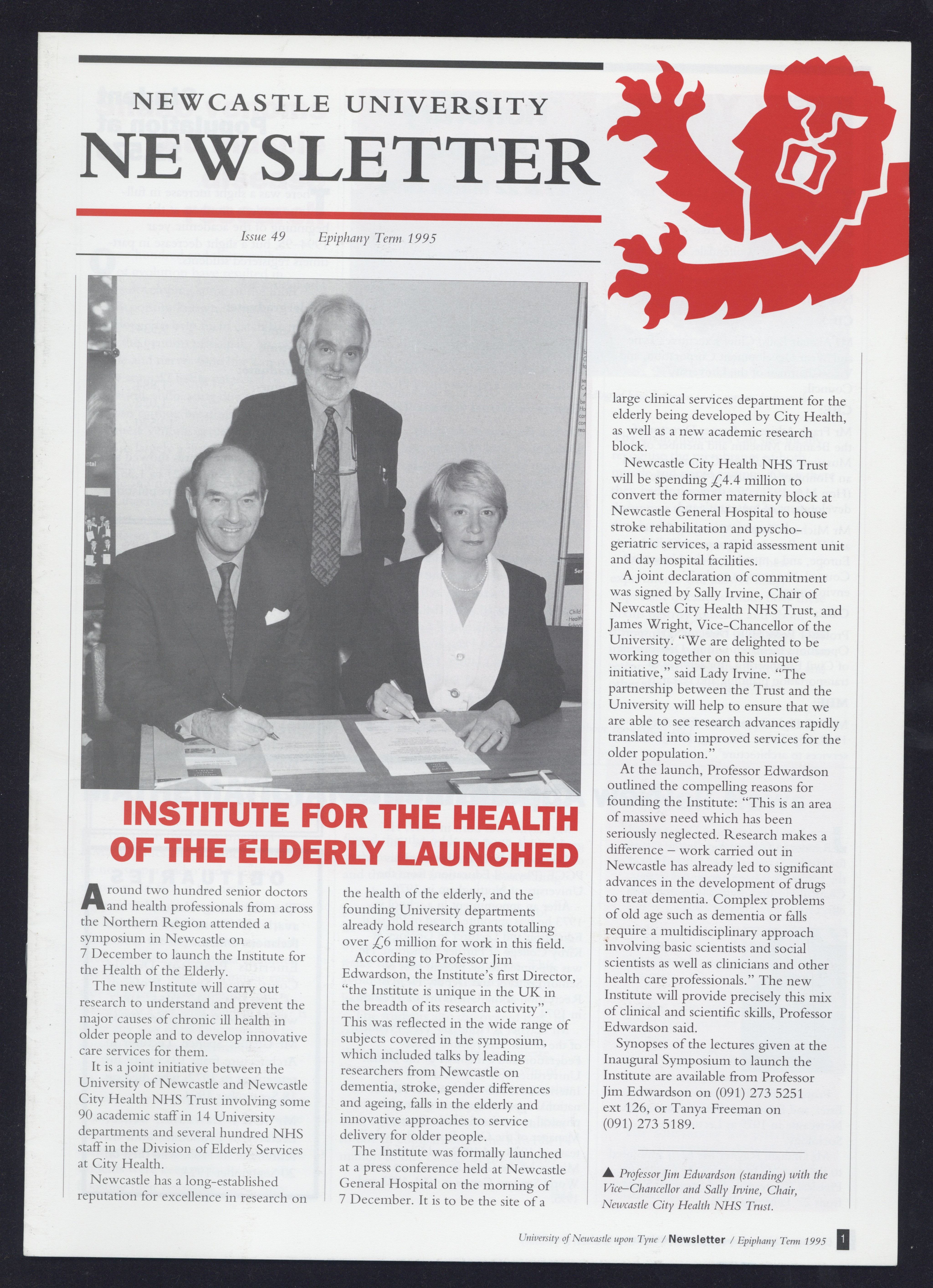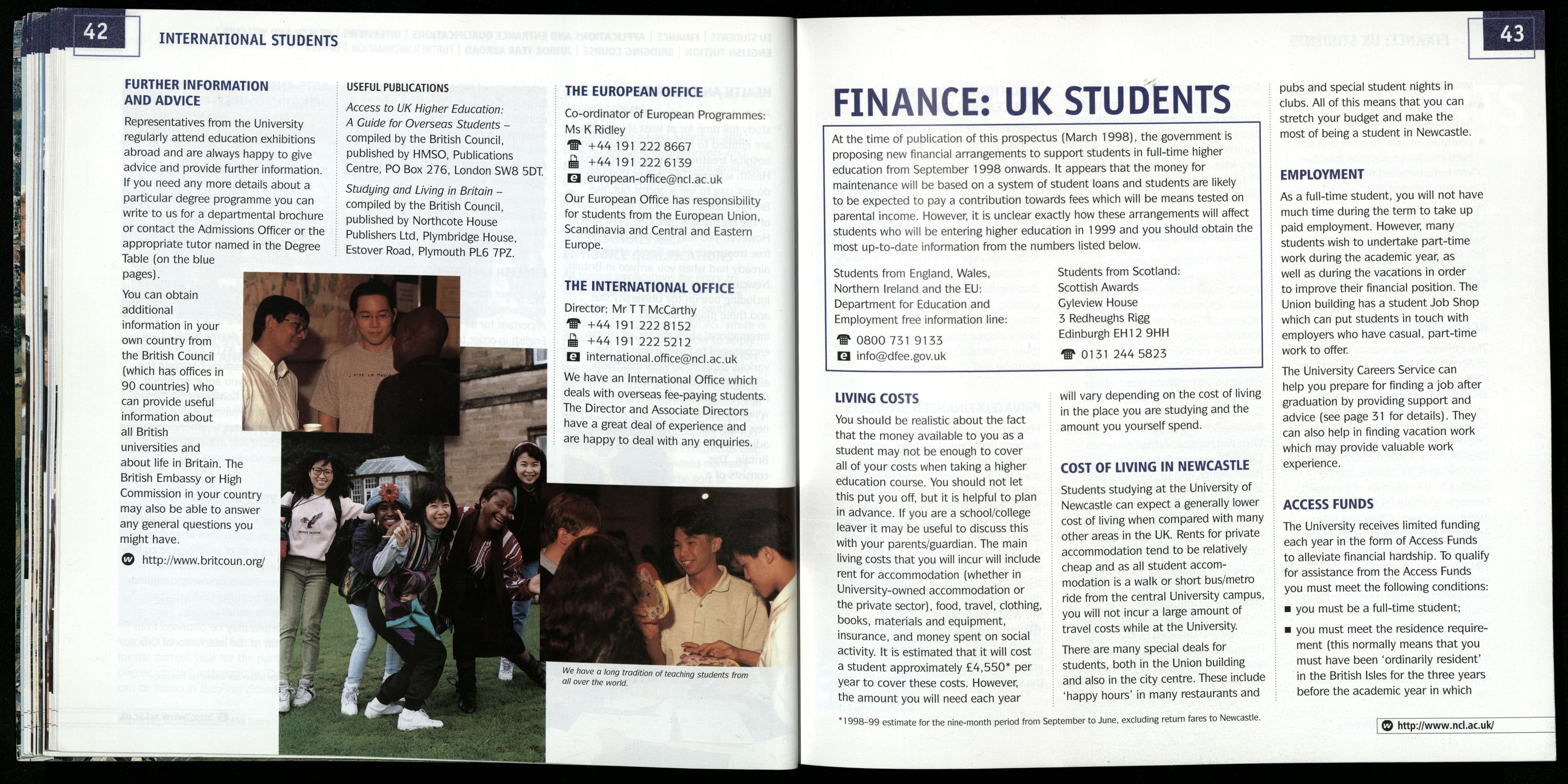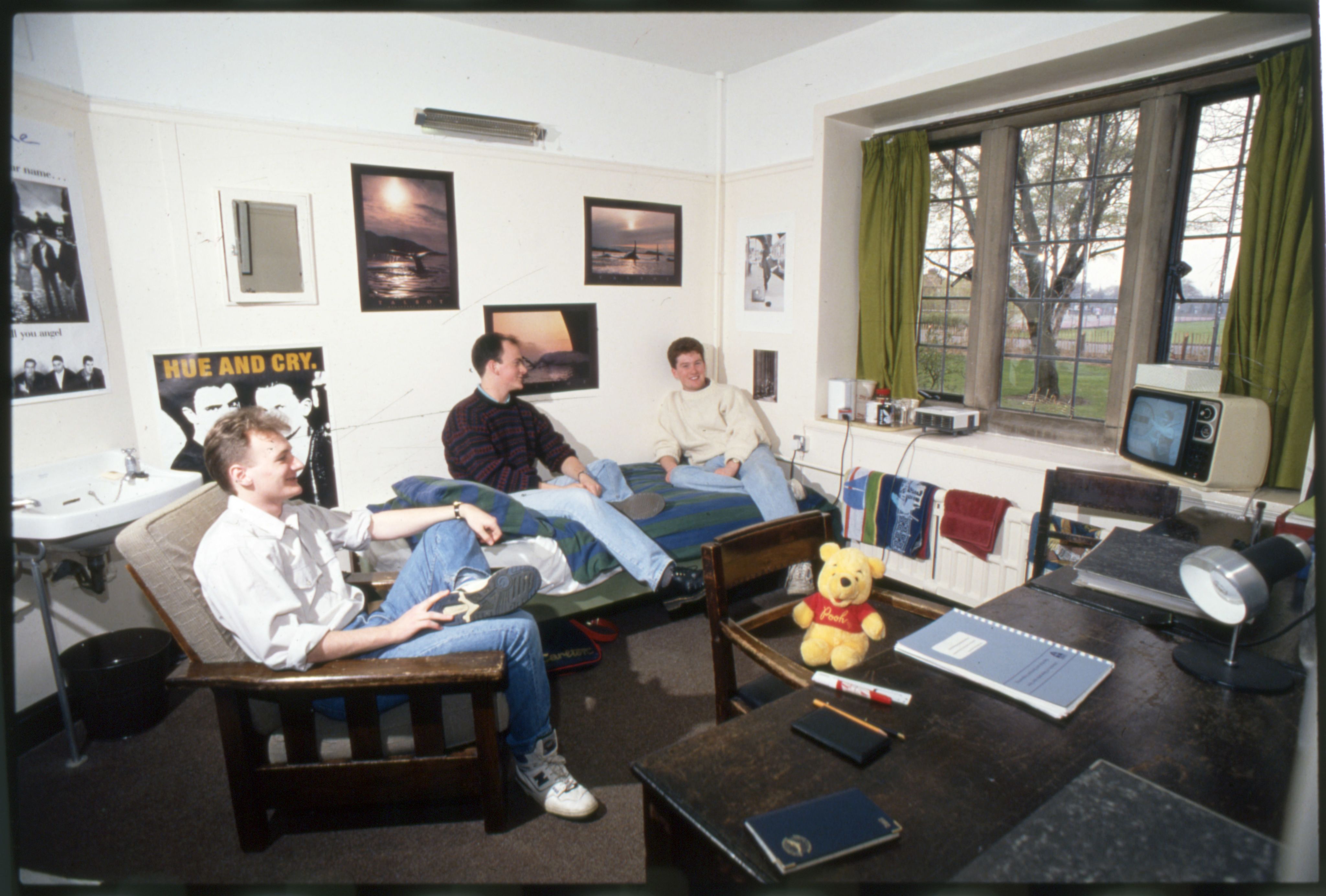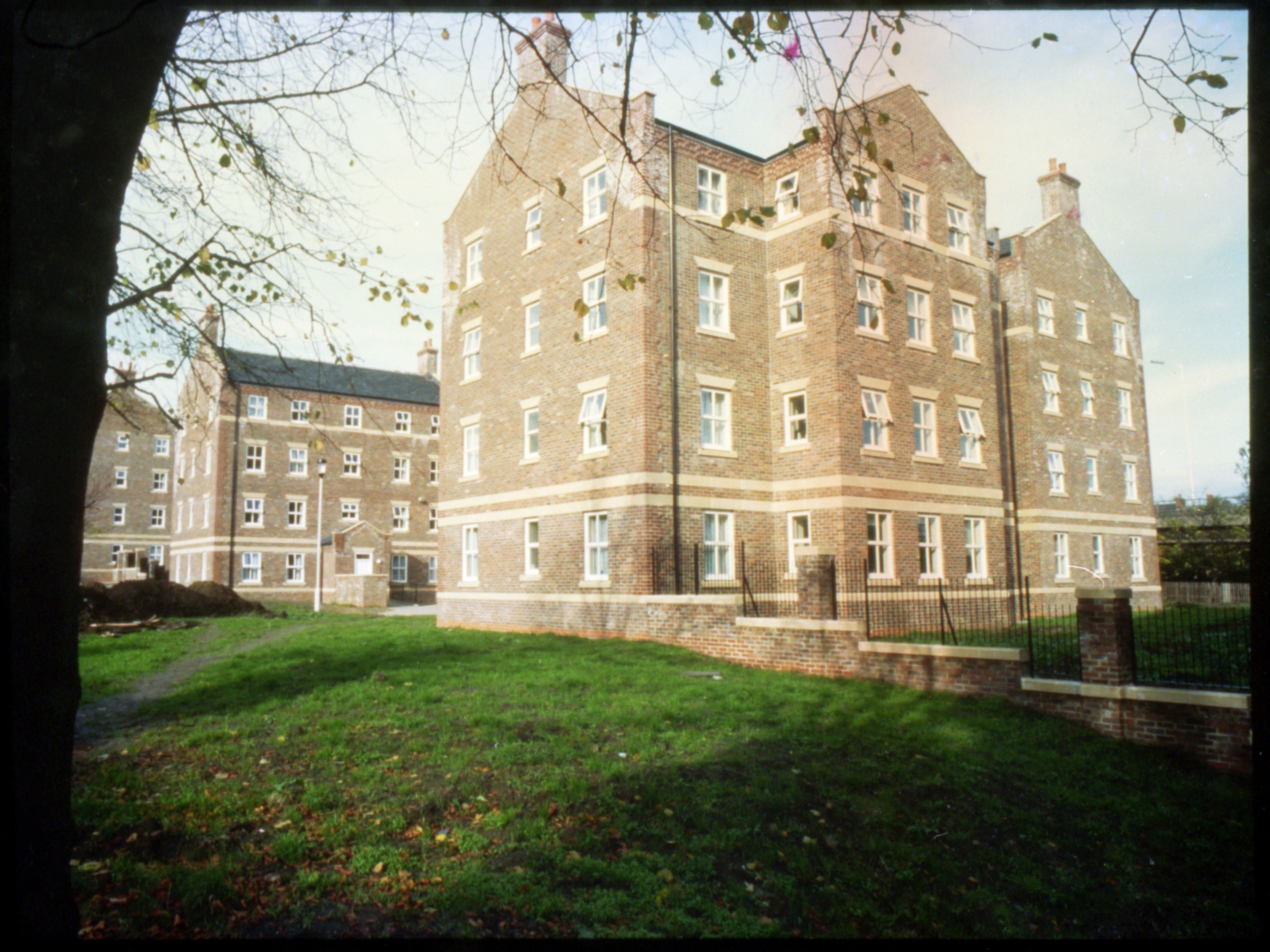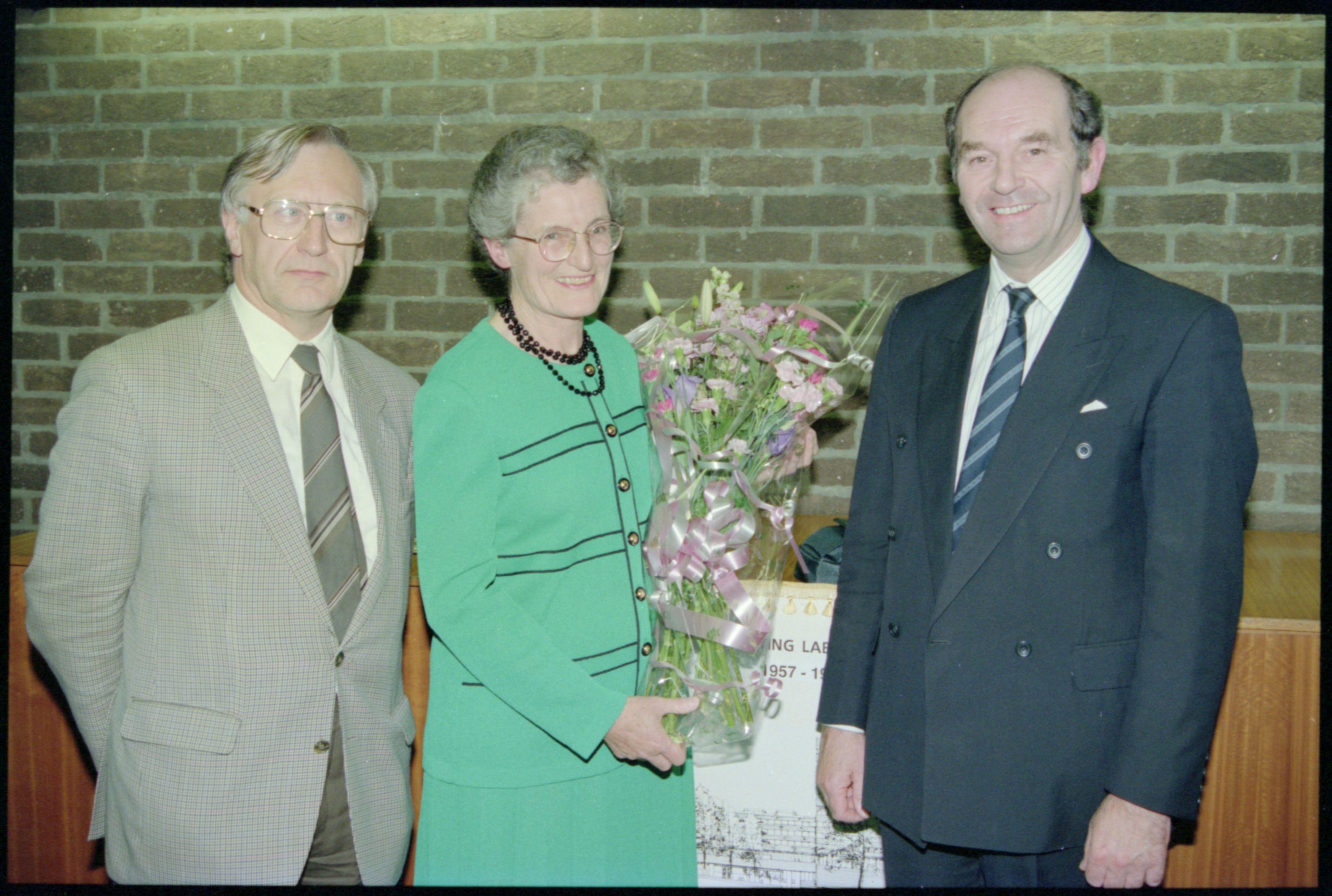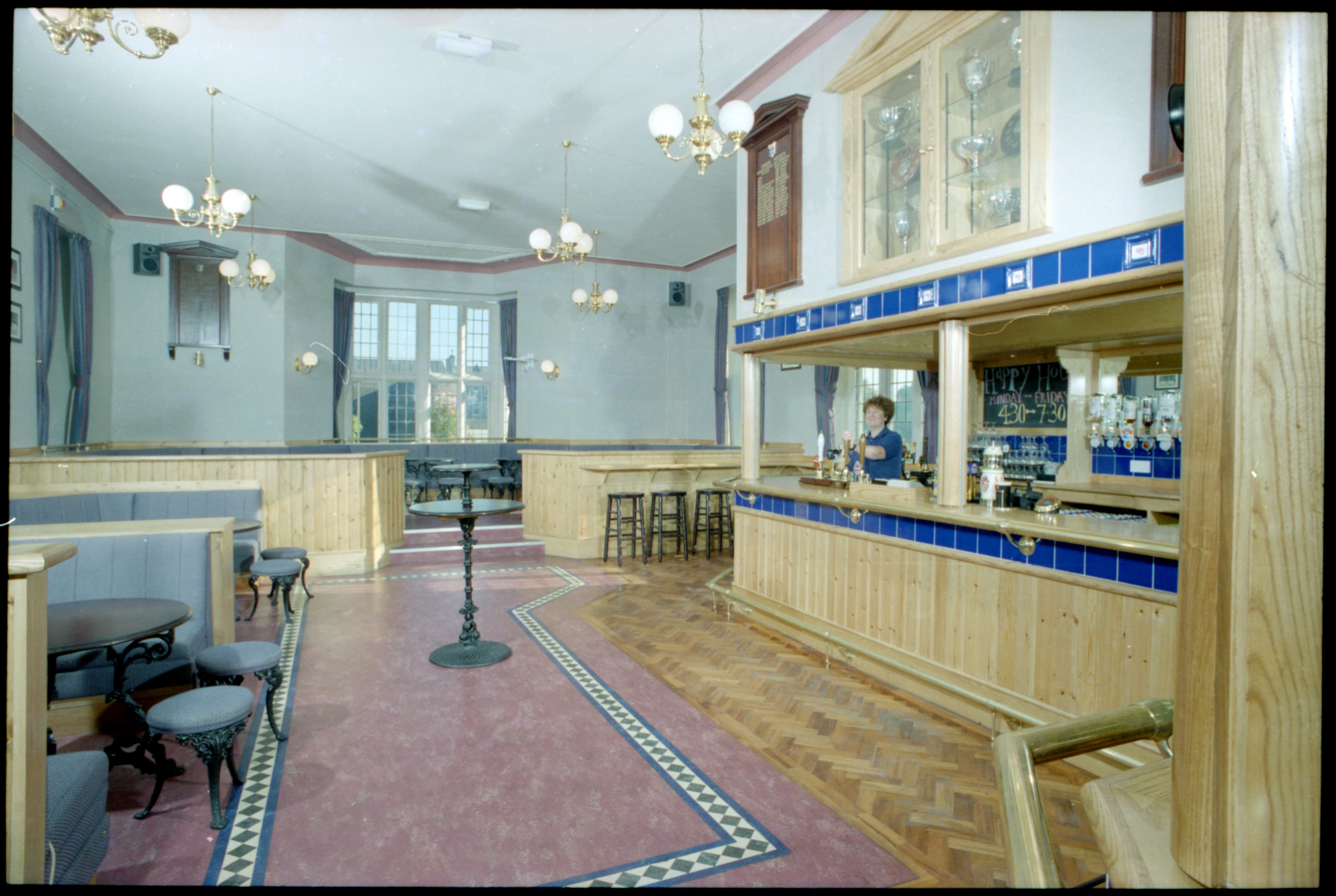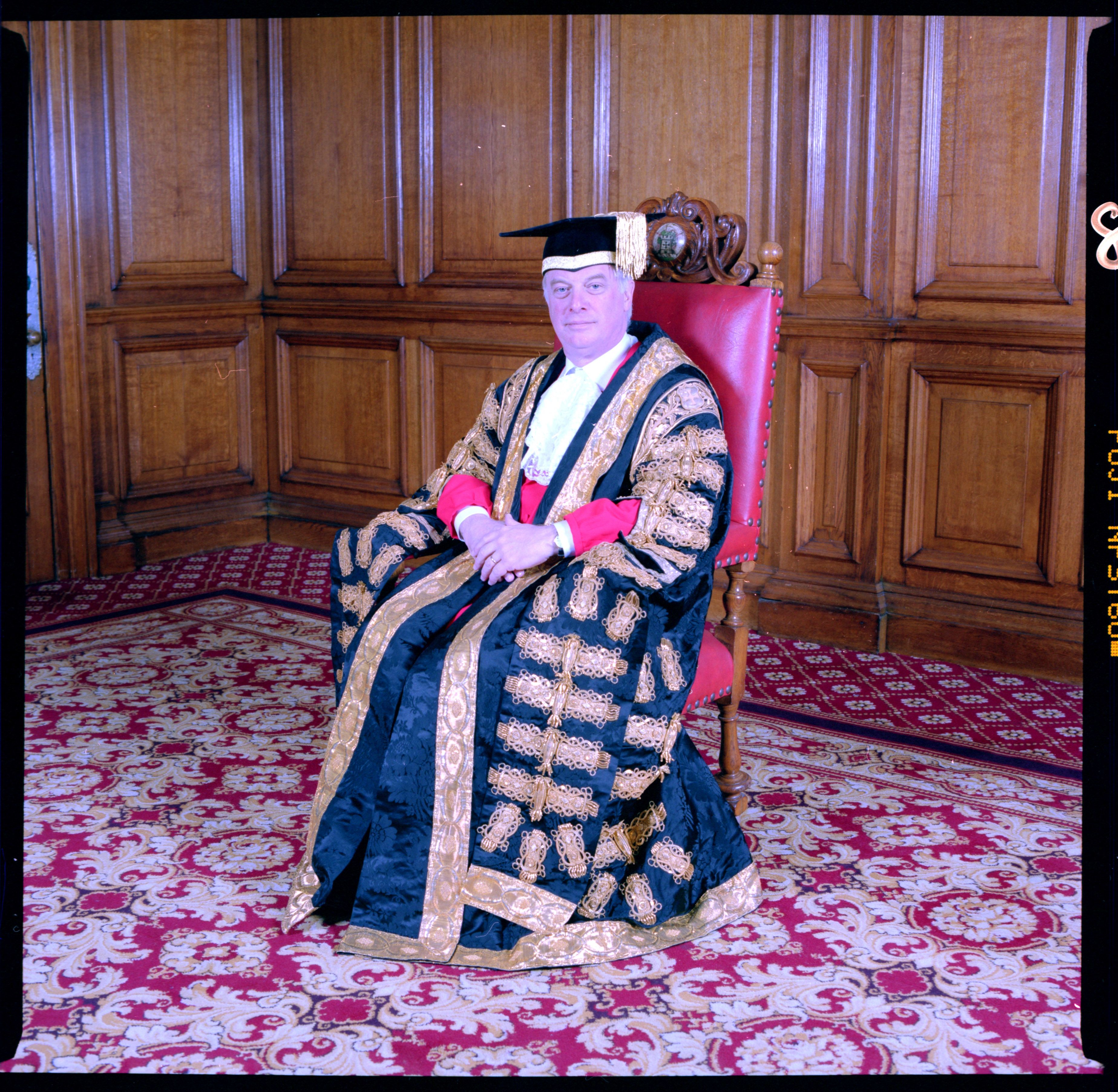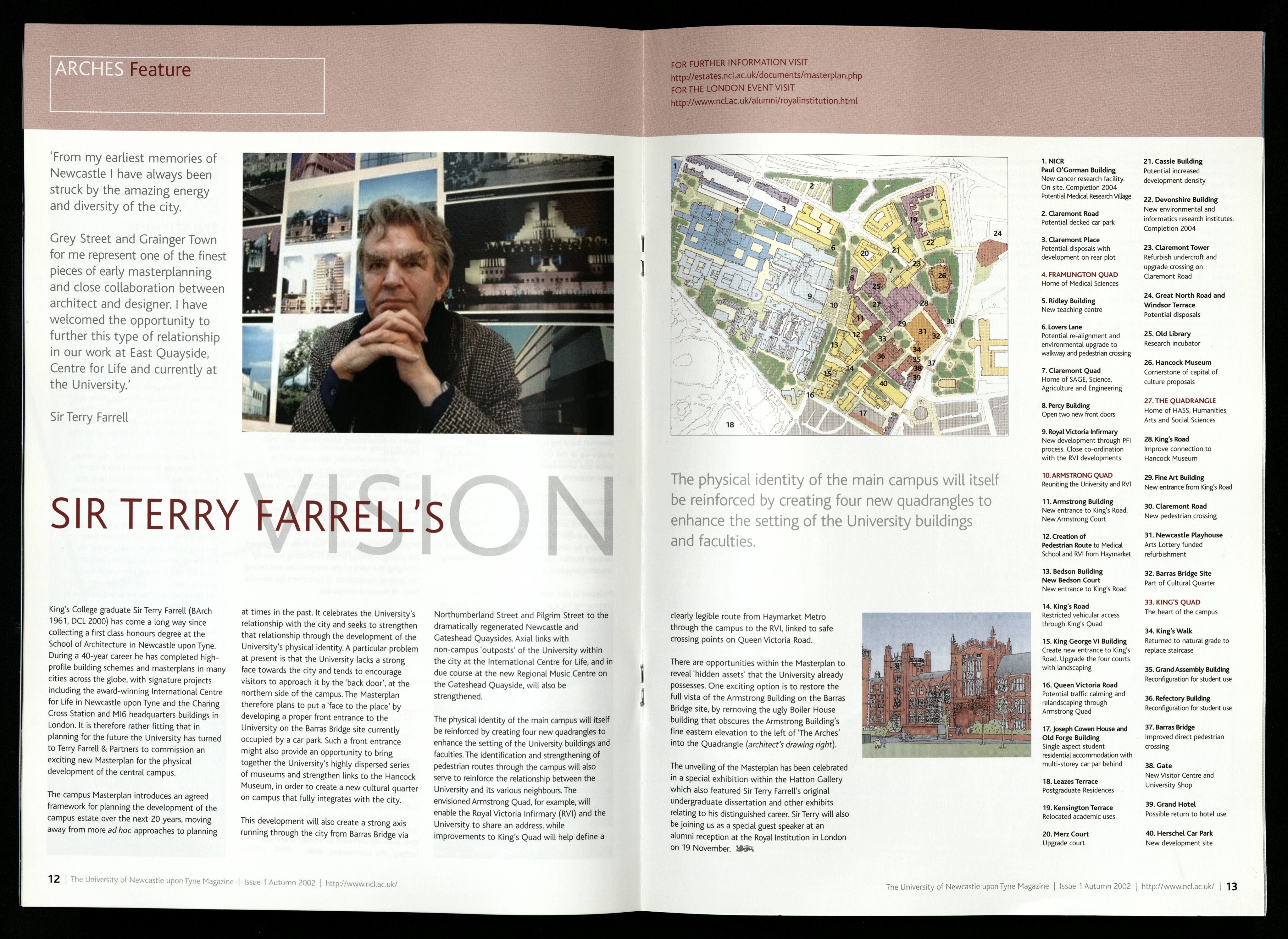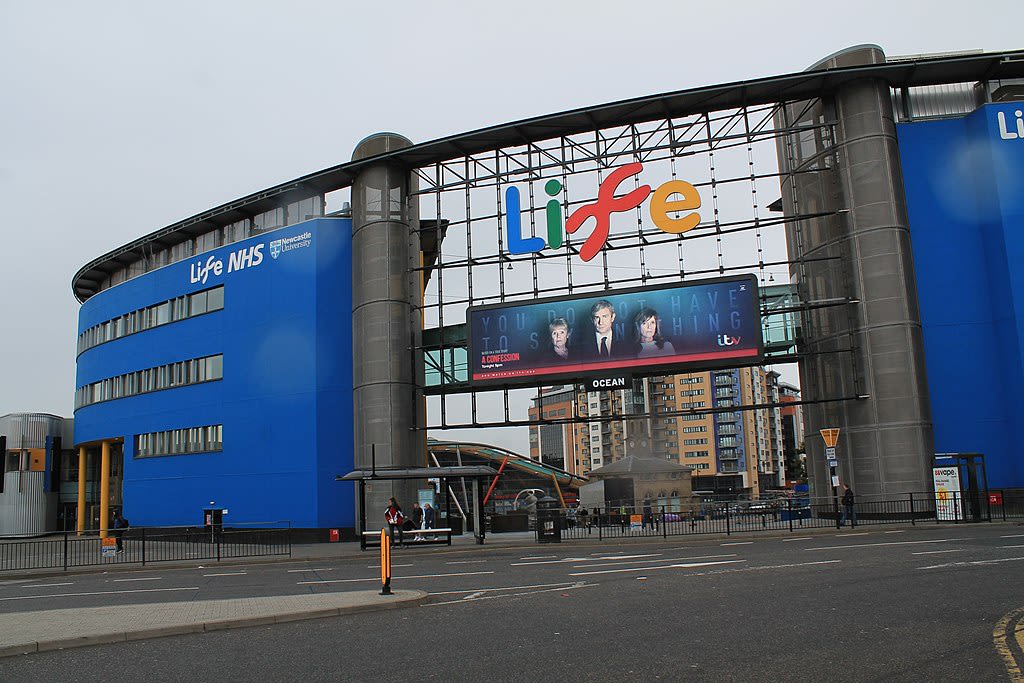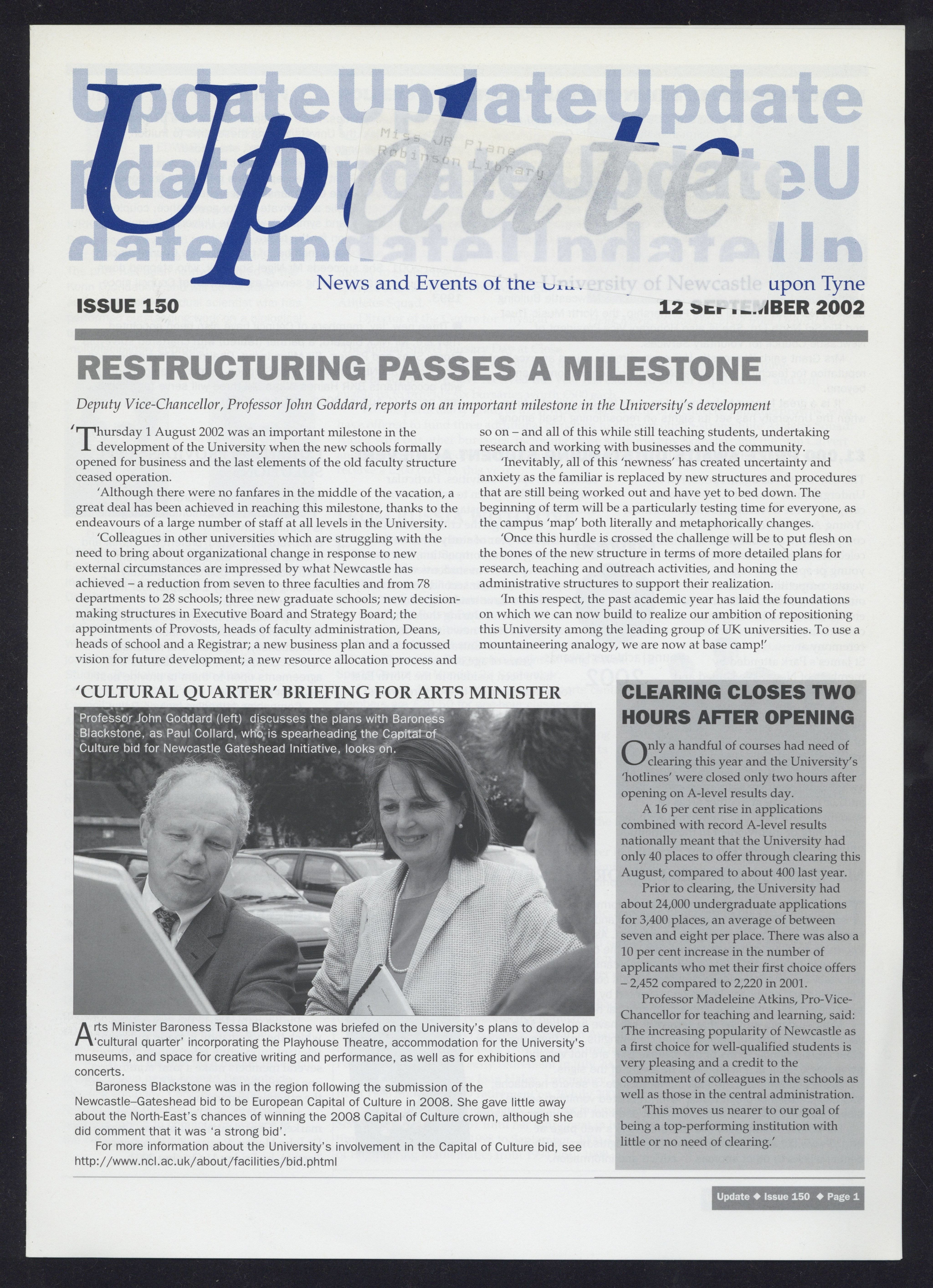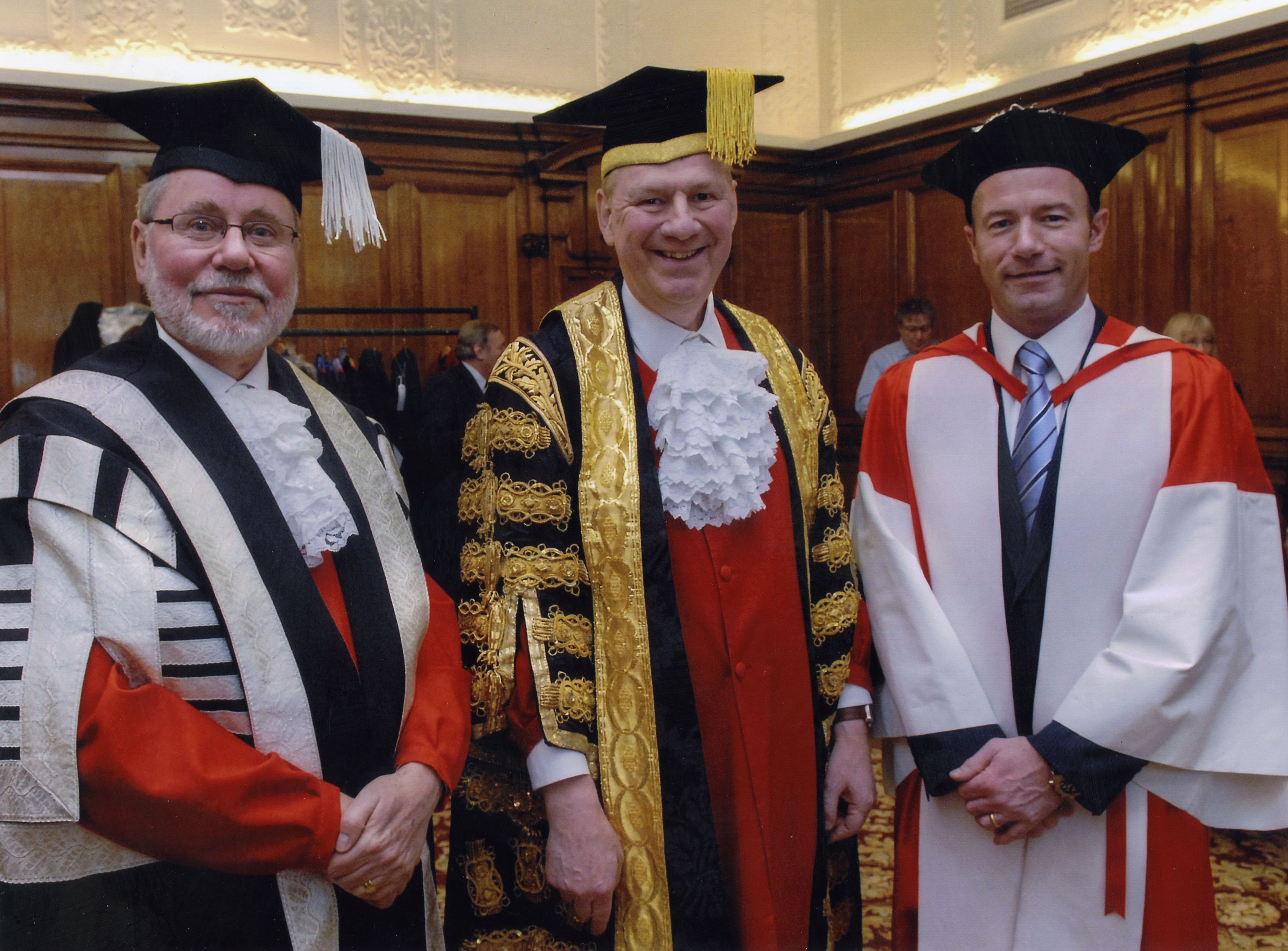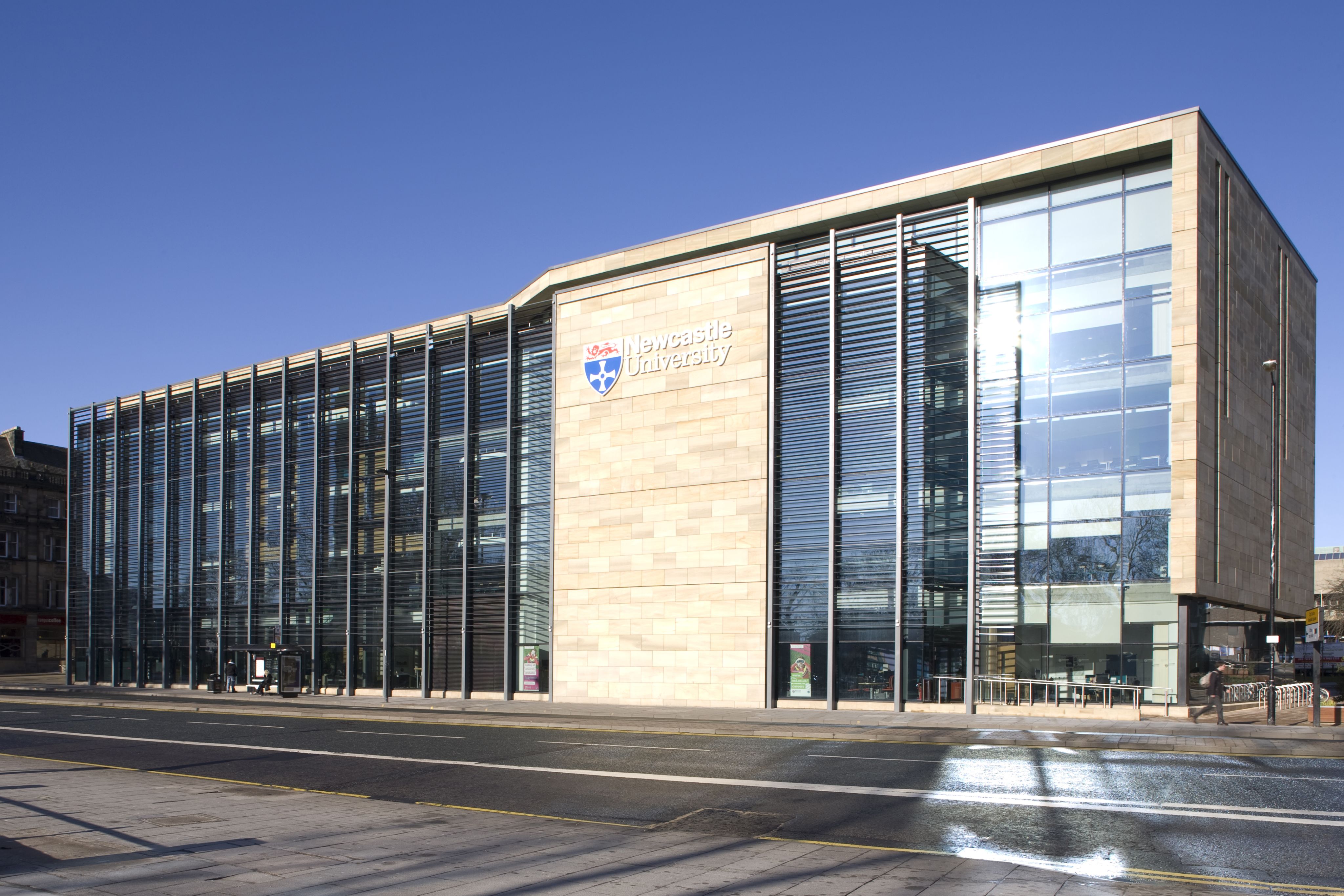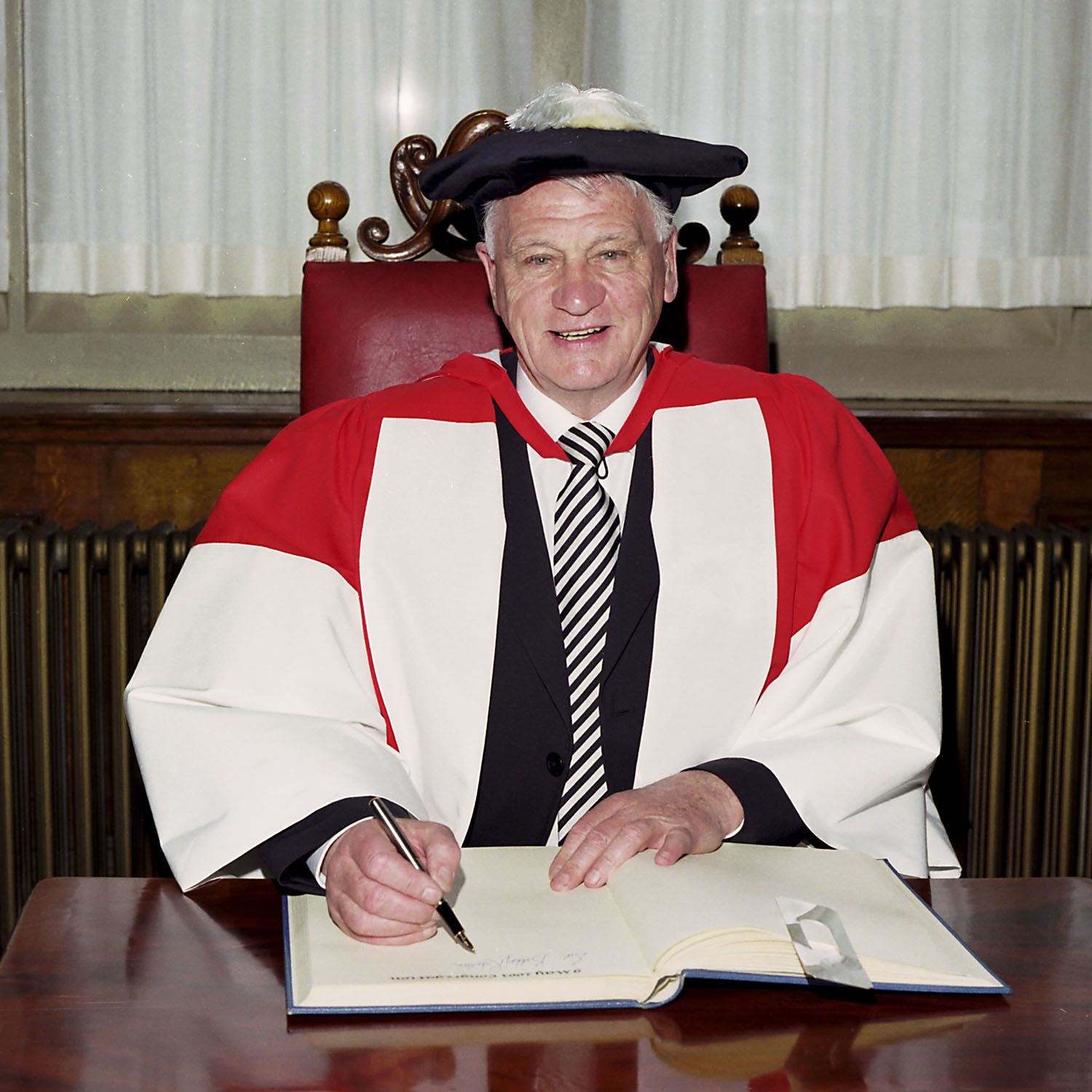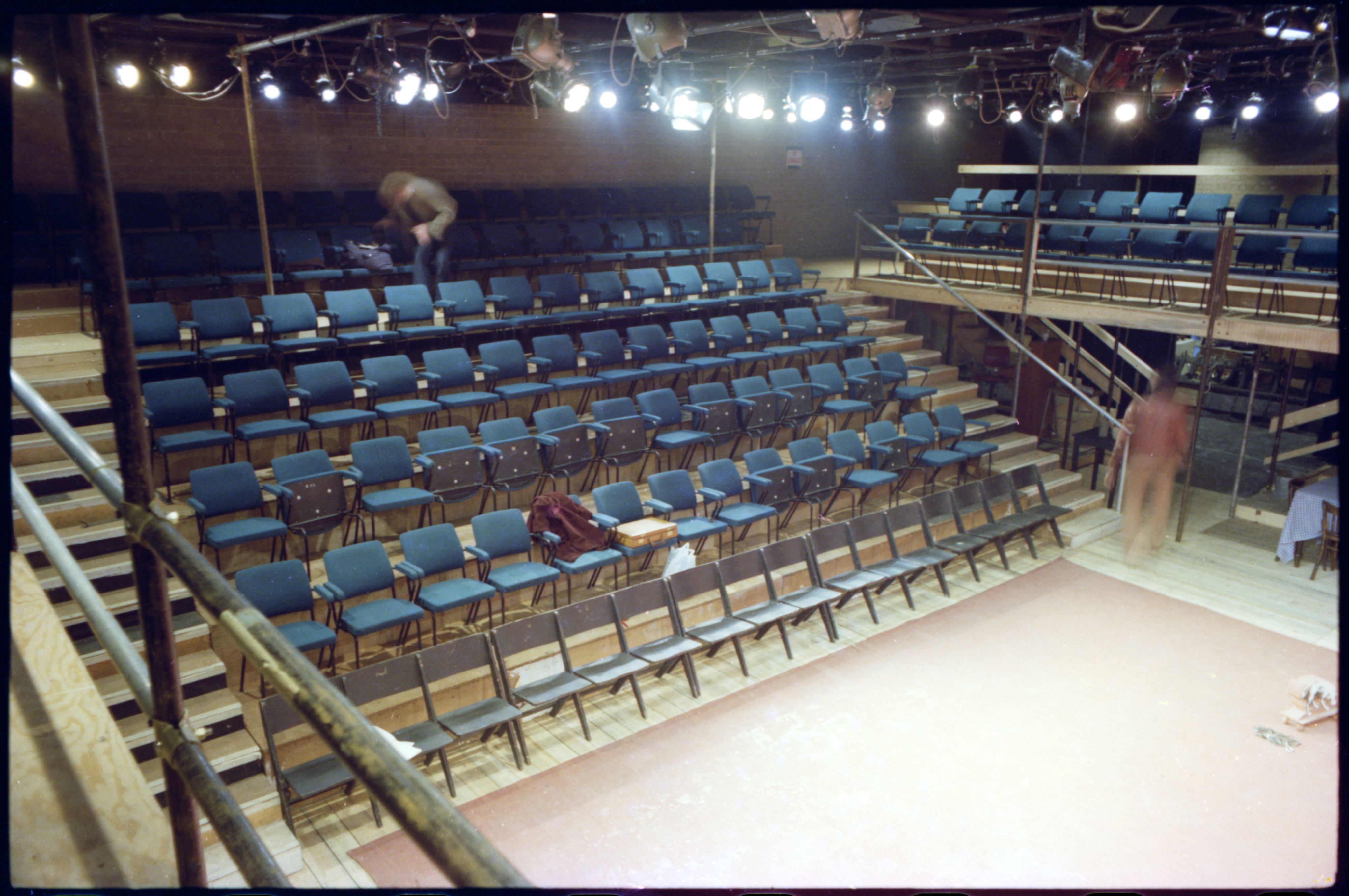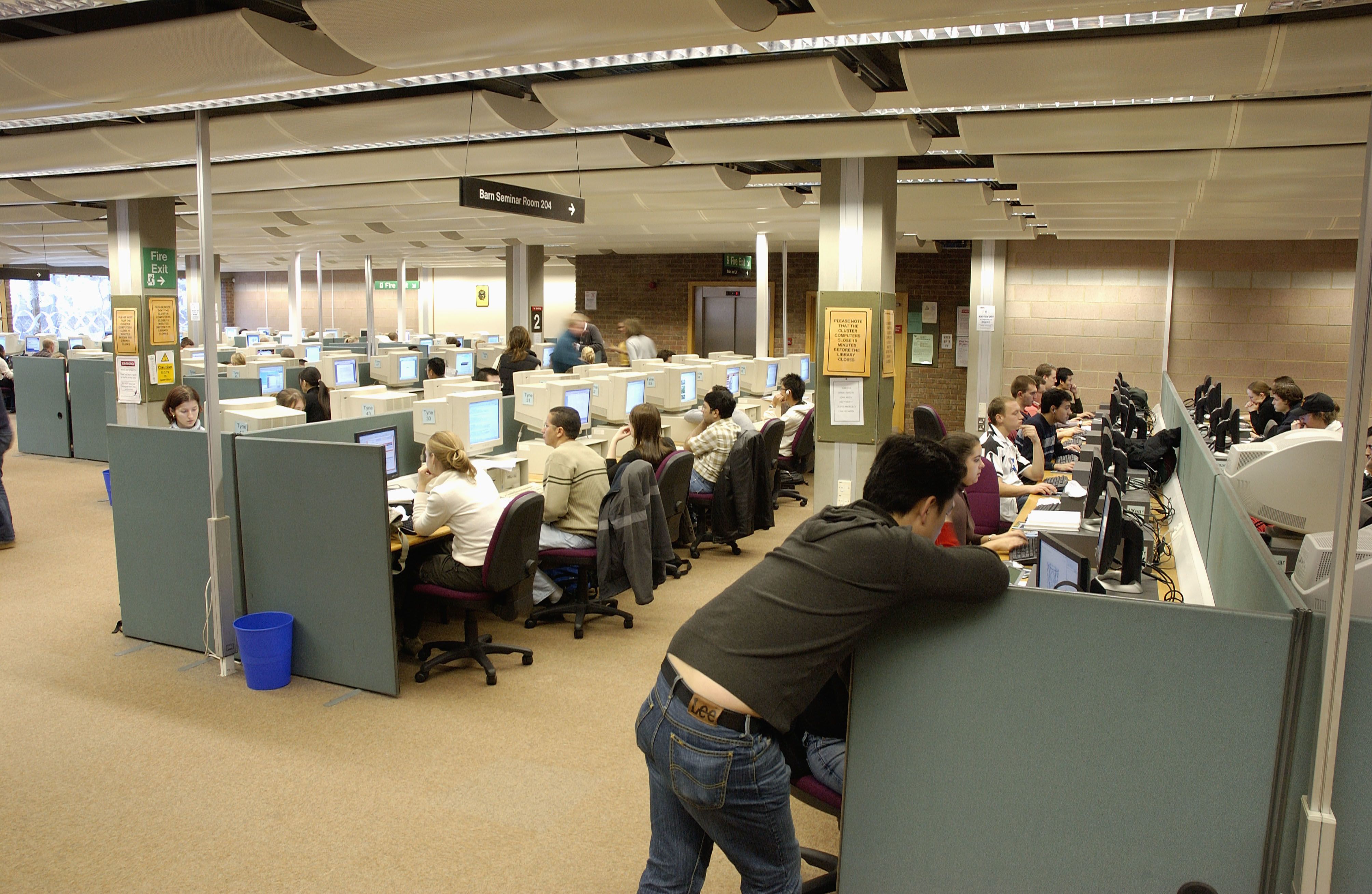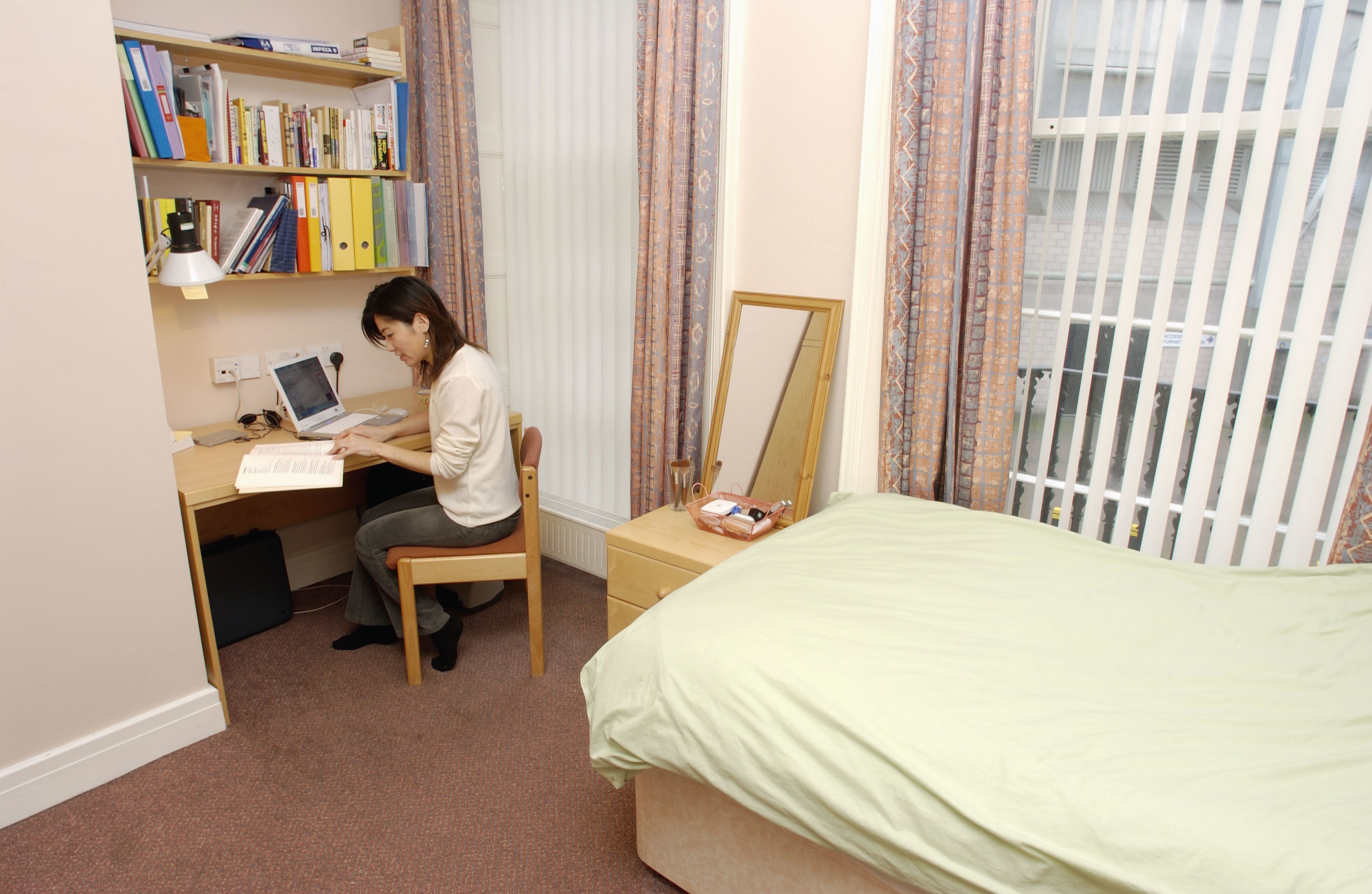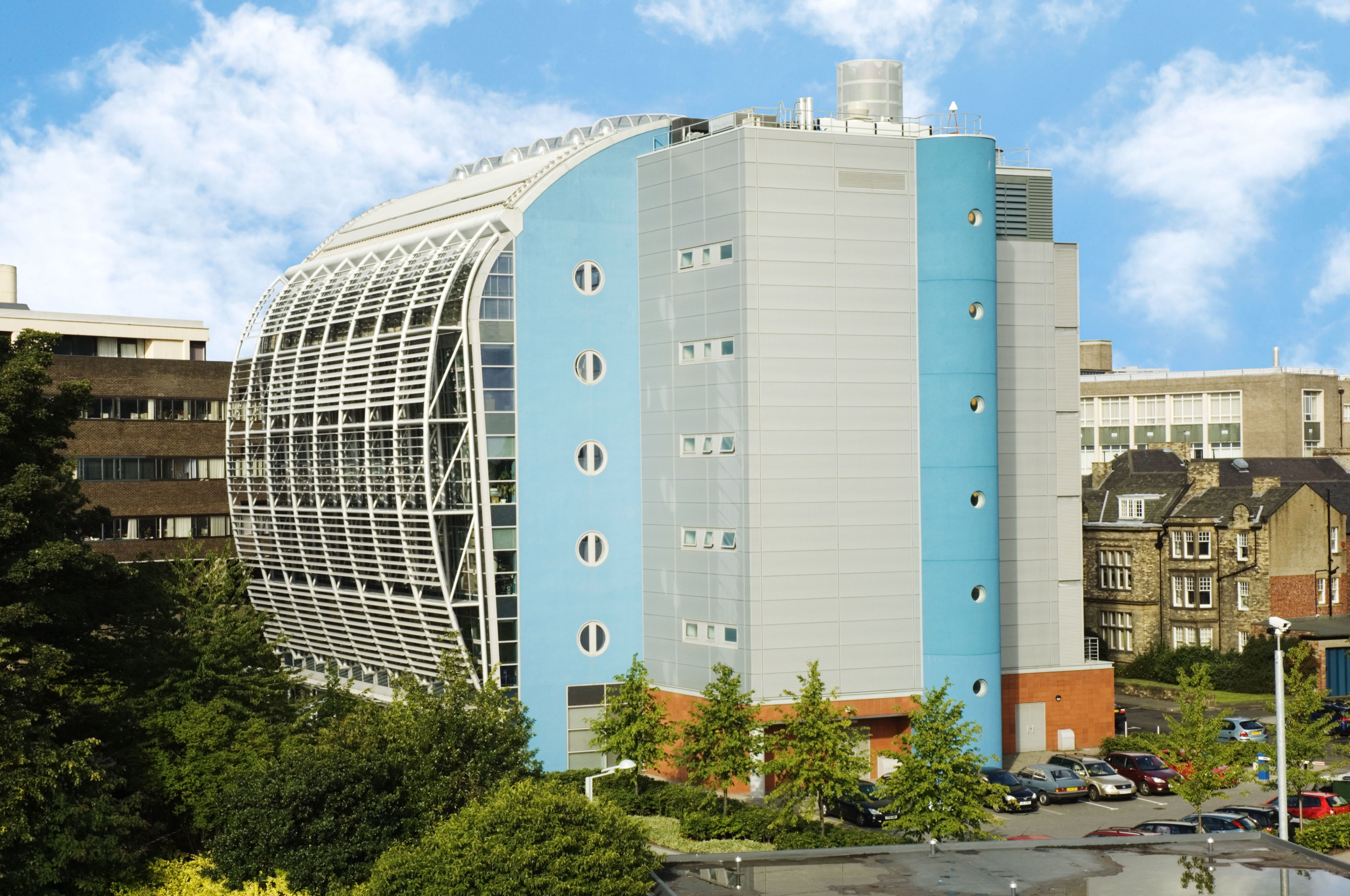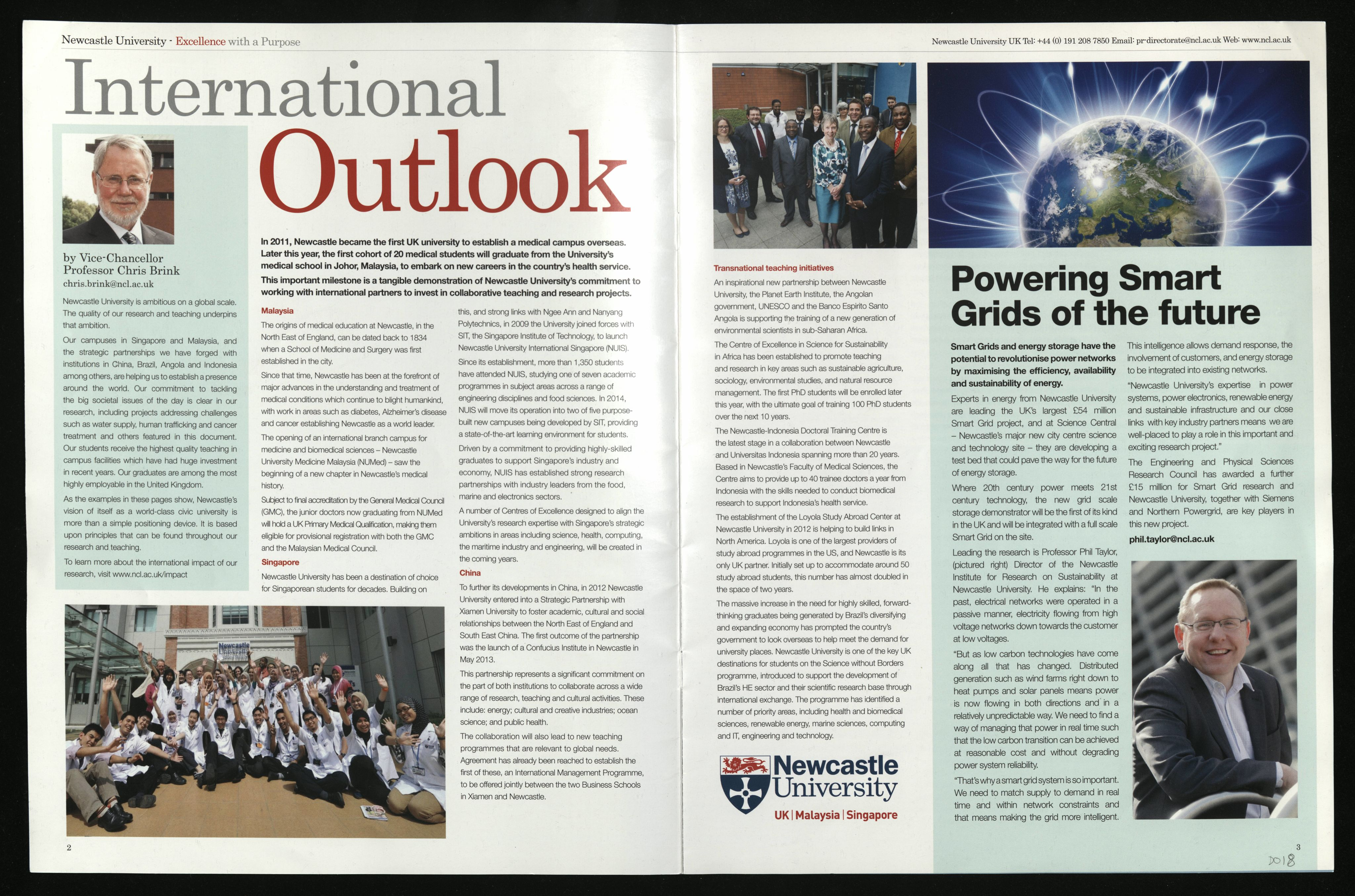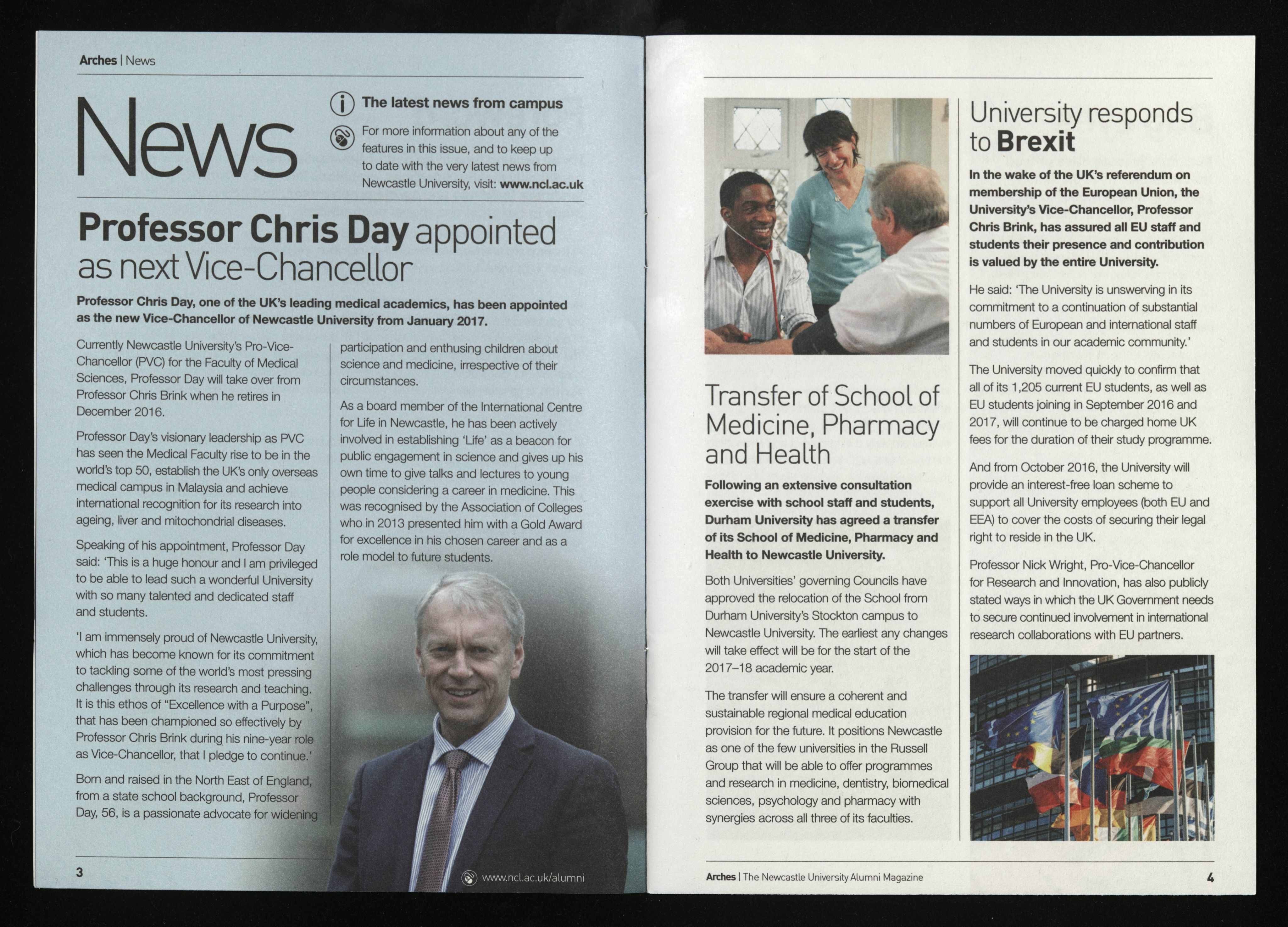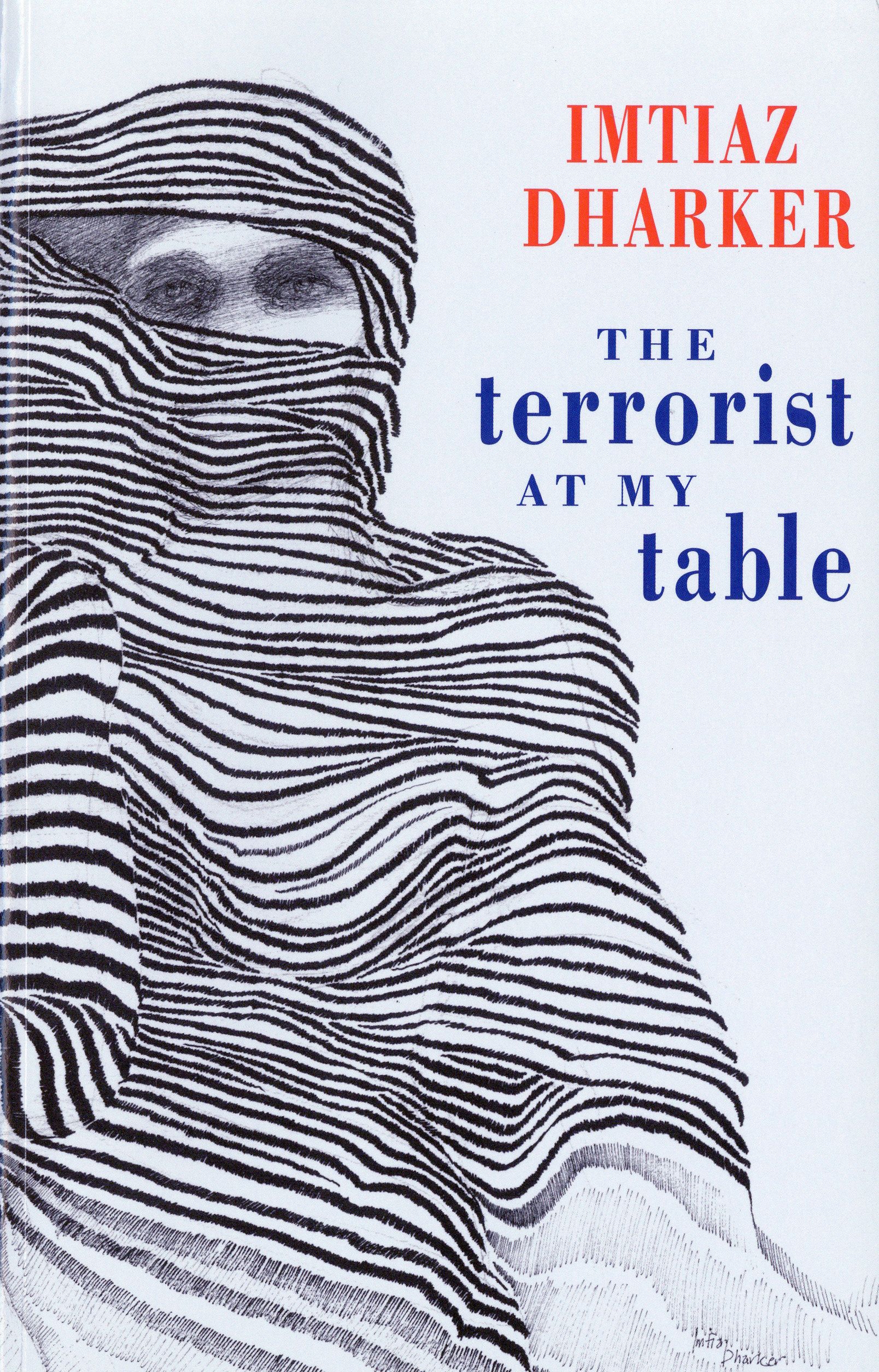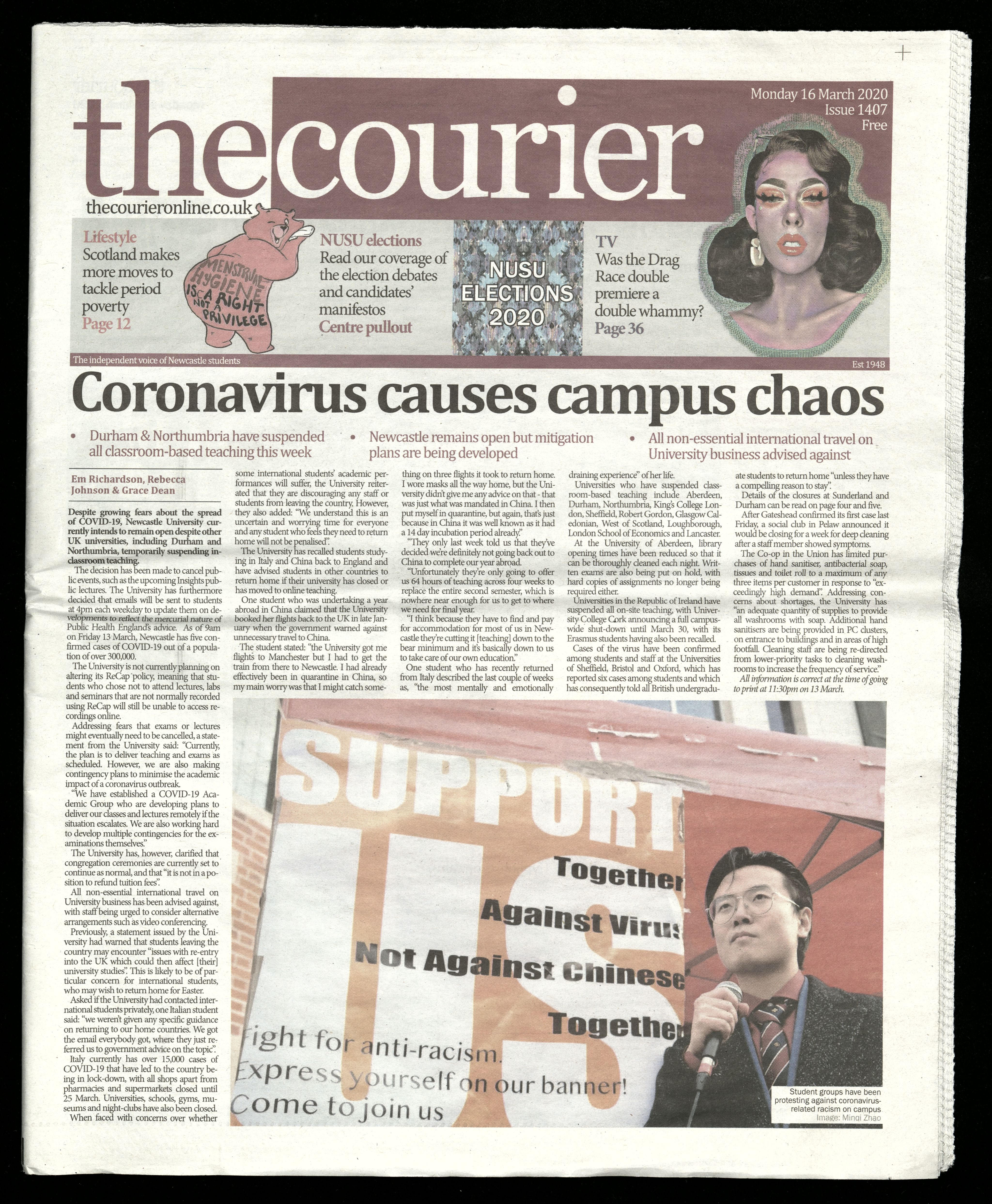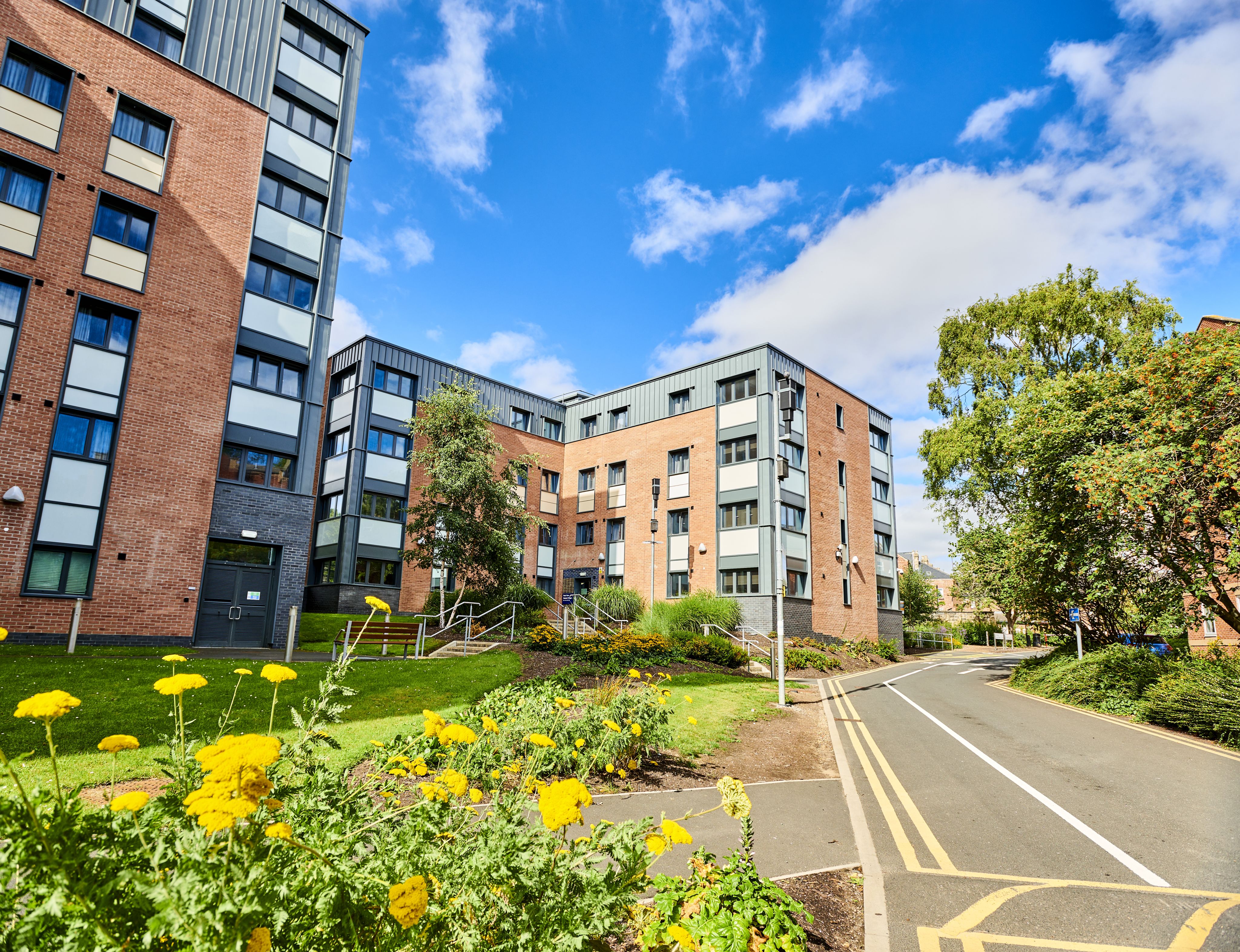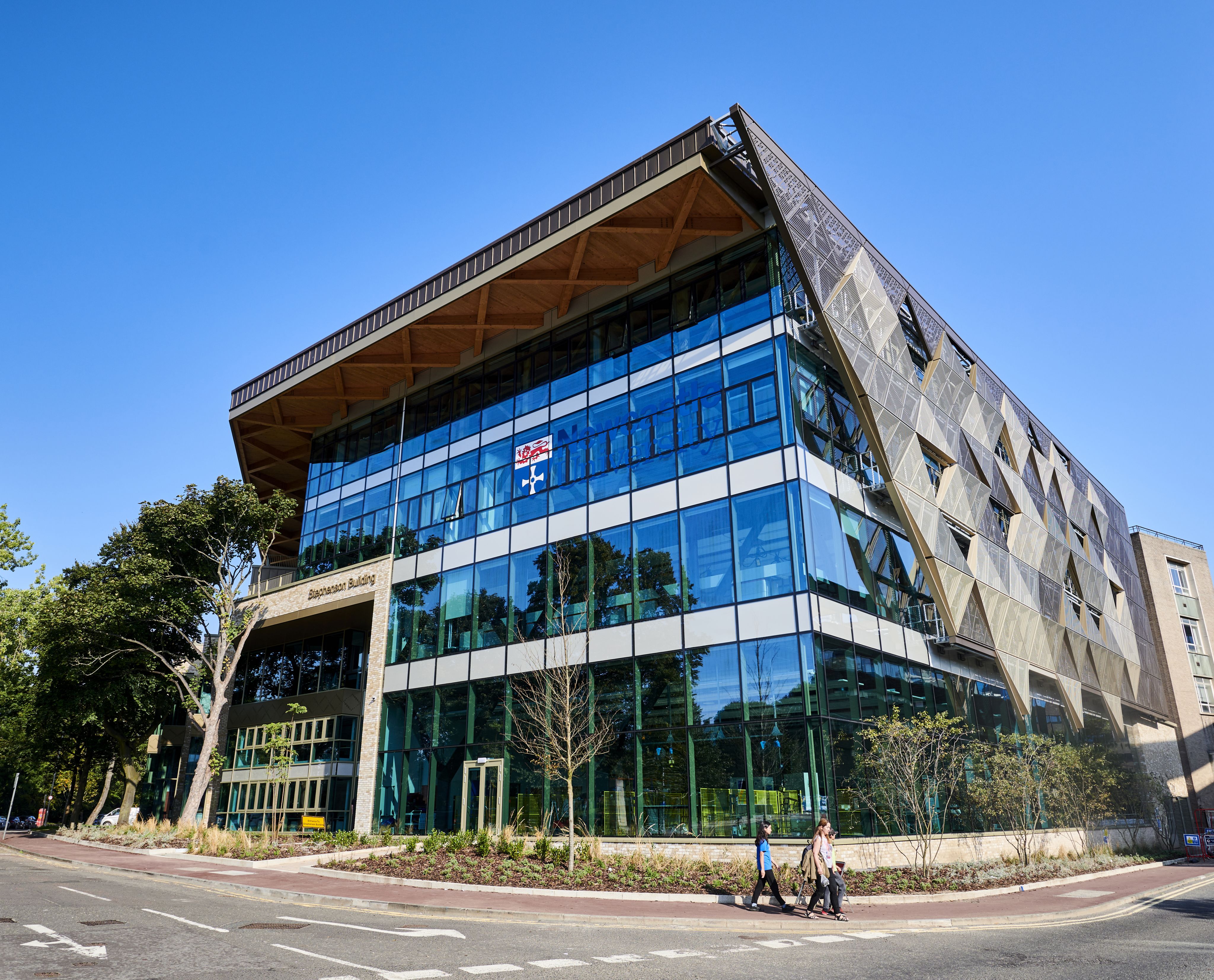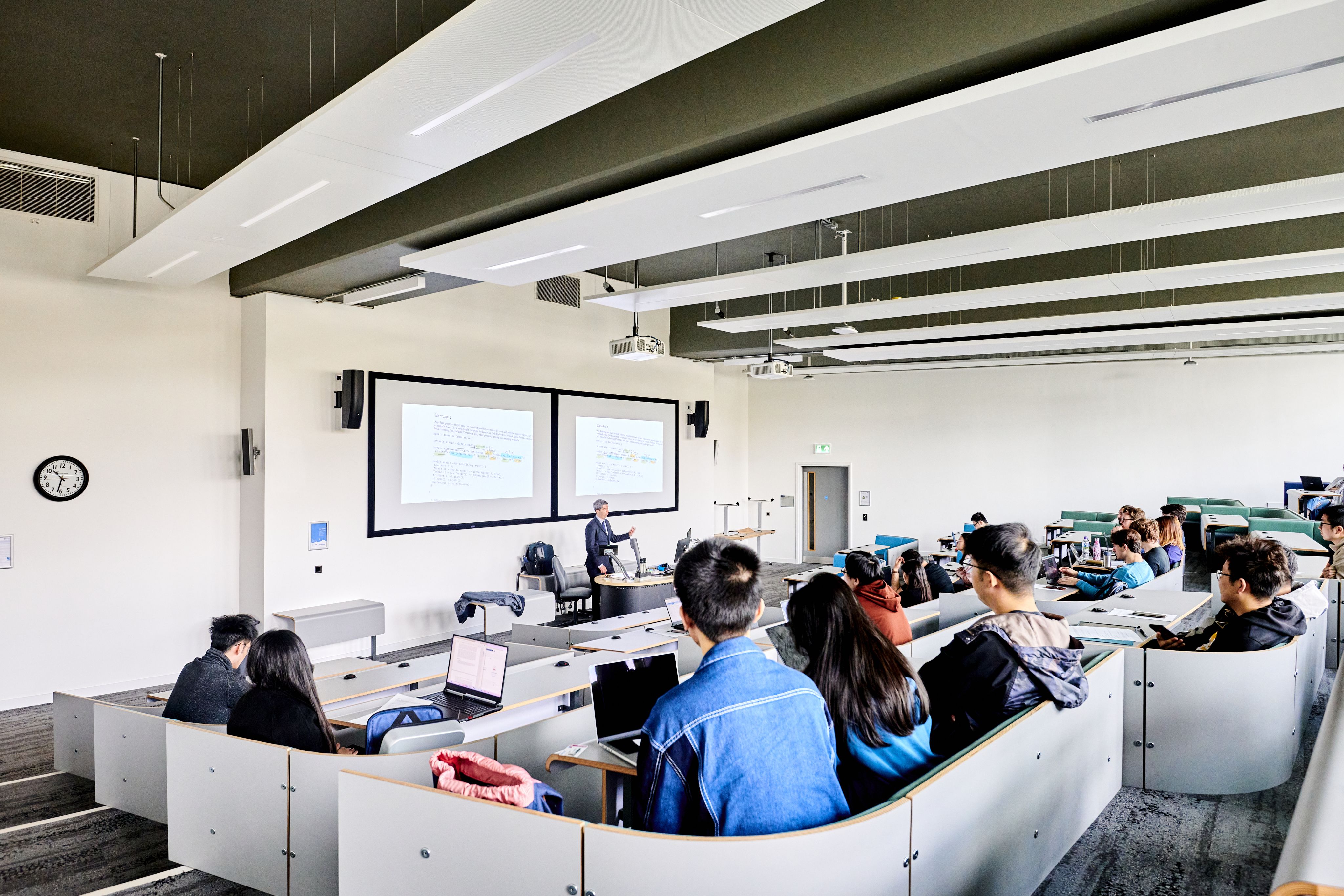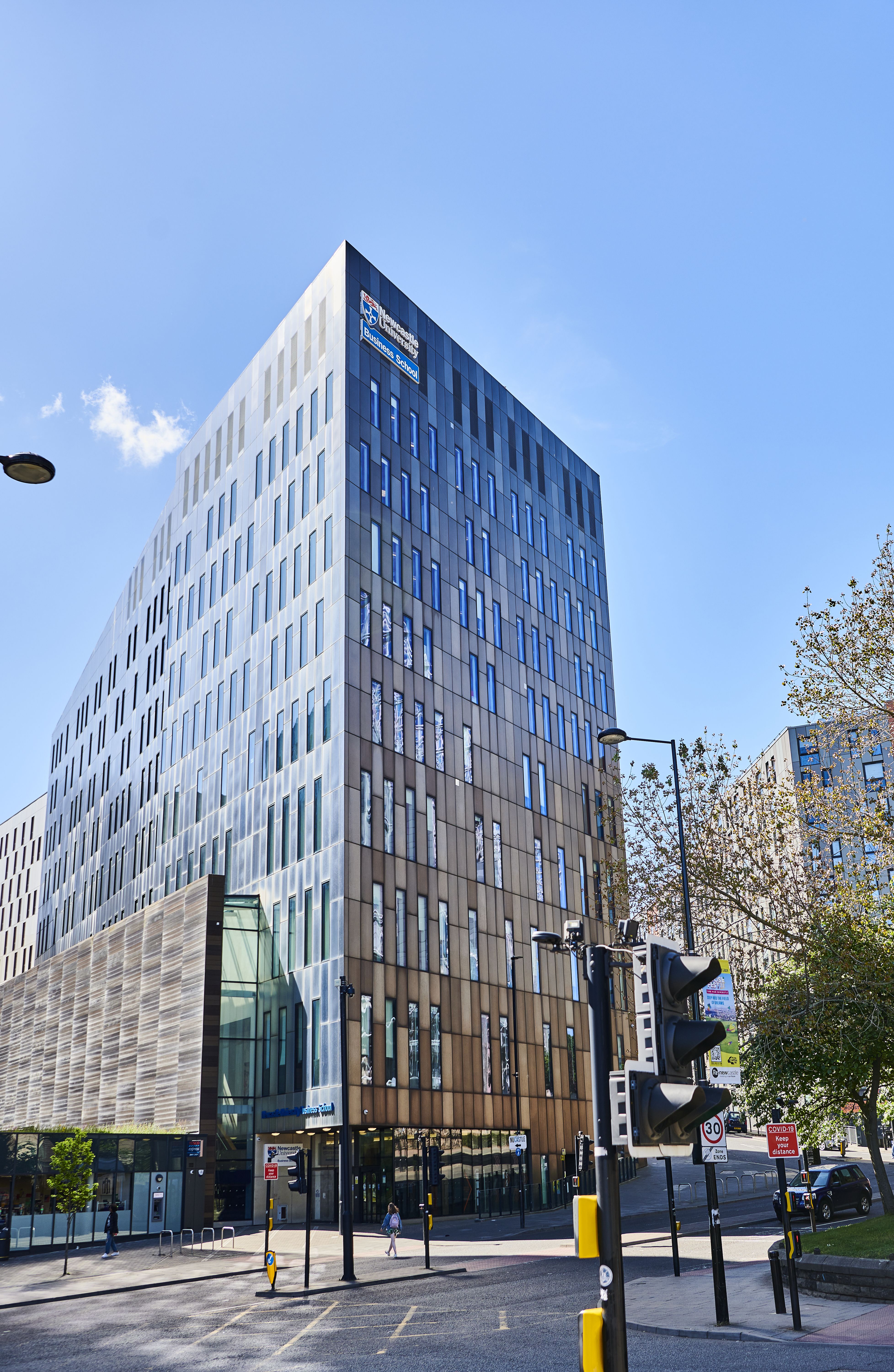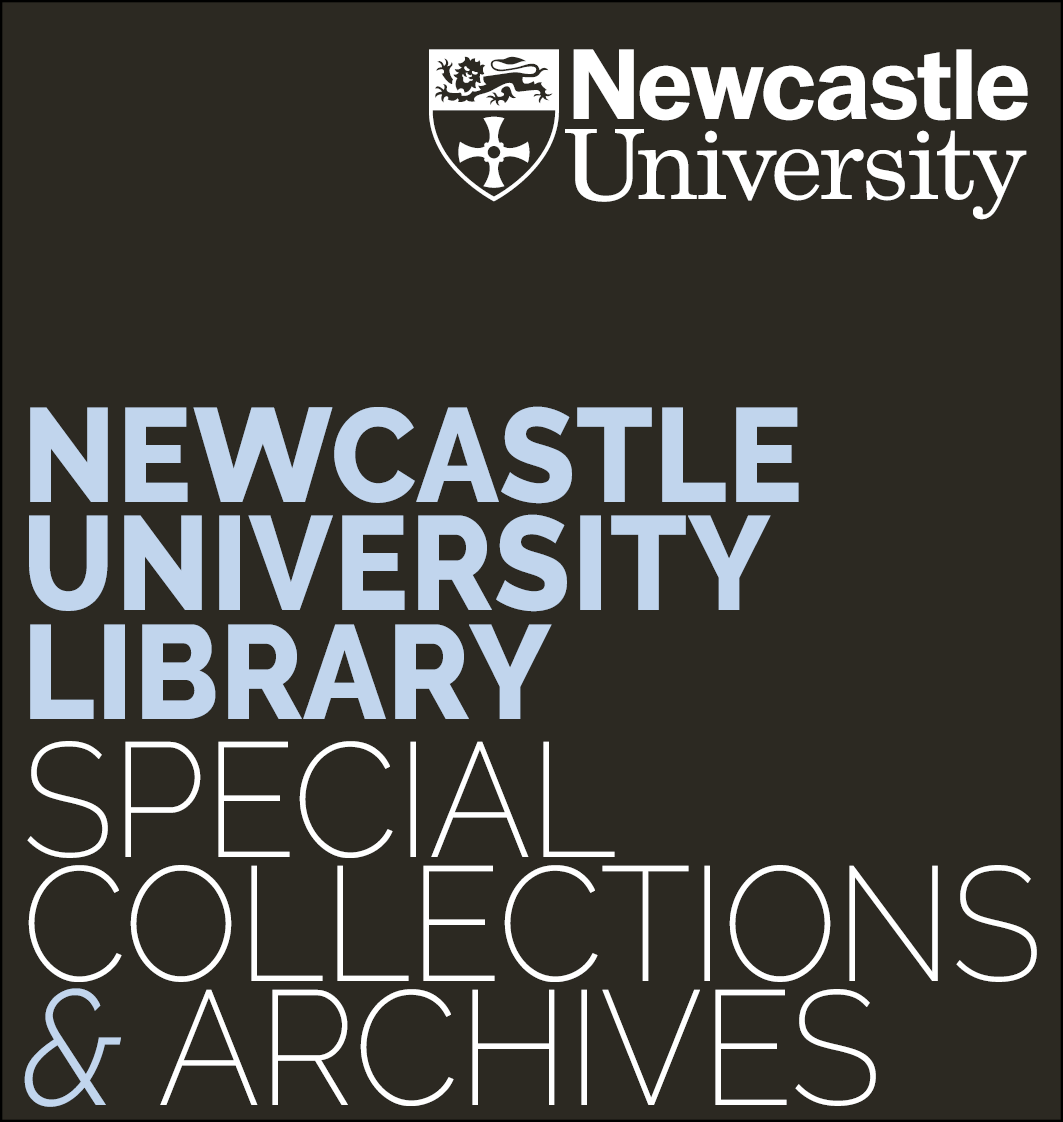Let the lion roar!
Newcastle University at 60
Celebrating 60 years of an independent Newcastle University. This online exhibition tells the University's story from 1963 to the present day, showcasing items and photographs from the University Archive.
All images included are taken from the University Archive, unless otherwise stated.

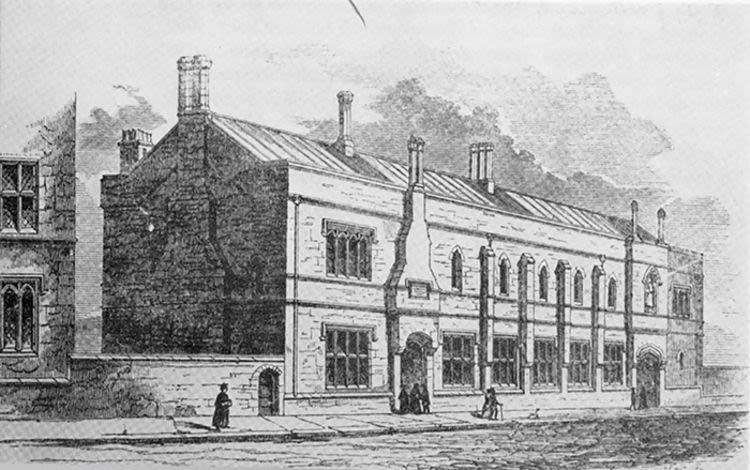
2023 marked 60 years since the formal separation of King’s College from Durham University and the creation of Newcastle University.
However, our story began in 1834, when a group of doctors started teaching medicine at the Barber Surgeon’s Hall in Newcastle. This became the Durham University College of Medicine in 1880.
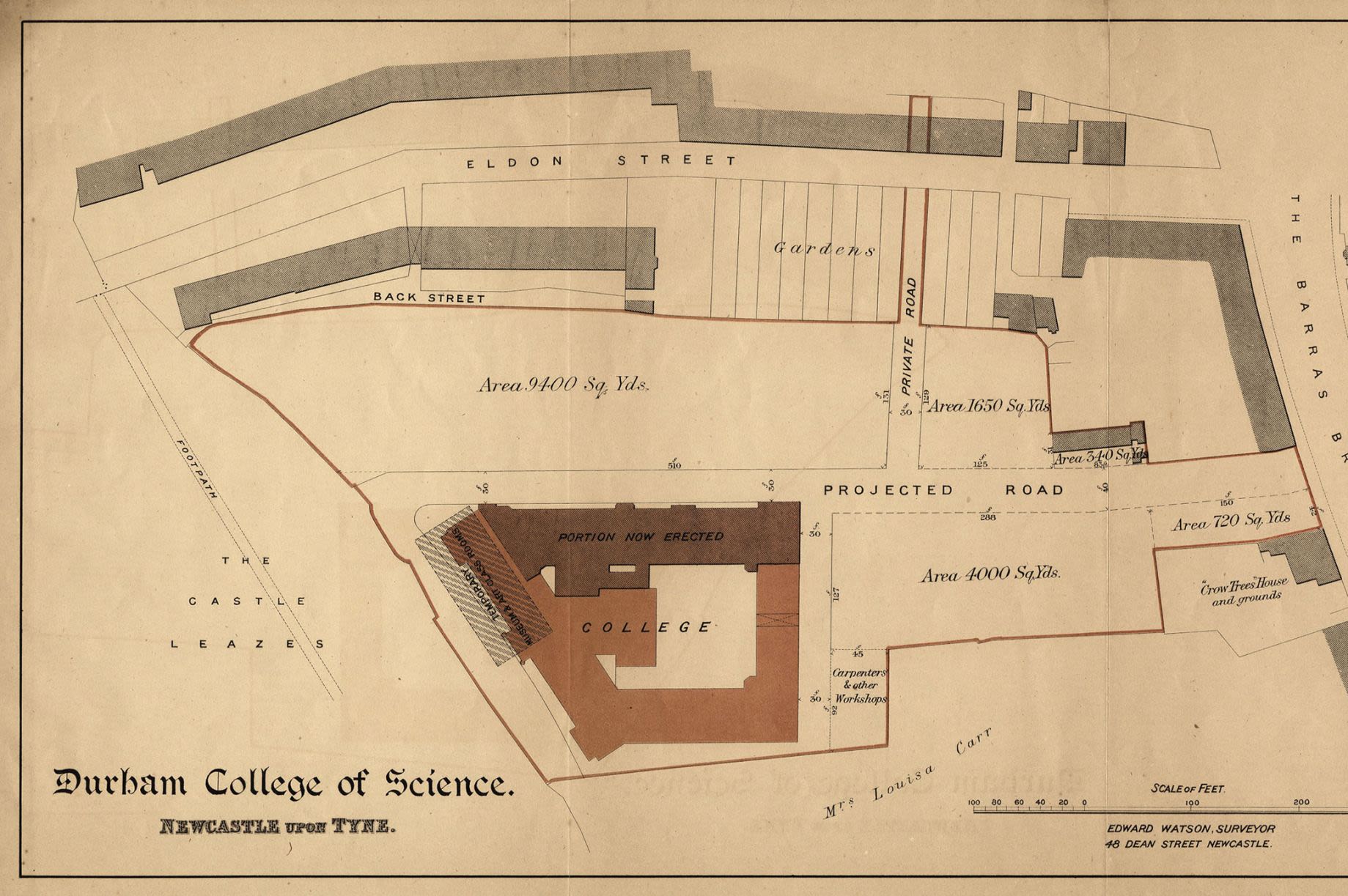
In 1871, the College of Physical Science in Newcastle was founded as a college of Durham University. The College was named after Sir William Armstrong, the local engineer and industrialist, in 1904.
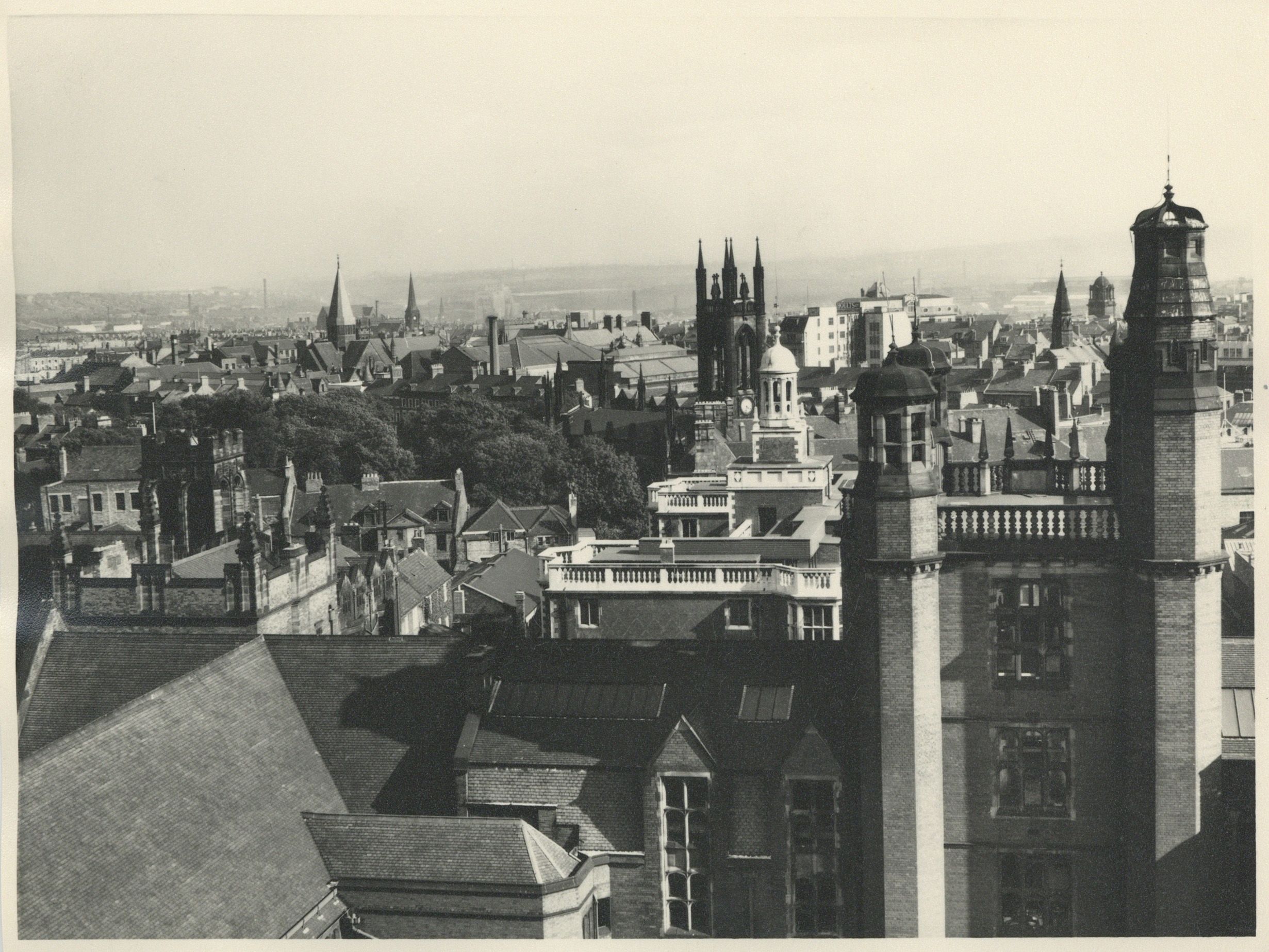
In 1936, Armstrong College and the College of Medicine were brought together as King’s College, a division of Durham University. King’s College continued to expand and by 1960, student numbers had reached 3,600. This surpassed the combined numbers studying at Durham University’s other colleges.
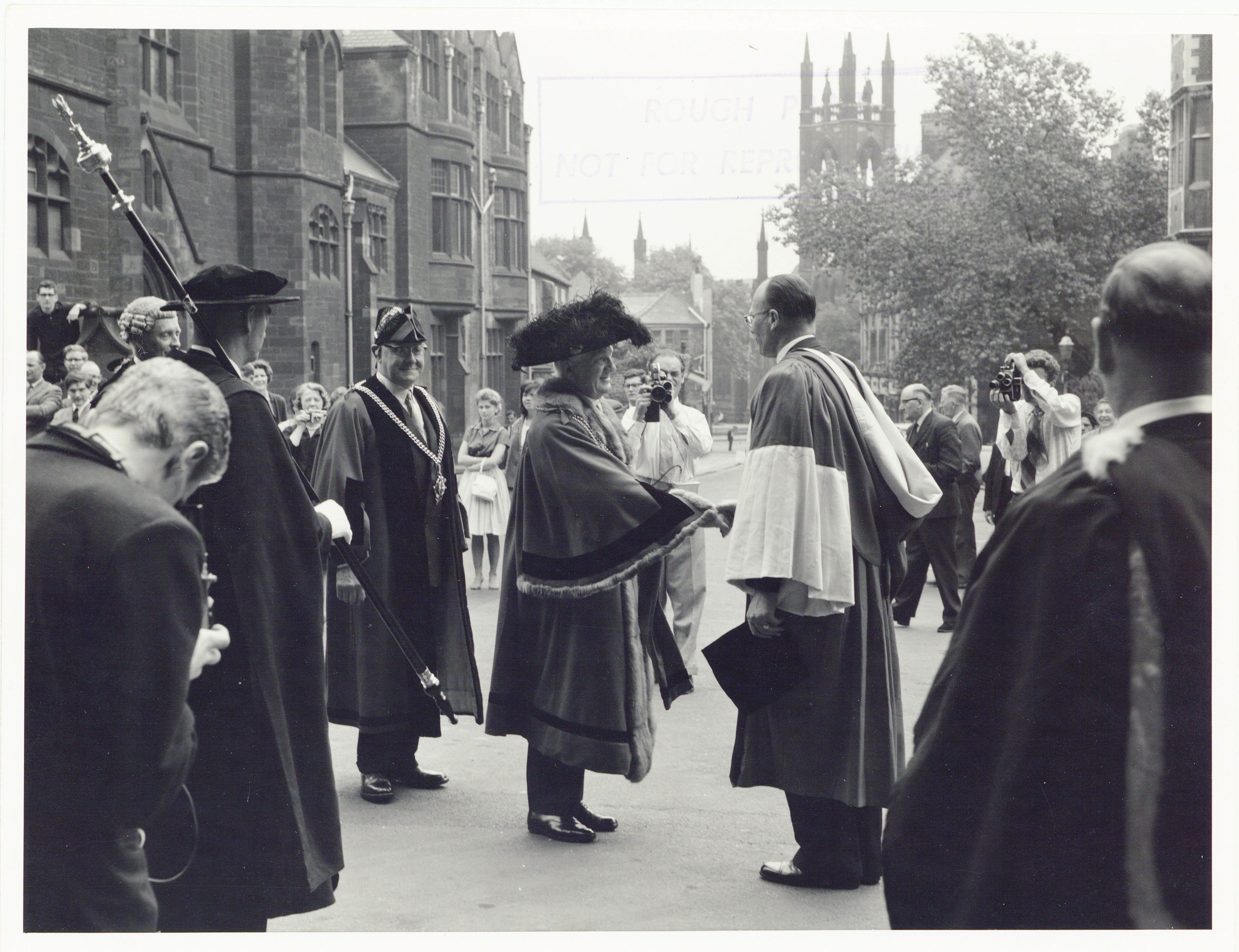
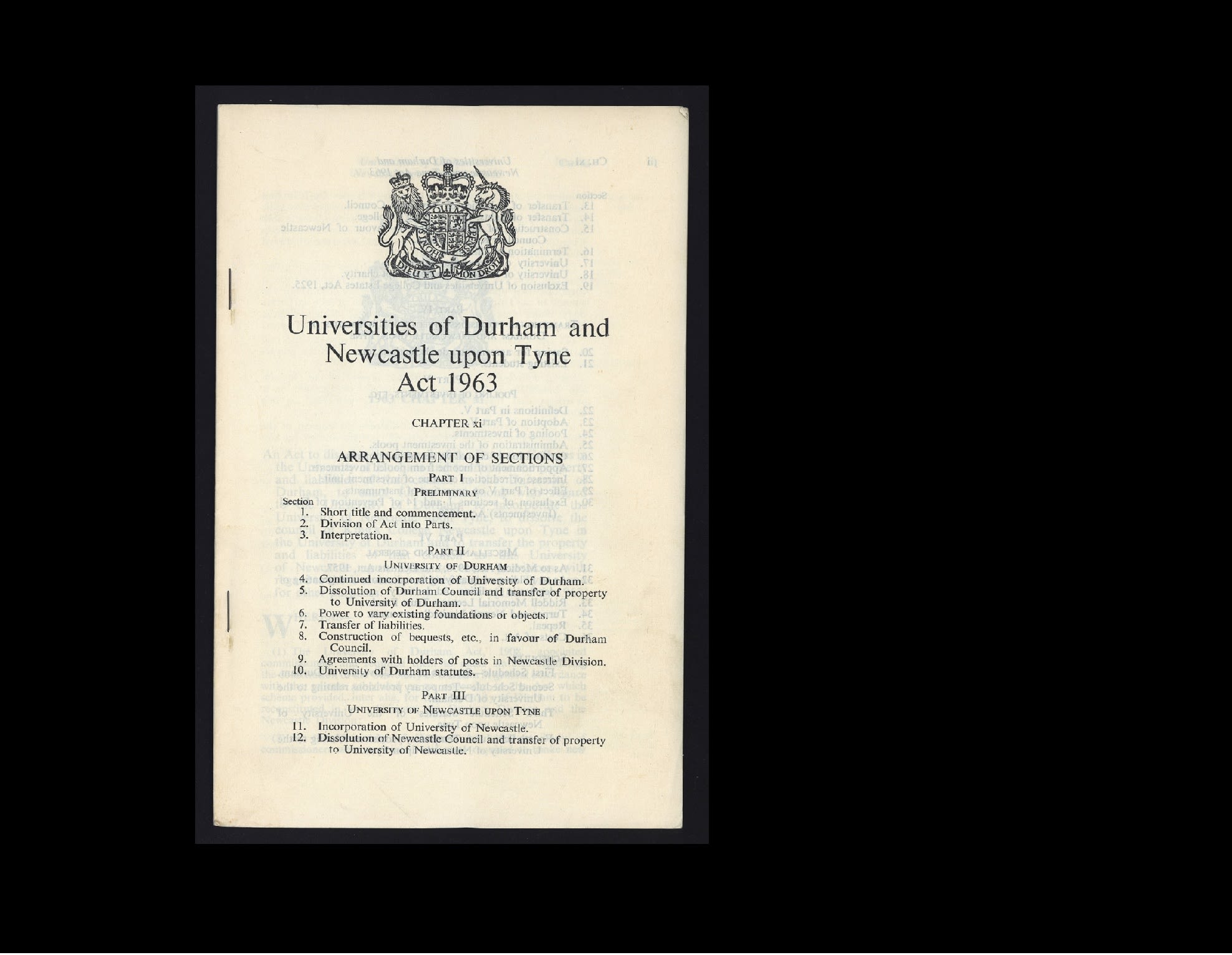
For many years, dissatisfaction with the arrangement had grown. This led to a proposal in 1960 to establish a separate Newcastle University in place of King’s College. This was accepted and led to the official separation into Durham University and Newcastle University on ‘The Appointed Day’ of 1st August 1963.
In early summer 1963, the Universities of Durham and
Newcastle upon Tyne Act 1963 received Royal Ascent and
came into force. This was needed to formalise the separation
of the Durham and Newcastle parts of the University and
instruct the new bodies which would oversee the work of the
two institutions.
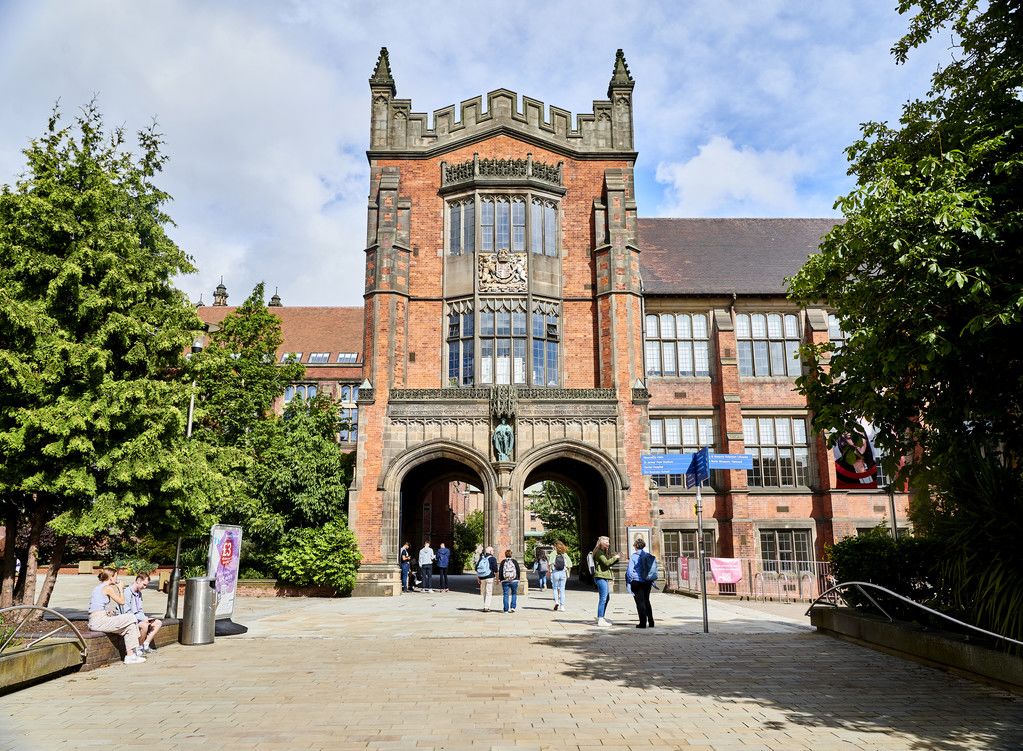
As King’s College had operated largely independently, daily work was unhindered by the separation. Even King’s College’s crest, featuring the famous lion, remained. Since 1963, Newcastle University has continued to grow and develop its research, teaching and reputation.
The 1960s
The early 1960s see major developments on campus. Space for teaching and research rapidly expands thanks to several new buildings. Developments are started early in the decade and continue uninterrupted after independence from Durham University.
Growing student numbers later in the 1960s lead to plans for new and improved accommodation to house first year students.
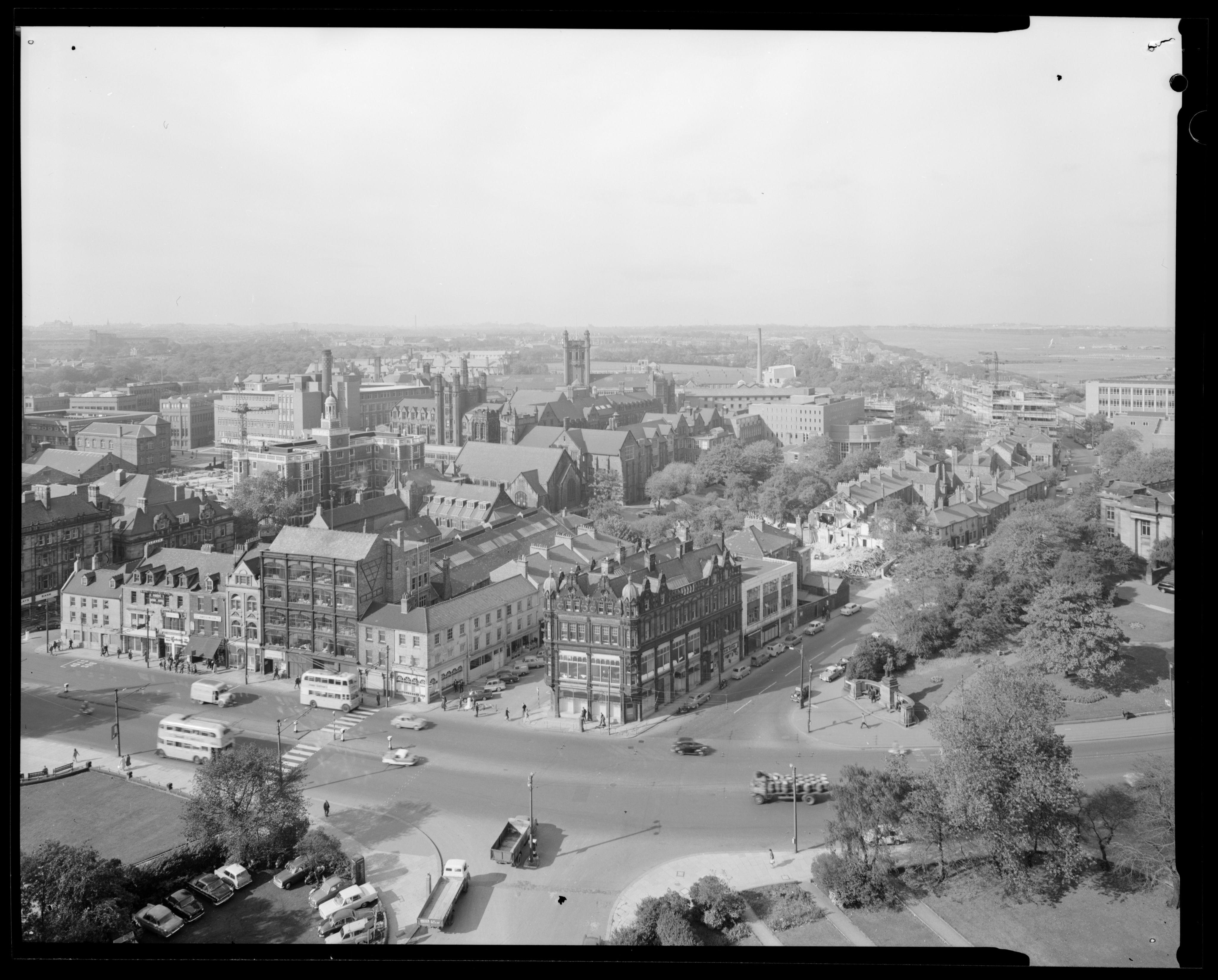
1960s - Campus expansion
Both before and after King’s College became Newcastle University, the campus had seen rapid expansion. Earlier in the 1960s, the Agriculture, Herschel and Merz Court Buildings had opened.
In 1968, what is now known as the Daysh Building, opened. The building was named after Professor Henry Daysh, who was head of Geography (now School of Geography, Politics and Sociology) from 1930 to 1966. He became the University’s first Vice-Chancellor in 1965. The Daysh Building was the University’s largest building when it was built.
Claremont Tower and Merz Court brochures produced for official building openings, 1960–1967. NUA/16/7/1
Claremont Tower and Merz Court brochures produced for official building openings, 1960–1967. NUA/16/7/1
1964 - Newcastle University's first Chancellor installed
His Grace, Hugh Percy, the 10th Duke of Northumberland, was installed as the first Chancellor of Newcastle University. This took place in a formal ceremony in King’s Hall.
Until the University’s separation in 1963, this ceremonial role had been fulfilled by a series of members of nobility, including Percy’s ancestors. The appointment of Percy was a continuation of the previous tradition of the role of Chancellor being a member of nobility.
After his appointment, Percy remained in the role until his death in October 1988. He was succeeded as Chancellor by Matthew Wright Ridley, 4th Viscount Ridley. Ridley was officially installed in a formal ceremony on the 7th December 1989.
Programme for installation of Hugh Percy, Duke of Northumberland, as Chancellor, 1964. NUA/16/10.
Programme for installation of Hugh Percy, Duke of Northumberland, as Chancellor, 1964. NUA/16/10.
1964 - Opening of the extension of the Students' Union
As student numbers increased, it was recognised that the original 1926 Students’ Union Building, completed when the College only had 800 students, was no longer sufficient. The Students' Union was expanded in 1964 to accommodate more students.
In 1959, the Council of King’s College agreed to pay for the building of a new refectory. Also included were spaces for social activities, such as a new dance hall and a debating chamber (since demolished). The new building was officially opened by Christopher Chataway, the famed middle-distance runner who was at the time an MP and junior education minister.
1967 - Dr Martin Luther King received an Honorary degree in Civil Law
Dr Martin Luther King was welcomed to Newcastle where he received an Honorary degree in Civil Law from the University. This was the only place in the UK he visited outside London, and the last public address he gave outside the United States before he was assassinated six months later.
Photograph of Martin Luther King signing the University's visitors' book, 1967. NUA/052589/04.
Photograph of Martin Luther King signing the University's visitors' book, 1967. NUA/052589/04.
King gave a passionate speech discussing his Beliefs, struggles in America and those faced by Black people in the UK. He highlighted the “three urgent and grave problems” facing the world: war, poverty and racism. The significance of his visit to Newcastle and the values he stood for are reflected in a statue of him, located in the courtyard of the Armstrong Building. This is near to King’s Hall, where he gave his speech in 1967.
Transcript of honorary degree acceptance speech given by Martin Luther King Jr, 1967. NUA/19/3.
Transcript of honorary degree acceptance speech given by Martin Luther King Jr, 1967. NUA/19/3.

Professor Henry Daysh attending the first matriculation ceremony for students at Newcastle University, 1963. NUA/K/030284
Professor Henry Daysh attending the first matriculation ceremony for students at Newcastle University, 1963. NUA/K/030284
Students’ Union Debating Chamber, 1964. NUA/K/037098/01
Students’ Union Debating Chamber, 1964. NUA/K/037098/01
Moorbank Botanic Gardens, opens 1966. NUA/K/043192/004
Moorbank Botanic Gardens, opens 1966. NUA/K/043192/004
Close House, opens 1961. NUA/K/040279/003
Close House, opens 1961. NUA/K/040279/003
Sports meeting at Cochrane Park, 1964. NUA/K/032968/05
Sports meeting at Cochrane Park, 1964. NUA/K/032968/05
NUMAC opens (Northumbrian Universities Multiple Access Computer). NUA/K/040279/007
NUMAC opens (Northumbrian Universities Multiple Access Computer). NUA/K/040279/007
Student in Ethel Williams Hall student accommodation, 1966. NUA/K/043915/06
Student in Ethel Williams Hall student accommodation, 1966. NUA/K/043915/06
The 1970s
The 1970s see a period of steady growth with tightened budgets following the rapid expansion of the 1960s. The major advance is the long-hoped-for construction of the new Dental School building. This is co-located with the Royal Victoria Infirmary (RVI) and the proposed new Medical School.
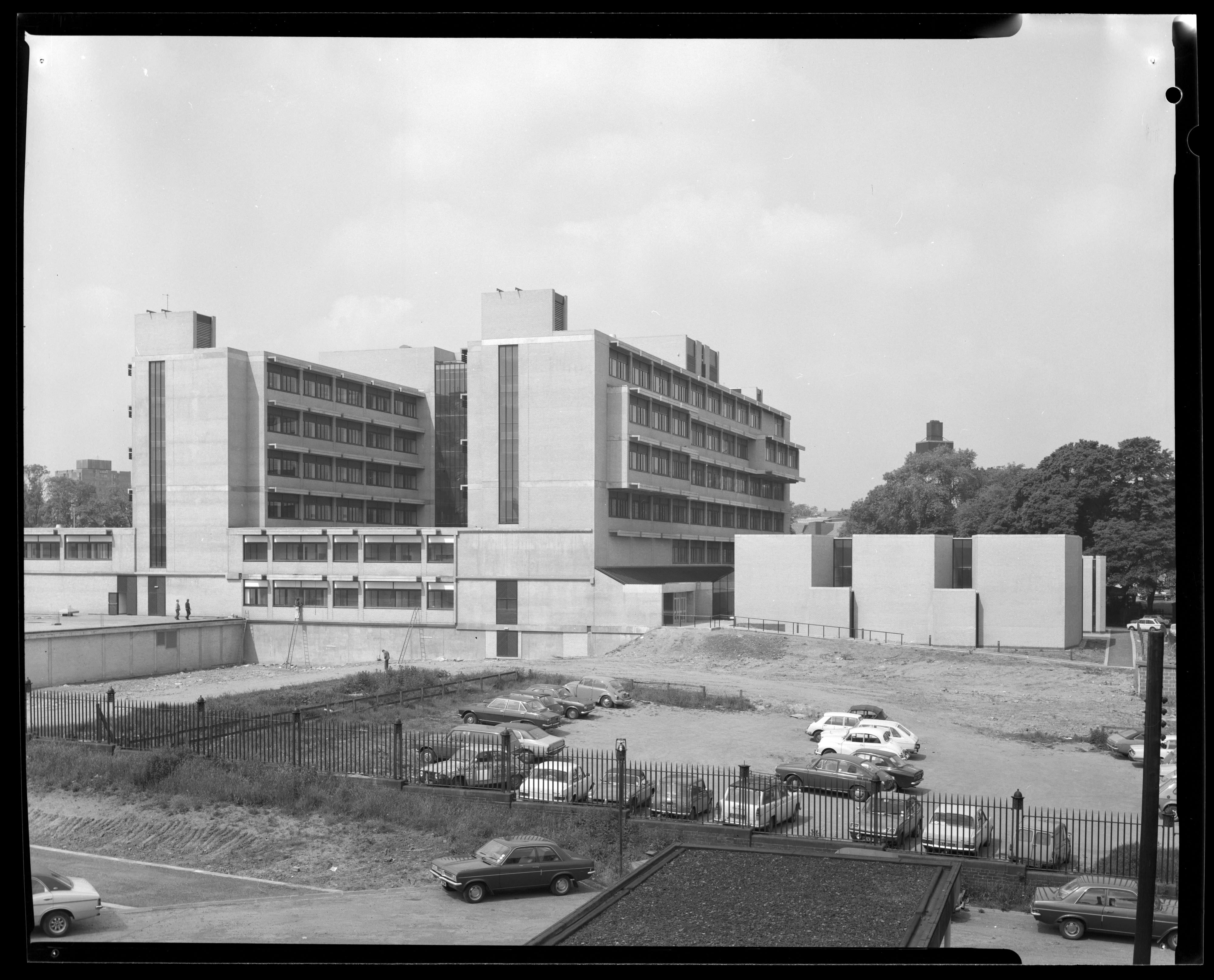
1970s - Funding
Until 1989, the proportion of the funding given to universities by central government was based on a submission to the University Grants Commission. Ahead of each five year period, the University submitted its financial plans to the government in the form of Quinquennial Estimates.
The Estimate displayed below sets out an overview of the current position and plans for teaching, staffing, and general developments for the period covering the mid 1970s.
Quinquennial Estimates, 1972–1977. NUA/OS/543.
Quinquennial Estimates, 1972–1977. NUA/OS/543.
1970 - University Theatre opens
In November 1970, the University Theatre opened on a site
which formerly included the Methodist Chapel, known as Grey’s Hall.
This new building was the culmination of Newcastle University’s ambition to have a theatre of its own. With funding from an anonymous donor and the Gulbenkian Theatre Trust, the theatre was rapidly designed, built and opened with two stages. One stage was intended for the larger performances of the Tyneside Theatre Trust, and the second stage was to be for university use.
University Theatre, 1970. NUA/K/075420/03.
University Theatre, 1970. NUA/K/075420/03.
1971 - 100th anniversary of the College of Physical Science
In 1971, the 100th anniversary of the founding of the
College of Physical Science was celebrated. Events included
departmental open days, exhibitions, a special honorary
degree ceremony and the illumination of buildings on campus.
There was also a series of events for staff and the local
community, sculpture and school essay competitions, and a
series of public lectures.
Material produced in support of events to celebrate the centenary of the College of Physical Science, 1971. NUA/OS/687.
Material produced in support of events to celebrate the centenary of the College of Physical Science, 1971. NUA/OS/687.
Material produced in support of events to celebrate the centenary of the College of Physical Science, 1971. NUA/OS/687.
Material produced in support of events to celebrate the centenary of the College of Physical Science, 1971. NUA/OS/687.
1978 - Dental School and Hospital opens
After the many new buildings of the 1960s, the 1970s saw
less expansion and renewal of facilities on campus due to
tighter financial circumstances and reduced growth in student numbers.
One exception was in medicine and dentistry. The need for new space led to land being secured on the RVI site where a large new teaching hospital and medical school were also planned alongside dentistry. This development was a collaboration between the University and the Northern Regional Health Authority. The Dental School and Hospital was officially opened in 1978, with construction of the new Medical School beginning soon after in early 1979.
Opening brochure for the new Dental School building, 1979. NUA/16/7/1.
Opening brochure for the new Dental School building, 1979. NUA/16/7/1.
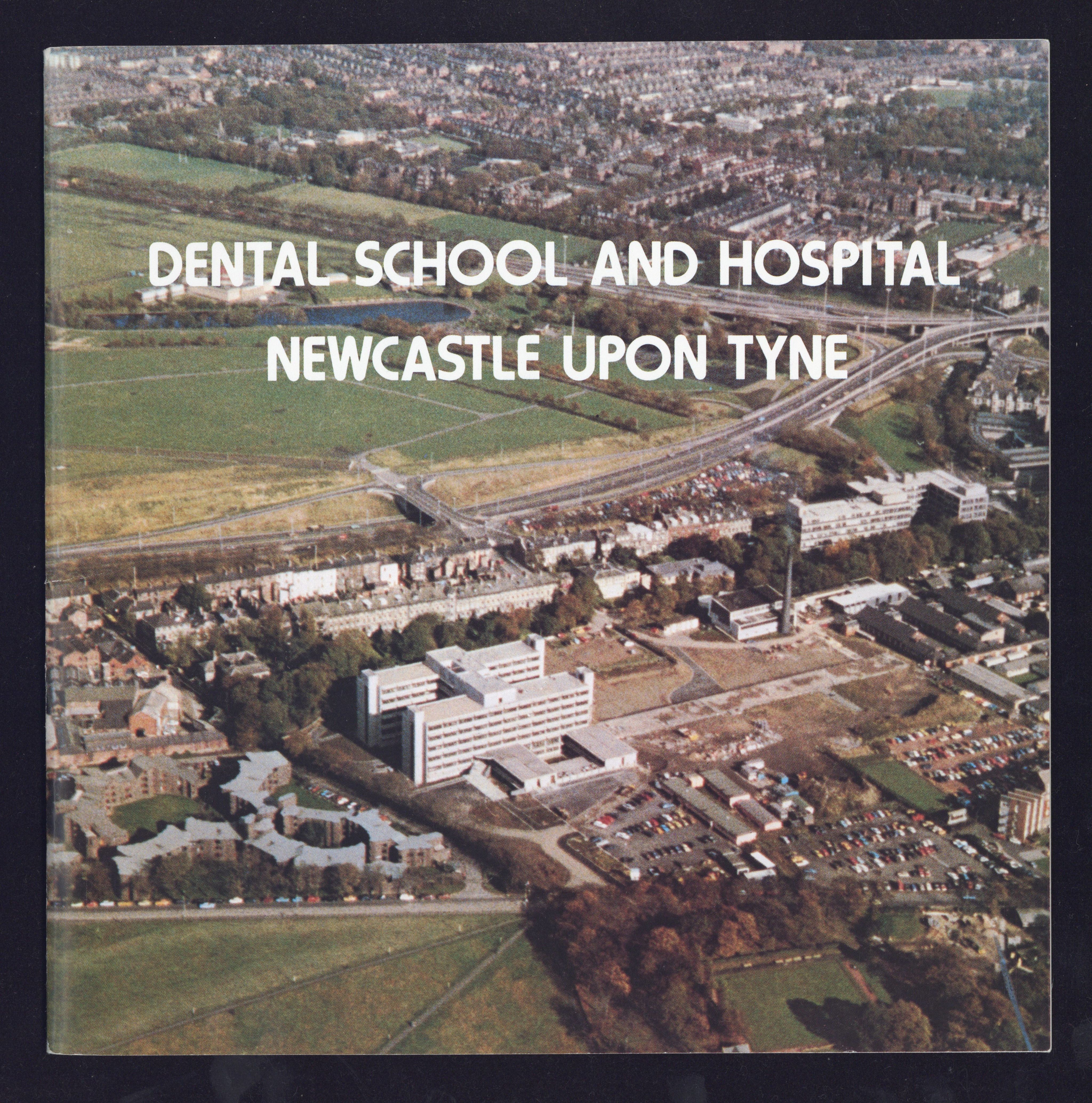
Work begins on new Medical School, March 1979. NUA/CN/129591/07.
Work begins on new Medical School, March 1979. NUA/CN/129591/07.
Research boat ‘Bernicia’, launched 1973. NUA/CN/281460/01.
Research boat ‘Bernicia’, launched 1973. NUA/CN/281460/01.
New computer craned into computer lab, 1974. NUA/D/101299/01.
New computer craned into computer lab, 1974. NUA/D/101299/01.
Richardson Road Flats, open 1973. NUA/K/124059/18.
Richardson Road Flats, open 1973. NUA/K/124059/18.
Quadrangle in summer, 1979. NUA/K/124059/02.
Quadrangle in summer, 1979. NUA/K/124059/02.
University Theatre, opens 1970. NUA/K/075420/03.
University Theatre, opens 1970. NUA/K/075420/03.
Brendan Foster (won an Olympic bronze medal at 1976 Olympic Games) receives honorary degree. NUA/C/113870/32.
Brendan Foster (won an Olympic bronze medal at 1976 Olympic Games) receives honorary degree. NUA/C/113870/32.
The 1980s
The continued financial constraints faced in the 1980s mean major developments are limited to the new Medical School. This opens next to the RVI, 150 years after medicine was first taught in Newcastle in 1834.

1980s - Space
In the mid-1980s, Newcastle University was faced with
reduced income from central government and excess space
following the opening of the new Medical School and library
buildings. To reduce expenditure on the University’s estate,
a plan was created to rationalise space across campus and
bring departments together that had previously been located
separately. News of this was reported here in the Vice-
Chancellor’s Annual Report.
Vice-Chancellor’s Annual Report, 1986–1987. NUA/3/1/6.
Vice-Chancellor’s Annual Report, 1986–1987. NUA/3/1/6.
1982 - University Library officially opens
The University Library officially opened in its new home in
1982. In common with other departments, the library had
struggled to cope with rising student numbers. After being
originally housed in the Armstrong Building, the library moved into a building facing on to the Quadrangle. A large extension opened in 1960, but by the late 1970s space was once again an issue. Plans for a new library were drawn up and the new building officially opened in 1982.
In May 1989, the library was named after local bookseller
Philip Robinson in recognition of his career. After his death
his widow, Marjorie Robinson bequeathed over £8 million to
the library which still supports its work to this day. In the mid- 1990s an extension was added to the rear of the library.
Floor plan for the new Library Building, 1982. NUA/OS/587.
Floor plan for the new Library Building, 1982. NUA/OS/587.
1984 - New Medical School building formally opens
On 6th November 1984, Newcastle University’s new Medical
School building was formally opened by Queen Elizabeth, the
Queen Mother (mother to Queen Elizabeth II). In 1939 she
had accompanied her Husband, King George VI, to the official opening of the previous home of the College of Medicine. The new building brought all the medical teaching facilities together in one location.
In December 1984, the minutes of the Council of Newcastle
University agreed to formally thank the Queen Mother for her visit. The Queen Mother also received an honorary degree in Civil Law.
Reviewing that year’s Vice-Chancellor’s Report, they also
formally acknowledged their concern about proposed changes to the system of Student Maintenance Grants and tuition fees.
Council minutes thanking Queen Mother for her visit to open the new Medical School, 1984. NUA/4/1/5.
Council minutes thanking Queen Mother for her visit to open the new Medical School, 1984. NUA/4/1/5.
1989 - Viscount Ridley appointed University's 2nd Vice Chancellor
In May 1989, Viscount Ridley was appointed Newcastle
University’s new Chancellor after the death of the Duke of
Northumberland in 1988. Lord Ridley had several links with
the University, being a past chair of the University Development Trust and a member of University Court (a formal body combining members of the local community, the University’s senior leaders and elected members of staff).
News of his appointment was reported in the May 1989’s
edition of the University Newsletter. It also covered topics
including research developments and staff news.
University Newsletter, May 1989. NUA/8/1/1.
University Newsletter, May 1989. NUA/8/1/1.
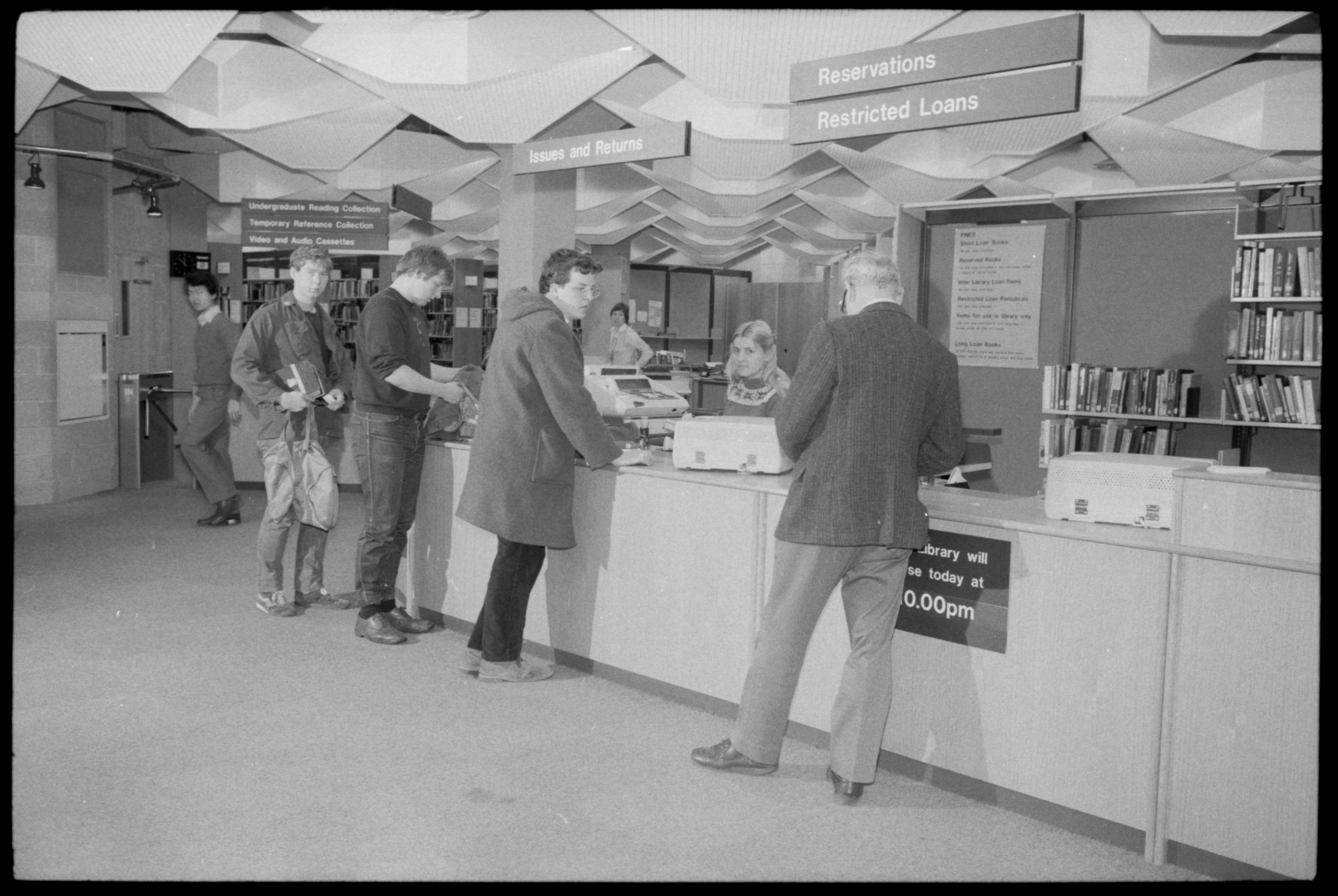
Opening of the new Medical School by the late Queen Mother, November 1984. NUA/171150/52.
Opening of the new Medical School by the late Queen Mother, November 1984. NUA/171150/52.
New Library, opens 1982. NUA/A/159928/10.
New Library, opens 1982. NUA/A/159928/10.
Cavitation Tunnel renamed after Professor Emerson, 1980. The Tunnel is used to test ship propellers and turbines, and is one of the largest in the UK. NUA/C/152009/02.
Cavitation Tunnel renamed after Professor Emerson, 1980. The Tunnel is used to test ship propellers and turbines, and is one of the largest in the UK. NUA/C/152009/02.
Student Orchestra practicing, 1983. NUA/D/158507/04.
Student Orchestra practicing, 1983. NUA/D/158507/04.
Stephen Hawking receives honorary degree, 1987. NUA/D/190759/11.
Stephen Hawking receives honorary degree, 1987. NUA/D/190759/11.
The 1990s
After 30 years of steady growth, student numbers reach 10,000 for the first time across 28 different departments in seven faculties. After decades of slow development, Newcastle graduate, architect and urban designer, Sir Terry Farrell, is appointed to provide a new cohesive masterplan for the campus.

1992 - Increase in student numbers
At the start of the autumn semester in October 1992, the
University Newsletter reported that full time student numbers had passed 10,000 for the first time. This was more than double the 4,400 full-time students the University had in 1964 following the separation from Durham.
University Newsletter, October 1992. NUA/8/1/1.
University Newsletter, October 1992. NUA/8/1/1.
The growth in student numbers meant that new accommodation was required to house first year students. The first large accommodation developments since the early 1970s opened, including Bowsden Court in Gosforth and St Mary’s College in Fenham. Marris House and Windsor Terrace were built on the University campus.
1992 - Smoking ban in Newcastle University buildings
As society moved towards recognising the dangers of passive
smoking, The Courier reported that smoking was to be
banned from all Newcastle University buildings. The ban was
a response to a European Community (EC, forerunner of the
European Union) directive that ‘workers should not have to
work or rest in smoky atmospheres. The Courier reported
that 90% of staff and only 47% of students were in favour of
the ban. As the Students’ Union is not owned by Newcastle
University, smoking was permitted inside the building until the national ban came into effect in July 2007.
The Courier, 26th November 1992. NUA/13/4/1.
The Courier, 26th November 1992. NUA/13/4/1.
1994 - Institute for Health of the Elderly initiative announced
In December 1994 Newcastle University and Newcastle City
NHS Trust announced the launch of an Institute for Health of
the Elderly as a joint initiative. Its remit was to host research
and healthcare services for older people and was based at the
site of (now former) General Hospital in Newcastle.
The partnership still exists today, with the site now known
as the Campus for Ageing and Vitality. The University’s
commitment to research in Ageing and Health expanded
further with the opening of the National Innovation Centre for Ageing in The Catalyst building at Newcastle Helix in 2020.
University Newsletter, 1995. NUA/8/1/1.
University Newsletter, 1995. NUA/8/1/1.
1998 - Student fees
Up until the 1990s, student fees and maintenance grants for
living expenses were paid by a student’s local authority. In
1990, The Student Loans Company was founded and loans
were introduced to help support students with living costs.
In 1998, the Labour Government introduced tuition fees of
£1,000 per year and replaced most of the maintenance grant
system with loans which needed to be repaid. In the decades
since, tuition fees have increased further, as have the loans
that many students need to fund their studies.
This page from an undergraduate prospectus for 1998 refers
to the coming new system of paying for education. It provides wider information about the financial realities of studying at Newcastle University.
Undergraduate Prospectus, 1998. NUA/6/3/1.
Undergraduate Prospectus, 1998. NUA/6/3/1.
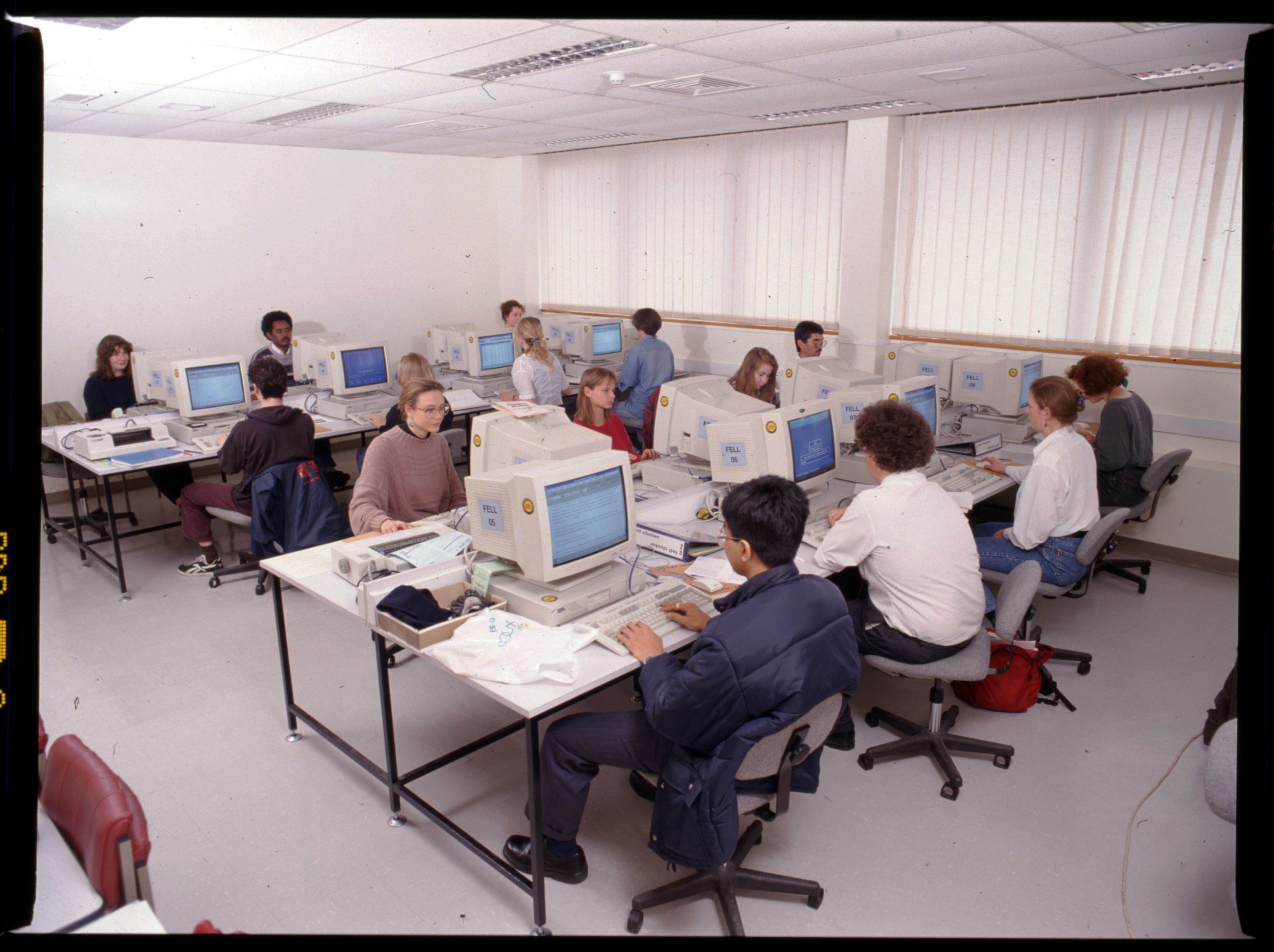
Students socialising at Henderson Hall student accommodation, 1991. NUA/C/234450/15.
Students socialising at Henderson Hall student accommodation, 1991. NUA/C/234450/15.
Windsor Terrace student accommodation, 1992. NUA/CN/251887/01.
Windsor Terrace student accommodation, 1992. NUA/CN/251887/01.
Elizabeth Barraclough retires from her role as director of the University IT Service in 1993, after a 35 year career. NUA/CN/263113/11.
Elizabeth Barraclough retires from her role as director of the University IT Service in 1993, after a 35 year career. NUA/CN/263113/11.
Refurbished spaces open in Students’ Union, 1994. NUA/CN/275530/09.
Refurbished spaces open in Students’ Union, 1994. NUA/CN/275530/09.
Chris Patten installed as Chancellor, 1999. NUA/S/27051/08
Chris Patten installed as Chancellor, 1999. NUA/S/27051/08
The 2000s
The new millennium sees the opening of the Centre For Life in Newcastle city centre. Designed by Sir Terry Farrell, the Centre For Life goes onto become a world leading centre for genetic and reproductive science. Later in the decade, Farrell returns to design an extension to the Great North Museum, bringing museum space together as imagined in his campus masterplan. Within the University, the introduction of a three faculty academic structure replaces the seven former faculties, streamlining leadership and administration.
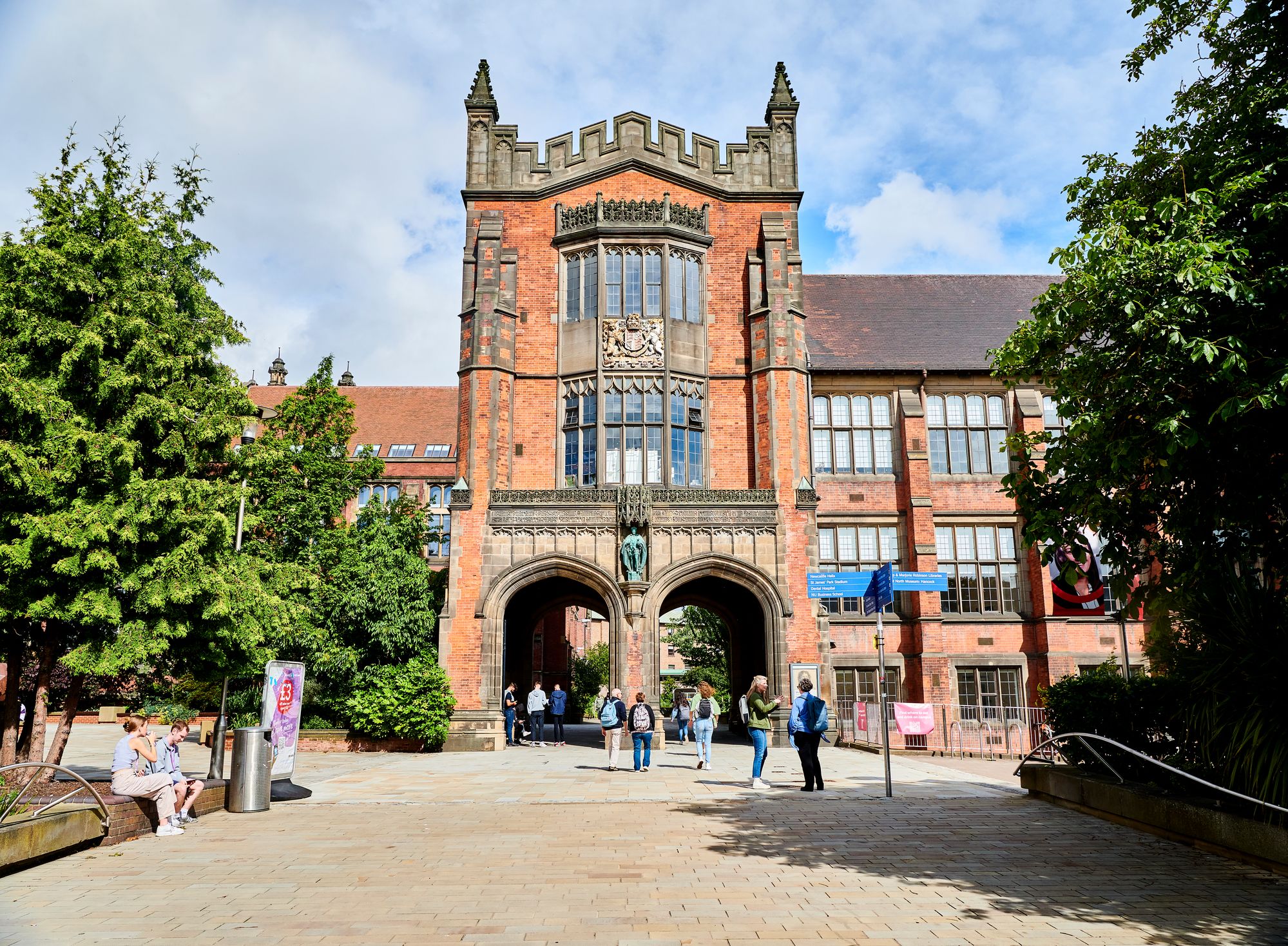
2000s - Campus masterplan
After several years of work, a new campus masterplan was
unveiled. The plan was created by renowned architect and
Newcastle University graduate, Sir Terry Farrell. It included
making campus more pedestrian-friendly and creating new
public spaces. The proposed centrepiece on campus was a
new cultural quarter uniting museums and galleries. This
culminated in the demolition of the Museum of Antiquities and the former Students’ Union Debating Chamber in 2004. There was also an extension to the Great North Museum, designed by Farrell’s practice.
News of this plan was reported in the first issue of Arches, a
magazine containing news and information for staff and the
wider university community. The new glossy, colour format
replaced a former monochrome newsletter.
Arches, 2002, showing Sir Terry Farrell's campus masterplan. NUA/14/6/1.
Arches, 2002, showing Sir Terry Farrell's campus masterplan. NUA/14/6/1.
2001 - International Centre for Life opens
The International Centre For Life opened in Newcastle in
2001. This was a collaboration between Newcastle University
researchers and the NHS. The Centre is home to scientists
working in genetics and life sciences.
In August 2004, the Newcastle Human Embryonic Stem Cell
Group became one of the first institutes to gain a licence to
carry out stem cell research using human eggs. This news
was reported in Ahead, an annual published review of the
University’s activities. In 2005, scientists at the Centre became the first in the world to clone a human egg.
Centre for Life (copyright Simon Cobb, CC0, via Wikimedia Commons)
Centre for Life (copyright Simon Cobb, CC0, via Wikimedia Commons)
2002 - Organisational restructure
By 2002, Newcastle University had seven faculties containing
78 academic departments. To enable a restructure and
reinvest money in research, a plan was passed by Senate to
streamline and create three faculties containing 28 schools. As reported in this issue of the Update, the plan came into place in August 2002, enacting the same organisational structure that remains in place today.
Update, March 2002. NUA/8/1/2.
Update, March 2002. NUA/8/1/2.
2009 - Sir Liam Donaldson installed as the University's 5th Vice Chancellor
Sir Liam Donaldson, the former Chief Medical Officer for
England was installed as Newcastle University’s 5th Chancellor, in December 2009. Donaldson led a distinguished career in public health, including spending time as a Professor of Applied Epidemiology at Newcastle University. He was Regional Medical Officer before being appointed as Chief Medical Officer for England in 1998.
As Chief Medical Officer, Donaldson advised the government
on public health, including an influenza pandemic in 2009,
and the banning of smoking in public buildings and workplaces which came into effect in 2007. He resigned from his post as Chief Medical Officer in December 2009 and received this reply to his resignation letter from then Prime Minister, Gordon Brown.
Photograph of Sir Liam (middle) is pictured with Professor Chris Brink, Vice-Chancellor of Newcastle University, and footballer Alan Shearer, who was conferred with an honorary degree at the same ceremony, 2009. Sir Liam Donaldson Archive, LD/5/1/7.
Photograph of Sir Liam (middle) is pictured with Professor Chris Brink, Vice-Chancellor of Newcastle University, and footballer Alan Shearer, who was conferred with an honorary degree at the same ceremony, 2009. Sir Liam Donaldson Archive, LD/5/1/7.
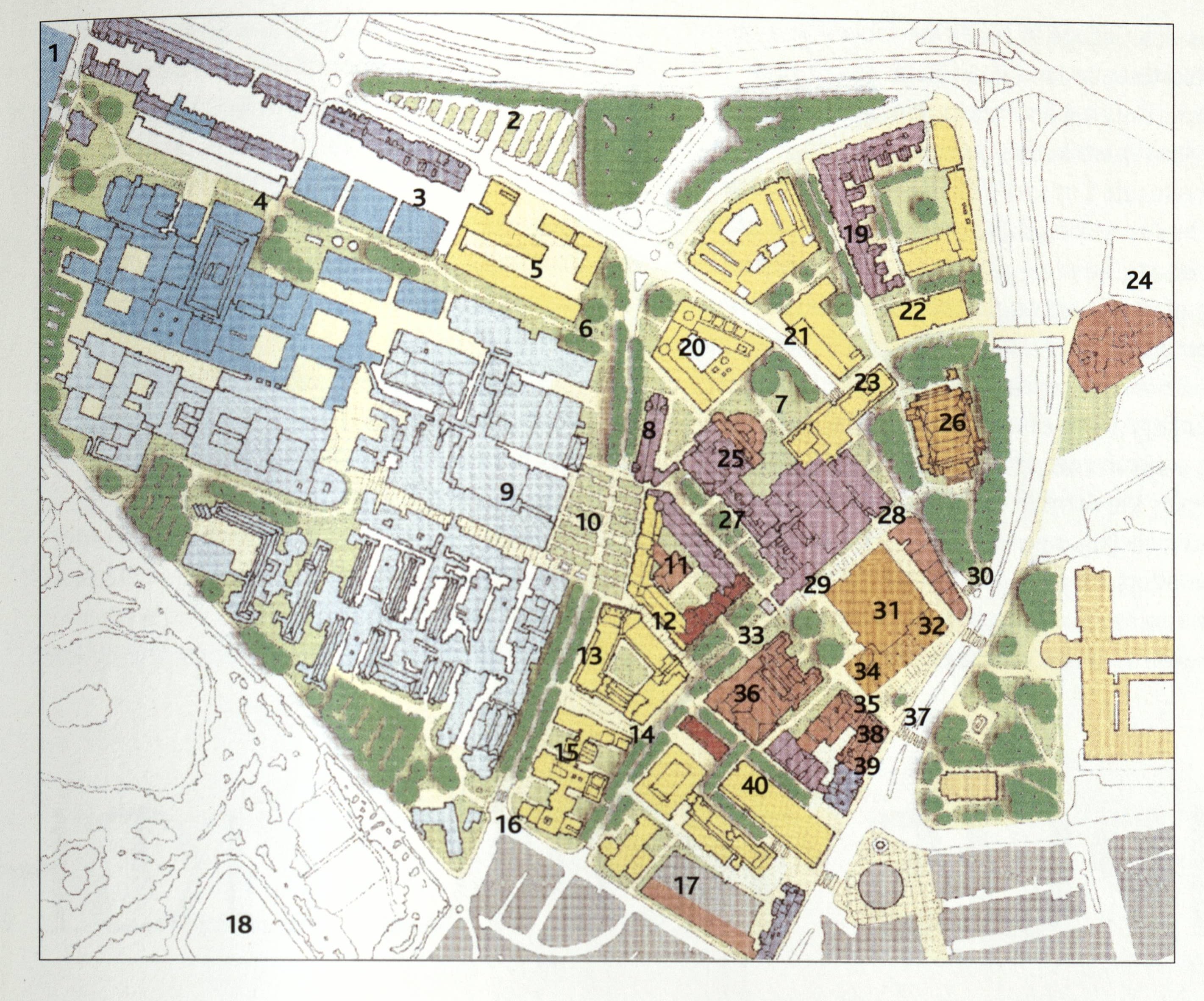
King’s Gate, opens 2009. Newcastle University Marketing Photo Library, 11445.
King’s Gate, opens 2009. Newcastle University Marketing Photo Library, 11445.
Sir Bobby Robson receives an honorary degree, 2003. NUA/308755/02.
Sir Bobby Robson receives an honorary degree, 2003. NUA/308755/02.
Gulbenkian Studio in the University Theatre, 1971. NUA/CN/15510/03.
Gulbenkian Studio in the University Theatre, 1971. NUA/CN/15510/03.
Computer Cluster in the Library, 2004. NUA/D00051/32.
Computer Cluster in the Library, 2004. NUA/D00051/32.
Student in bedroom, 2004. NUA/D00061/097.
Student in bedroom, 2004. NUA/D00061/097.
Devonshire Building, opens 2004. NUA/D000718/29.
Devonshire Building, opens 2004. NUA/D000718/29.
2010 to now
Newcastle University branches out overseas with the opening of NUMed, an international campus in Malaysia. In Newcastle, state-of-the-art buildings are built on the new Helix site, near St. James’ Park. At the start of the 2020s, the University faces the unprecedented changes to study, work, and research brought about by the COVID-19 pandemic.
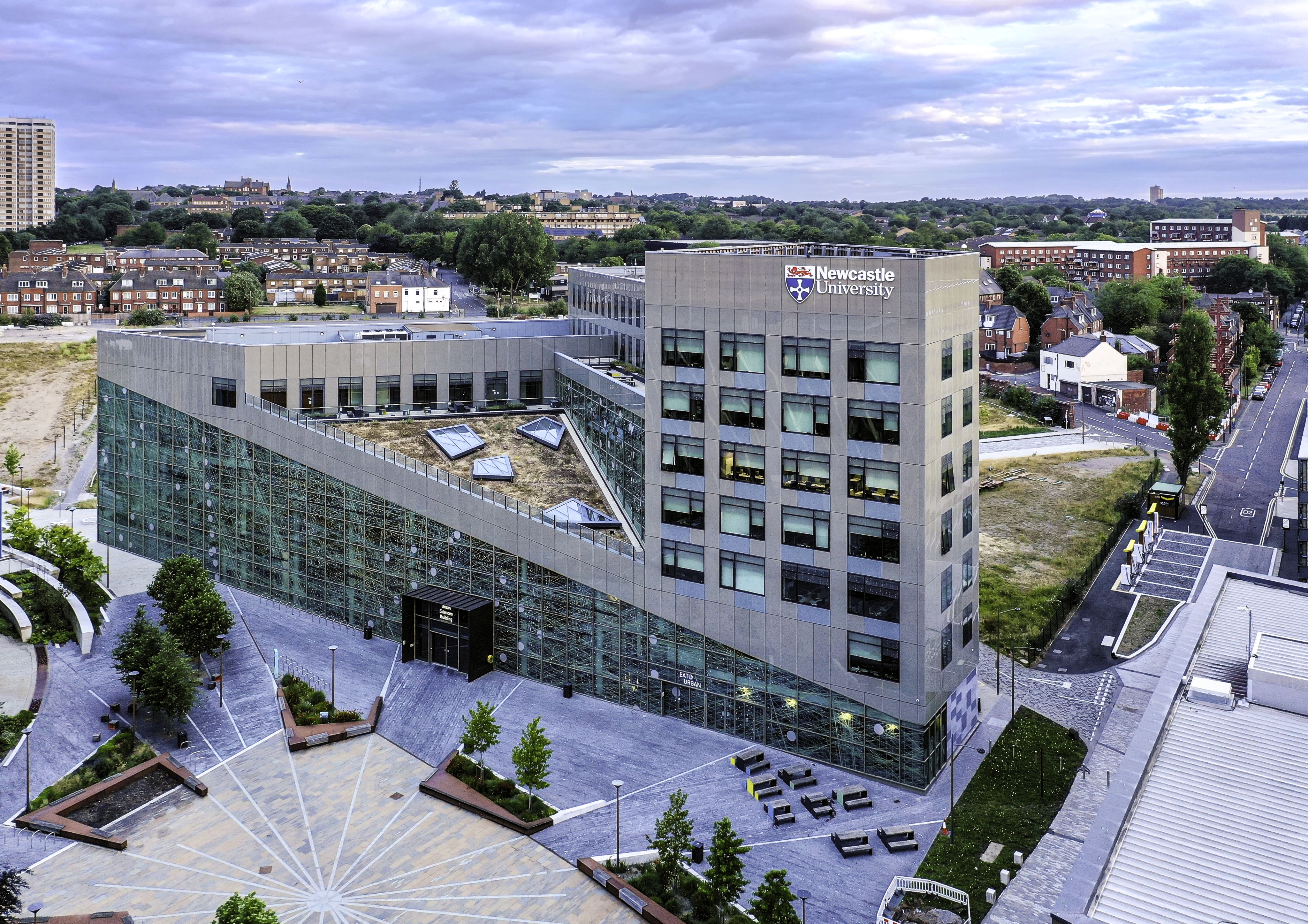
2013 - First students at Newcastle University International Singapore & Medicine Malaysia graduate
In the 21st century, Newcastle University looked overseas for
expansion. Two overseas campuses were launched; Newcastle University International Singapore in 2009 and Newcastle University Medicine Malaysia (NUMed) in 2011. The first students of these campuses graduated in 2013.
International Impact Report, 2013. NUA/D018.
International Impact Report, 2013. NUA/D018.
2017 - Professor Chris Day appointed as the University's 7th Vice Chancellor
In January 2017, Professor Chris Day was appointed as
Newcastle University’s 7th Vice Chancellor, a role he still
occupies today. He had previously held a role as Pro-Vice-
Chancellor, leading the Faculty of Medical Sciences.
Day’s appointment was reported in the University’s Arches
magazine, which also mentions the University’s reaction to the Brexit vote which had happened earlier in the year.
Arches, 2016–2017. NUA/14/6/1.
Arches, 2016–2017. NUA/14/6/1.
2019 - Imtiaz Dharker appointed at the University's 8th Vice Chancellor
Pakistani-born poet, Imtiaz Dharker, became Newcastle
University’s 8th Chancellor in 2019. She is the first woman
and first from an ethnic-minority background to hold the role.
All of Dharker’s poetry books to date have been published by
local book publisher Bloodaxe Books, whose archive is held by Newcastle University Special Collections & Archives. Bloodaxe Books was founded by Neil Astley, a Newcastle University graduate with a degree in English.
Front cover of The Terrorist at my Table, by Imtiaz Dharker, 2006. Philip Robinson Library books, 821.914 DHA.
Front cover of The Terrorist at my Table, by Imtiaz Dharker, 2006. Philip Robinson Library books, 821.914 DHA.
2020 - Outbreak of Covid-19
Just one week before the UK went into a national lockdown
due to the spread of COVID-19, Newcastle University’s student newspaper reported the effect that COVID was having on campus life and teaching.
The Courier, 16th March 2020. NUA/13/4/1.
The Courier, 16th March 2020. NUA/13/4/1.
With the pandemic came rapid changes to the way university staff and students work and learn, with remote working and learning becoming normalised. This would quickly become permanent and have a lasting affect on the life of the university, staff and students.
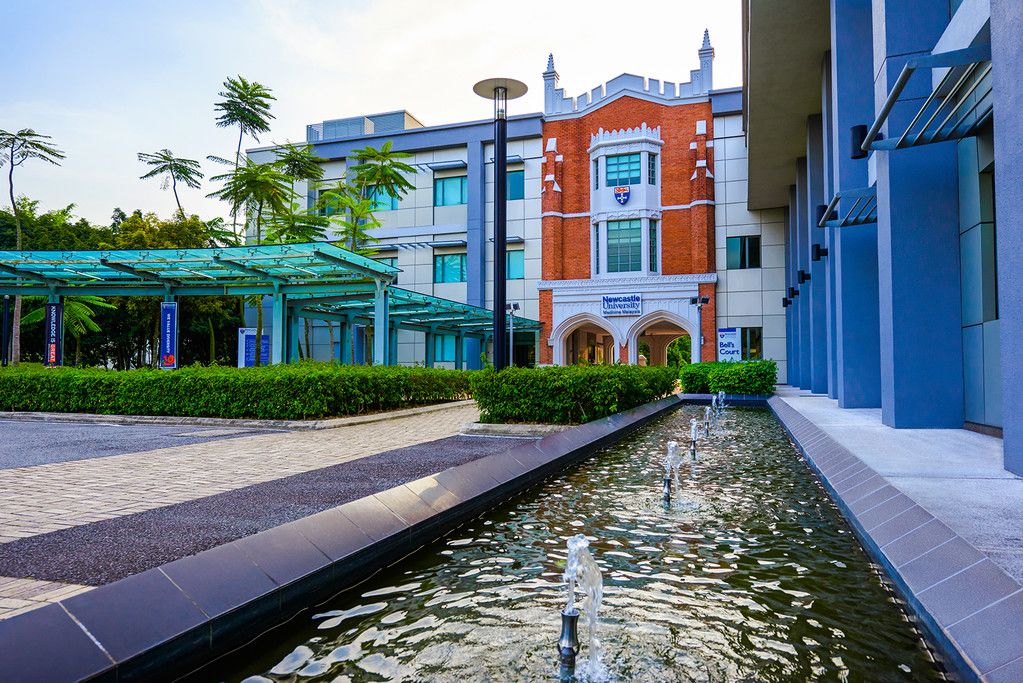
Urban Sciences Building, opens 2007. Newcastle University Marketing Photo Library, 72740.
Urban Sciences Building, opens 2007. Newcastle University Marketing Photo Library, 72740.
Park View student accommodation, opens 2018. Newcastle University Marketing Photo Library, 73076.
Park View student accommodation, opens 2018. Newcastle University Marketing Photo Library, 73076.
Phase 1 of Stephenson Building, completed 2023. Newcastle University Marketing Photo Library, 7520.
Phase 1 of Stephenson Building, completed 2023. Newcastle University Marketing Photo Library, 7520.
Frederick Douglass Centre, opens 2019. Newcastle University Marketing Photo Library, 75848.
Frederick Douglass Centre, opens 2019. Newcastle University Marketing Photo Library, 75848.
Newcastle University Business School (NUBS), opens 2011. Newcastle University Marketing Photo Library, 72516.
Newcastle University Business School (NUBS), opens 2011. Newcastle University Marketing Photo Library, 72516.
Find Out More
Newcastle University Library Special Collections & Archives collects, preserves, promotes and provides access to unique and distinctive books and archives. These resources are made available not only to our own University staff and students, but to researchers from other institutions and to the wider community.
To find out more about our holdings please look at our Collections Guide. To discover how you can consult materials see Use our Collections.

